Annual report 2021 A green step ahead – together



021 was a year of major growth and development at Verdo. A year in which we achieved a strong financial result, and set a new course with goals of more sustainable growth, for a healthy and robust company that now has annual revenue of DKK 2.9 billion.
2021 was the first year with a new strategy for Verdo. A strategy focused on ambitious development of our core business – operating and developing sustainable, critical infrastructure, for the benefit of our customers and society.

We have formulated a social contract in which Verdo commits to being a purpose-driven, consumer-led company with multiple bottom lines, through four pledges:
We aim to make life simpler for our customers by supplying sustainable and secure utility services at competitive prices.
• We aim to be a community that promotes growth for our employees by offering individual development and opportunities for great responsibility.
• We aim to contribute to development in our local communities by creating attractive conditions for business, and sharing knowledge and supporting projects in relation to a sustainable transition.
We aim to build long-term relationships with our partners by being
transparent and flexible in our collaboration.
The common thread in these social pledges is our vision to always be a green step ahead, which guides our work at several levels:
It applies at the strategic level, as we take co-responsibility for the green conversion, global goals and CO2 reduction by implementing energy-efficient solutions to the world’s climate challenges. And it applies at a more practical level, as we make it easy for our customers to make sustainable decisions about electricity, water and heating.
As part of Verdo’s strategic focus, we have divested our fibre business, resulting in a one-time gain which has added to our profit in 2021.
The annual report is based on the financial statements from the official annual report.
It is a report on developments in the Group’s business areas, and its strategy and CSR activities.
Conversely, we have acquired Midtjysk Elhandel, opening up new opportunities in relation to electricity trading. Democratisation and transparency
A number of the changes we implemented in our organisation in 2021 have been aimed at further democratisation and transparency. We have introduced a new, more stringent organisational structure with clear separation of the regulated utilities area from the commercial business areas. We have also simplified Verdo’s articles of association and fine-tuned the corporate form from self-governing institution to ‘cooperative society with limited liability’ (a.m.b.a.), to give our consumers greater insight into and participation in our development.
We decided to expand the Board of Representatives from 51 to 85 consumer representatives, and to democratise vote weighting, such that one meter is now equal to one vote in our cooperative democracy. We thereby


hope to encourage more of our members – and ideally an even wider demographic range – to engage in the development of Verdo. The management team is looking forward to continuing the constructive teamwork with our consumers.
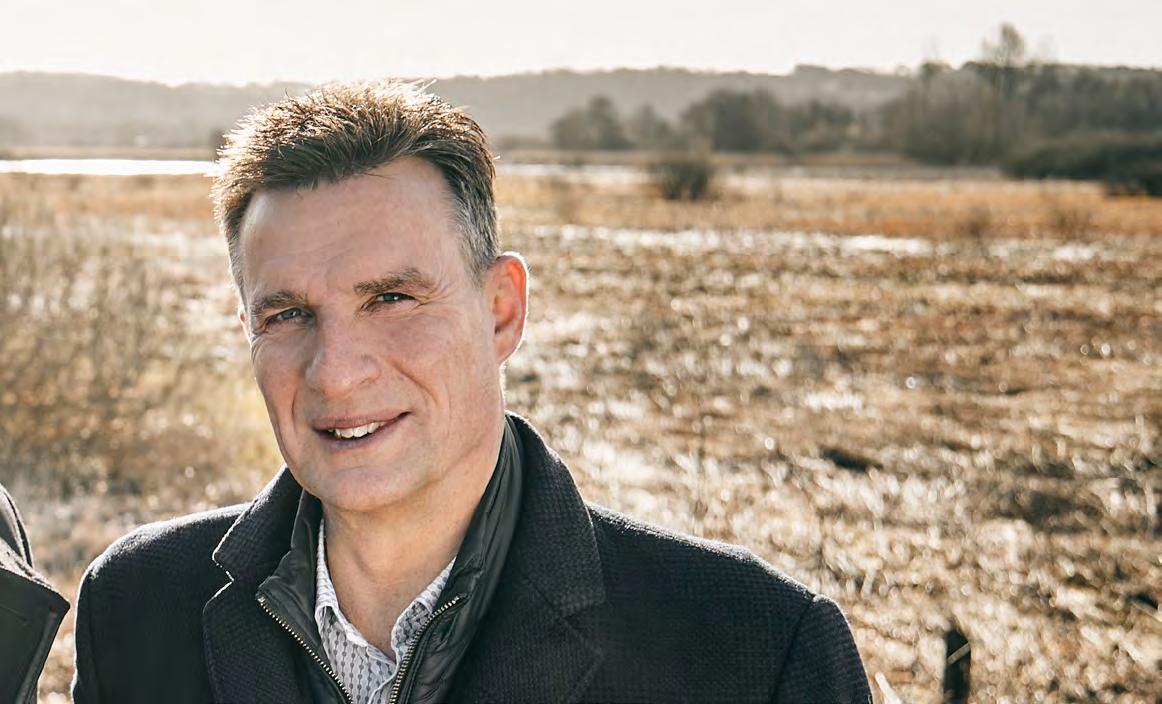
Overall, we have reason to be very optimistic about the future of Verdo. We have set a strategic course to serve as a foundation for more sustainable growth and development in the coming years. We have accelerated our ongoing digitalisation of the utilities area, where we are in the process of digitalising water and heating supply, and the commercial business areas, where we are digitalising our smart traffic management, for example to improve the driving experience and reduce CO2 emissions.
Verdo’s promising future prospects are largely due to the fact that Verdo’s approx. 500 employees have worked very hard, during a year still impacted
by COVID-19 and working from home. This has demanded great flexibility to keep the business operating smoothly. We look forward to continuing the good teamwork between employees, the Board of Representatives, the Supervisory Board and the Executive Board in 2022.
We hope you enjoy reading the Verdo Group Annual Report for 2021.

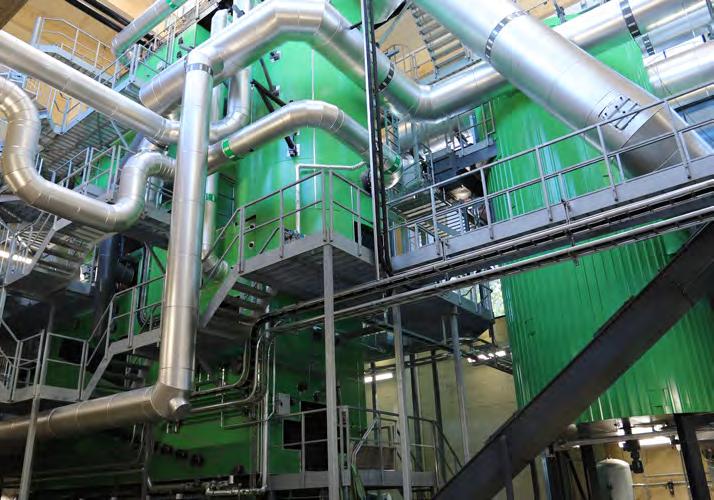

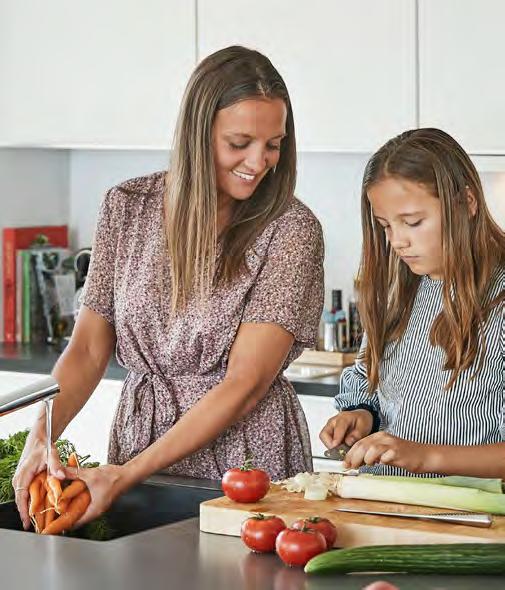

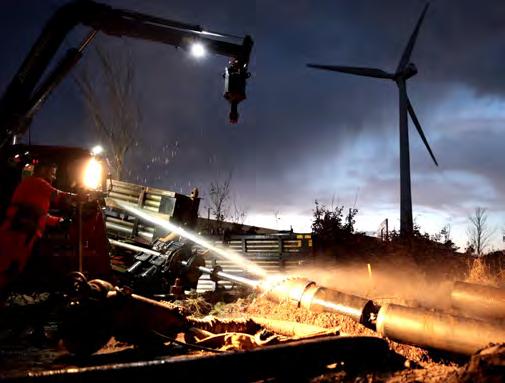

What’s important to me is serving the best interests of Verdo. That’s what a company needs. So when you join the Verdo Board of Representatives or Supervisory Board, you take on the role of doing what’s best for Verdo, and not for your own personal interests.”
“Unfortunately, I sometimes encounter the opinion in my circles that working on the board in Verdo is a little stuffy and dry, with a masculine nature, and too much municipal politics. So we need to turn that narrative around as best we can.”
Pia Maach-Møller, board member
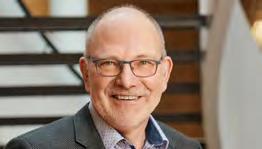

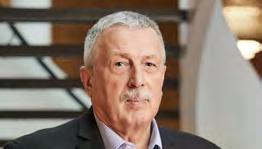
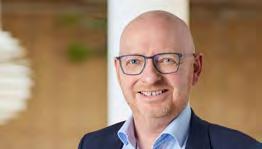
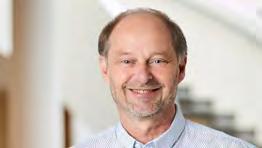
My contribution to the board draws on my 20 years of experience in management, HR and strategy – the last 15 years as HR director in various types of international companies. I also have 15 years of experience from various boards, where transformation and development have been in focus in all cases.

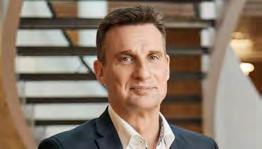
I believe that a good board needs to cover a mix of competencies and experience that together meet the company’s needs. This creates optimal value for the company.
Verdo is a highly complex company
that works with many different business areas – both regulated and commercial. This is what makes the board work particularly exciting from my perspective. The fact that Verdo has a purpose-driven strategy, that we drive sustainable critical infrastructure and look towards the society of the future, and are really helping to reduce CO2 emissions – makes it all very meaningful to me. I want to contribute to handing over a better world to my grandchildren than the one we have now.
There are so many great stories to tell about Verdo’s contribution to the
green transition. We need to communicate these, so they become relevant to consumers and to other companies, who can use them as inspiration for how to run a modern company.
Finally, I think being part of the Board of Representatives and Supervisory Board is about co-determination and having influence. About helping to make a difference that counts.
We asked two of our board members why they chose to be part of Verdo’s board.
As of 1 January 2022, Verdo S/I has adjusted its articles of association to become a cooperative society with limited liability (a.m.b.a). The owners of the company are the cooperative members, who are the Group’s heating, water and electricity consumers.
As a cooperative society, Verdo will promote the common interests of its members by purchasing heating, water and electricity. All cooperative members can exercise influence by voting in elections to the Board of Representatives. These are based on a principle of ‘one meter equals one vote’.
The Board of Representatives is Verdo’s supreme governing authority. The number of members on the Board of Representatives has been increased from 51 to 85 in the new articles of association. These are elected in the three supply areas: Randers (56 members), Herning (28 members) and Kongerslev (1 member).
Those of us who joined the board from Herning have been very well received. We’ve been listened to and had influence from the outset. Naturally, we don’t agree on everything on the board, nor should we. But we’re good at listening to each other and the teamwork is really good.”
Peter Nowack, board member
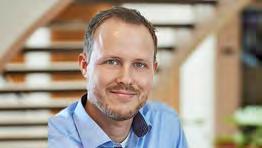

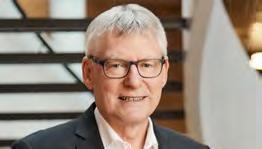



Peter Nowack, Herning
I’ve always felt it was important to be involved. That’s why I’ve served on quite a few boards, for residents associations and sports clubs, and now Verdo’s board. I also just became a board member of Herning Vand and Herning Rens.
I trained as a teacher and have worked in that field for 40 years. I like discussing issues at depth. Then finding solutions and eventually achieving a consensus. Openness, insight and influence, and learning about new things are important parameters for me in my board work. My main focus is on serving the interests
of heating consumers and ensuring that everything is done properly, and that money isn’t spent unnecessarily on anything that doesn’t benefit heating consumers. Costs must be kept low.
I’m also very focused on the future district heating supply. What’s going to happen when time runs out for the existing CHP plants in Randers and Herning? It’s going to be exciting to help work this out, and we’re currently exploring various options.
The board has influence on many important things. It’s essential that each person makes an active effort as a board
The number of seats per supply area is based on the proportion of meters.
The composition of the Board of Representatives was changed to ensure clear democratic principles and the broadest possible consumer influence. It comes into force in spring 2022 as Verdo holds the election for the Board of Representatives.

Verdo is led by a Supervisory Board elected by and from among the Board of Representatives
The Supervisory Board is responsible for the general management of the company and approves the company and Group strategy. The Supervisory Board is also responsible for preparing the budgets and accounts of the company and the Group. The Supervisory Board has ten members – three from Herning, six from Randers and one from Kongerslev*.
* The Supervisory Board will have 12 members until 1 June 2022, under a transitional arrangement.
member and familiarises themselves with items on the agenda, the articles of association and the accounts. You also have to ask the right questions all the time.
Verdo must continue to focus in the future on good, inexpensive and stable solutions and deliver green products. We must also dare to lead the way in new areas.
Verdo is a purpose-driven company. It is therefore important to express our purpose clearly in the articles of association.
Verdo tunes its corporate structure –from S/I to a.m.b.a.
In connection with the work on corporate governance, Verdo gave some thought to the way the parent company of the Verdo Group had been organised to date as a self-governing institution –Verdo S/I.
The characteristics of Verdo’s articles of association and legal basis are, however, best aligned with a cooperative society with limited liability (a.m.b.a.) corporate form.
Based on the legal assessment, Verdo therefore amended its articles of association so there is consistency between these and the foundational characteristics of Verdo. This has been done by changing Verdo S/I into a cooperative society, which is also the normal corporate form used in the utilities sector.
The change to a cooperative society has no impacts on our customers, finances or organisation, but simply means that we adjust the company structure so that the articles of association are consistent with the way we perform our activities in practice.
As a cooperative society, we will advance the common interests of the cooperative members by purchasing heating, water and electricity in our supply areas.
As part of the changes to the articles of association, there is a greater focus on democratising the company. For example, the composition of the Board of Representatives has been changed to ensure clear democratic principles and the broadest possible consumer influence in our various supply areas (currently Randers, Herning and Kongerslev).
The size of the Board of Representatives is increasing from 51 to 85 members. This expansion will take effect in Q2 2022 when we have
held the election for the Board of Representatives.
In connection with Verdo adjusting the company structure from Verdo S/I to Verdo a.m.b.a., we have also changed the name of Verdo A/S.

The rules do not allow two companies to be registered under the same name, simply with a different company structure (Verdo a.m.b.a. and Verdo A/S). We have therefore decided to change the name of Verdo A/S to Verdo Holding A/S.
This is purely a formal name change with no legal significance. The company remains the same and has the same CVR number.
“When the winds of change blow, some people build walls and others build windmills.”
This ancient Chinese proverb matches Verdo’s progressive strategic development. In 2021, we made a number of organisational changes that will have a major impact on the future of the company. You can read more about these in the following sections.
Division Director Morten Birch has assumed responsibility for developing and establishing sustainable energy plant at Verdo Energy.
For many years, Morten Birch has been responsible for technical infrastructure in Verdo Teknik, which has become one of the largest street lighting operators in Denmark during this period. Along with his team, Morten Birch has successfully integrated street lighting into the Group, and has seen opportunities for developing new products and services – such as charging stations and signalling system operations.

Morten Birch has now been assigned even more responsibility in the Verdo Group. In addition to his current area, technical infrastructure, he also heads the development and establishment of energy plant. Together with the management team in Verdo Energy, Morten Birch will continue working to achieve business goals and further accelerate the commercial focus.
We expect to achieve a number of synergies, which customers in the areas of energy plant and technical infrastructure will benefit from in the coming years.
In order to best pursue Verdo’s strategy in the future, it is necessary for some tasks to be handled differently. In the Energi, forsyning & elsalg division –which changed its name to Energi & Forsyning in 2021, this meant a new organisation.
We decided to combine all activities for consumer customers in one division (except for EL-NET Kongerslev), so Verdo Produktion (the division responsible for Randers CHP plant) was integrated with Verdo Varme and Verdo Vand. This is a step towards ensuring transparency and openness in our regulated companies, while maintaining an expectation of greater collaboration across the utilities division.
Verdo also faces the task of defining the future heating supply in Randers and Herning, and the new organisational structure best supports knowledge sharing between our district heating distribution and production.
A common area for the customer centre and Elsalg has also been established, to support the pledge we made in our strategy about ‘making life simpler for our customers’. By integrating the customer centre and Elsalg in the same area, we focus our energy and attention on the customer.
Competencies gathered in Agerskellet
Our social contract contains a pledge to be a community that promotes growth for our employees, where each person feels at home – in their work and with their colleagues. We are therefore making an effort to be an attractive workplace, where each employee is satisfied with their duties and their relationships with their colleagues.
In 2021, we reorganised a range of functions to create the best possible conditions for effective value-creating collaboration between various business areas, across the organisation and between business and staff functions.
Our Trading division moved from the Port of Randers to our headquarters, to provide better opportunities to develop and co-create cross-cutting solutions in relation to energy plant, fuels for private consumers and digitalisation.
The Trading team responded by inviting everyone who works at Agerskellet to a housewarming event, with lunch, socialising and music. More than 100 employees across the Group attended the event.

Energi Viborg and Verdo have reached an agreement for Verdo to take over the remaining part of Midtjysk Elhandel, after more than two decades of cooperation on the purchase and sale of electricity to companies.
Under the deal, Verdo will acquire Energi Viborg’s 26% stake in the company.
We have firmly rooted activities in central Jutland, around Randers, Hobro and Viborg, and in recent years we have increased our presence in Herning, because we want to make a difference to the local communities in central Jutland.
The agreement entered into force on 15 December 2021.
Verdo expects companies to be increasingly interested in their electricity consumption, both in the short and longer term, and thus in a good deal.
Many companies’ interest in electricity use has increased in step with higher electricity prices, and energy consumption has become a bigger part of total costs. Companies are also showing increasing interest in participating in and supporting the green transition, as part of the electrification of society, by choosing green products.
This is one of Midtjysk Elhandel’s areas of expertise, and Verdo therefore expects to strengthen its position in the market.
The change of ownership will have no impact on products or services, and hence on customers, as Midtjysk Elhandel already handles contact with customers in Viborg, as in the other parts of the business.
As part of the implementation of Verdo’s new strategy, we set up a strategy office in spring 2021, with a strategy manager at the helm. The strategy manager is charged with ensuring that the strategy is lived out in the organisation, that words are translated into action – and as part of this, that we set ambitious goals and follow up on them.
The strategy office also leads cross-cutting initiatives and projects focused on creating and maintaining a high level of energy in strategy work. As
a physical setting for the strategy office, we have created a dynamic and innovative Strategy Room, where we invite the entire organisation to hold meetings or simply drop by to experience and understand the strategy.

A nother initiative prompted by the new strategy is the introduction of a Business Partner concept. There is a Business Partner function in most of Verdo’s staff departments, which serves as a single-point-of-contact
and thus as the everyday sparring partner for the business areas.
B usiness Partners ensure that key initiatives are successfully implemented, and that processes in their field of expertise (e.g. Procurement or HR) are optimally executed in each business unit.
The aim is to create clear and transparent interfaces and more efficient processes between staff and business functions.


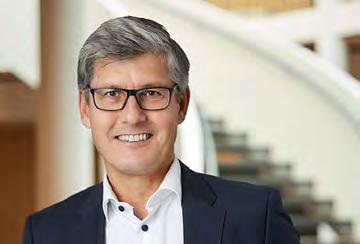


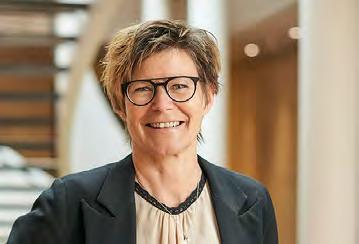
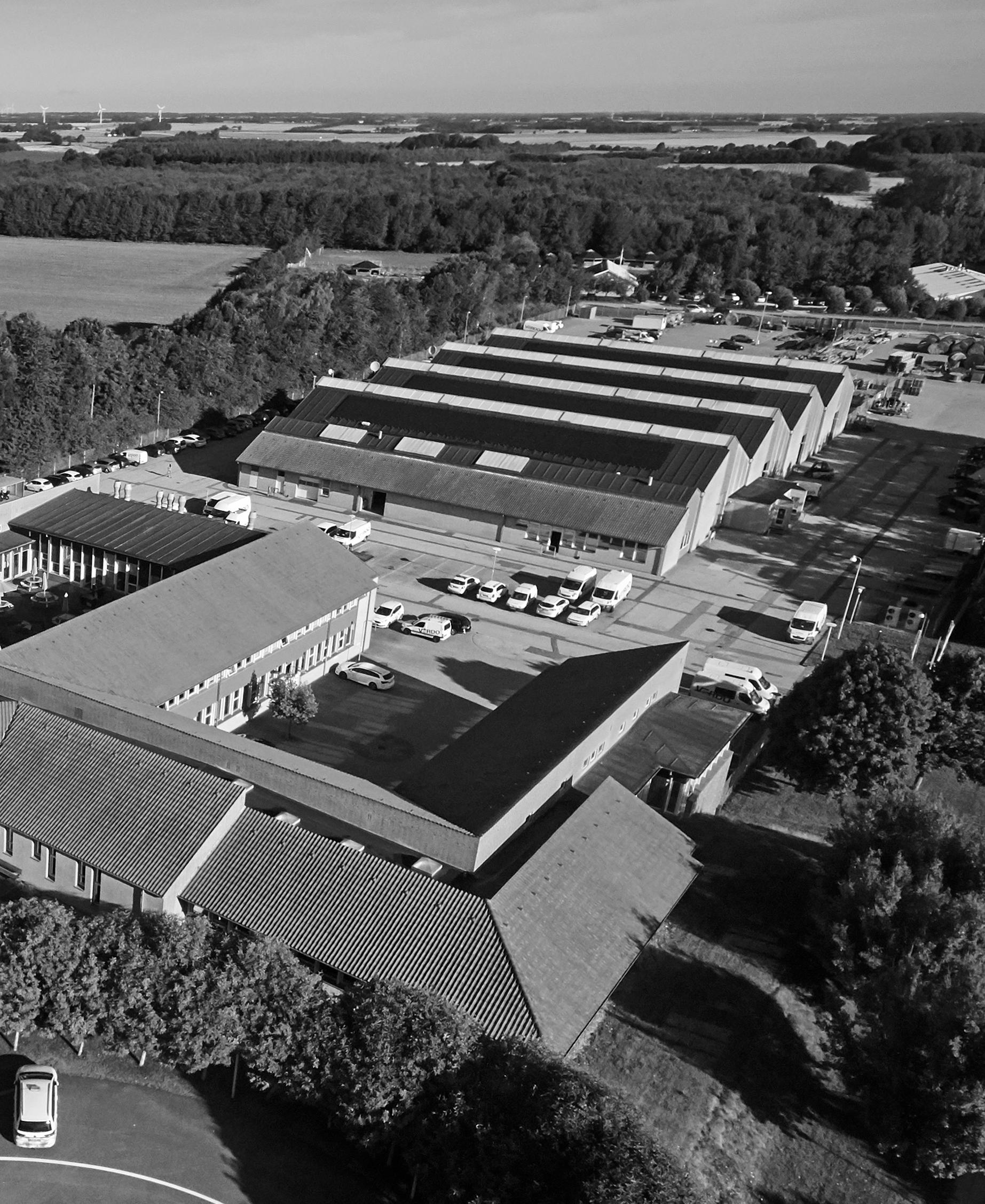

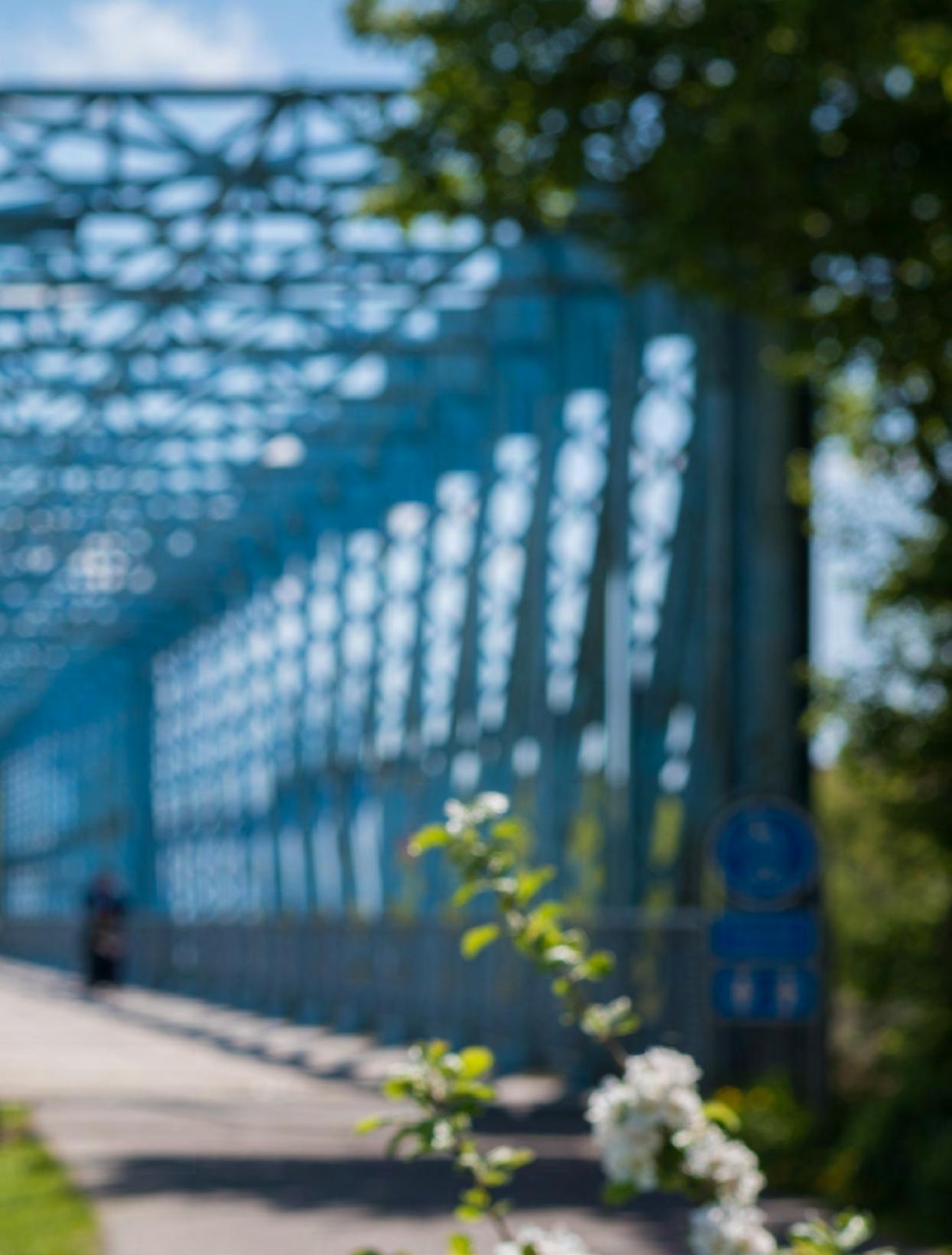
The new management at Verdo has made a focused effort to resolve the open historical cases, and thus create a clear path for customers, employees and the Group. The cases have been handled through open dialogue with the authorities, with the aim of achieving the best possible resolution for all parties.
During 2021, we resolved several cases:
Water tariffs
• T he case regarding water tariffs in Verdo Vand up until 2021 was approved by Randers City Council after the foundation for water tariffs during the 2000-2020 period was investigated by leading Danish experts in law and auditing. The result was that there were no outstanding monies between Verdo and consumers, beyond the normal annual regulation.
• T he case regarding interest on intercompany loans between Verdo A/S and Verdo Varme A/S during the 2013-2019 period has also been settled. The initial draft decision from the Danish Utility Regulator deemed that Verdo should refund DKK 124 million to heating customers in Randers. In the final decision from mid-2021 it was decided that Verdo Varme A/S should refund DKK 116 million.
• We will begin refunding customers as agreed with the Danish Utility Regulator. As in previous cases, we will refund the amount by reducing future
heating bills, as is standard practice in the industry. We have proposed to the Danish Utility Regulator that we initiate the refund on 1 July 2022 and effect it over a three-year period.
• T he Danish Utility Regulator decided on the case in 2021 regarding the depreciation base for regulatory fixed assets of the Randers CHP plant and district heating network in Randers for the 1982-2018 period. The case was settled as expected, and no refunds are therefore required.

In addition to the resolved cases, there are ongoing cases which still await a decision. These are:
• W hile the Group’s production company was investigating similar matters back in the 2000-2009 period, indications were found that Verdo Produktion A/S had recognised a return on invested capital of up to DKK 69 million during the period. It has not been possible to identify a direct legal basis for recognising this return, and discussions have therefore been initiated with the Danish Utility Regulator concerning the matter. It is not yet possible to know when these discussions will be completed. Verdo Produktion A/S has therefore chosen to recognise a provision corresponding to the entire return identified.
•
At the beginning of 2021, the Group began discussions with the Danish Utility Regulator regarding a possible repayment of taxes collected from customers of Verdo Varme A/S and Verdo Produktion A/S. The discussions concern the assessment of whether tax is a fully or partially necessary expense for these companies. At this stage, it is not possible to assess the potential accounting implications or when the discussions are expected to be concluded. This has therefore not been recognised.
• T he Danish Utility Regulator contacted the Group in 2021 about the sector’s usual method for allocating costs between electricity production and heat production – the ‘output model’. The Group is in dialogue with the Danish Utility Regulator about the use of the model. At present, it is not possible to assess whether this enquiry may result in financial consequences for the Group.
The refunds currently being made will be completed on 30 June 2022 and 30 June 2023, while the refunds for the two most recently settled cases are expected to commence on 1 July 2022 and will be fully repaid on 30 June 2025.
Verdo has had several unresolved historical cases over a period of twenty years, which have now been settled within a relatively short time span of two to three years.
There are many ways a company can fulfil its responsibility to create a better, greener and more sustainable society in all respects. At Verdo, we have committed to doing so through what we call our social contract.
The social contract is very much at the centre of our StepTogether strategy, whereby we strive to be a purpose-driven company with a strong value set. As a cooperative society, we have no shareholders or owners who need to take their share of any profit. Instead, we reinvest part of our profits to grow our business.
As part of the social contract, we also distribute funds to promote business and urban development, and to innovation projects related to the transition to sustainable critical infrastructure. Finally, we support the development of local communities, financially and otherwise, through sponsorships and other local activities that help make a real difference.
All this means we have an obligation to put ourselves in the shoes of our customers, employees, local communities and partners, to deliver the added longterm dimension that is our purpose.
We aim to make life easier for our customers. We aim to be a community that promotes growth for our employees. We aim to promote development and cohesion in our local communities. And we aim to build close and transparent partnerships. To the benefit of ourselves – and the community.
These are the four key pledges upon which our social contract is built.
Customers
We work hard to understand and meet our customers’ needs, so we can make their lives more simple. We provide sustainable and secure utility services at competitive prices, and we seek a trust-based relationship with our customers.

Employees
We offer our employees an attractive workplace with a strong sustainable purpose. Through workplace communities that promote growth, we set ambitious goals and equip our employees for the future labour market through individual development and responsibility.
Society
We create an attractive foundation for a vibrant and growing business community, and promote development and cohesion in local areas. Our aim is to make a sustainable impression and play a greater role in the local community – in part through knowledge sharing and supporting projects for a sustainable transition.
Partners
We believe that the path to longterm relationships is through transparent and flexible partnerships.
We set high demands for competitiveness, deliveries and working conditions, so we can reap the long-term benefits that a good partnership brings.
STREET
2.9 billion
Verdo is one of Denmark’s largest street lighting operators. We have more than 230,000 light points spread across a wide range of municipalities all around Denmark.
Verdo aims to reduce the CO2 emissions of its total vehicle fleet by 70% compared to 2020 levels, by 2030.
All of the Verdo Group’s own power consumption comes from green energy sources. The same is true for all our electricity customers.
Verdo has 12 locations in Denmark and abroad, including Norway, the USA and Poland.
CHP PLANT
Energi & Forsyning supplies green power to 53,000 households across Denmark, clean drinking water to 26,000 households in Randers, and district heating based on certified sustainable biomass to 36,000 households in Herning and 38,000 households in Randers. The figures include both private homes and businesses.
We use 99.2% biomass to power the Randers CHP plant.
District heating contributes 44% towards Denmark’s overall goal of cutting CO2 emissions by 70% by 2030.
We have planted more than 24,000 trees in Oust Mølle Folkeskov. In 2022, Verdo Elsalg plans to donate 5,000 trees to a new local forest.
Verdo is one of Europe’s leading suppliers of certified biomass
After several years during which Verdo has been quite affected by historical heating cases, 2021 saw good progress.
Both revenue and profit have improved significantly compared to previous years.
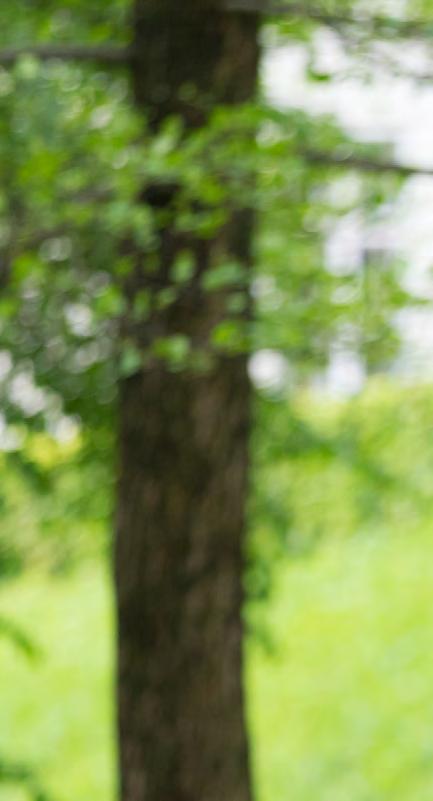
2
021 was another year impacted by COVID-19, but despite the restrictions, the economy generally advanced, with rising prices, low unemployment and a high level of optimism. This is a big change from 2020, where we saw great reticence among our customers. The positive change was also reflected in energy and fuel prices, and the general level of activity in society.
2021 was a normal year in terms of the climate, matching the average for the 1991 to 2020 period. This applies to both temperature and precipitation, while the year was slightly less windy than usual. The latter undoubtedly had an impact on wind power production, helping push up electricity prices.
Revenue in 2021 was DKK 2.9 billion, while operating profit (EBITDA) was DKK 152 million. Both substantially exceeded the budget and expectations. Net profit for the year was DKK 160 million, significantly above the budget figure.
T he primary reason for the high profit
before tax is that an agreement was reached with the Norlys Group during the year regarding the sale of Verdo Tele A/S. The transaction had not yet been completed at the end of the financial year, but is awaiting the approval of the Danish Competition and Consumer Authority. In accounting terms, Verdo Tele A/S is therefore treated as discontinuing operations, and is recognised at t he bottom of the income statement at DKK 134 million. The amount is shown partly as the annual profit in Verdo Tele A/S, and partly as a revaluation of the shares in the company to a value corresponding to the sale price.
Profit from continuing operations after tax is DKK 26 million, while the profit from discontinuing operations is DKK 134 million, as just noted. The annual profit is therefore DKK 160 million after tax.
If operations are normalised – i.e. to exclude provisions, the gain on shares and discontinuing operations – EBITDA is DKK 238 million. This figure expresses what ordinary operations have returned
in 2021. This is also better than in previous years.
However, there are more reasons for this year’s good results than the sale of Verdo Tele A/S.
High prices for electricity and fuels have had a positive impact on Verdo Produktion A/S (CHP plant at the Port of Randers), Verdo Go Green A/S (Elsalg), Verdo Trading A/S and Carbon Partners AS. In addition to the rising prices during the year, we have seen a volume increase in fuel and carbon trading, which is very pleasing.
Conversely, Verdo Teknik and Verdo Energy Systems have seen lower activity than expected.
The balance sheet and equity have increased considerably as a result of this year’s results. The balance sheet total is now DKK 3.2 billion, while the solvency ratio increased to 25%. Both are extremely satisfactory, after several years w ith less satisfactory key figures.
Commercial and regulated business Operating profit (EBITDA) in Energi &
Forsyning and Elsalg – i.e. the regulated areas – came to DKK 160 million, while the commercial areas – Trading, Energy and Teknik – contributed DKK 25 million. Both the regulated and commercial companies have generally performed better in 2021 than in 2020. Our StepTogether strategy in 2021 is proving its worth and supporting the good results.
The solvency ratio for the regulated companies is 22%, while it is 6 4% for the commercial companies (which are subject to competition).
Energy and commodity prices rose substantially in the second half of 2021, in particular, which had an impact on the Verdo Group. This provided an opportunity to increase earnings, especially in r elation to trading in fuel and electricity production. The price increases have also meant that the Group’s working capital has increased considerably. This is because the companies in the Verdo Group typically pay their suppliers before they receive payment from their
customers. Thus, Verdo is ‘out of pocket’ for 4-12 weeks, depending on the given area. The value of the Group’s inventories has also increased considerably.
The Group’s liquidity level is closely monitored, and we have had sufficient liquidity throughout the year to pursue the opportunities offered by the markets. There continue to be good and robust agreements with the Group’s banks.
The well-known cases concerning Verdo Varme A/S and Verdo Produktion A/S have been settled, and the companies are gradually refunding heating customers. We are following the refund plan agreed with the Danish Utility Regulator as far as possible. Verdo Varme A/S expects to begin refunding the most recently settled cases by mid-2022, as agreed with the Danish Utility Regulator.
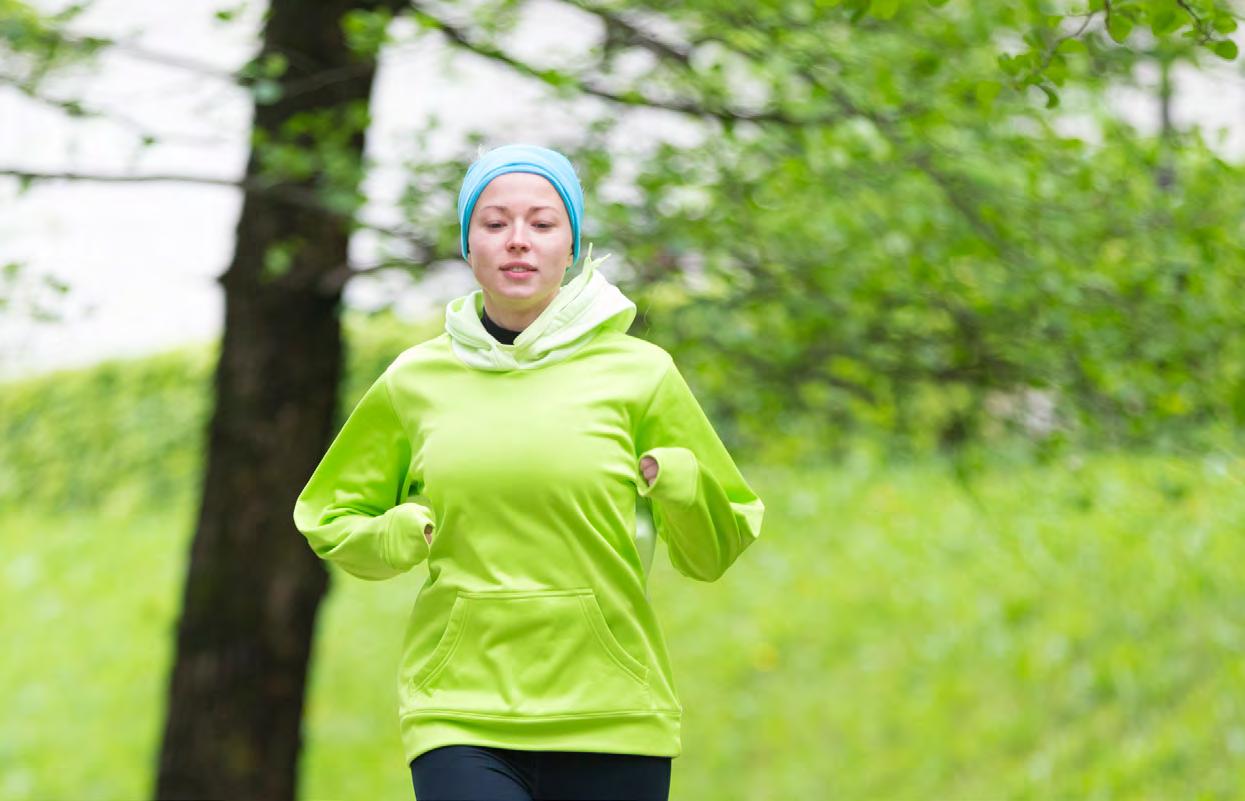
In 2021, we became aware that a return on investment has been recognised in Verdo Produktion A/S during t he 2000-2009 period, which most likely cannot be recognised. At the same
time, information has emerged suggesting that Verdo Produktion A/S has not covered all its eligible costs of heat production during the same period. The Danish Utility Regulator has also raised questions about the distribution of costs between electricity and heat production from 2000 onwards. As a result of all this, and as a precautionary principle, we have chosen to allocate a provision of DKK 70 million in Verdo Produktion A/S for the 2000-2021 period. No decisions had yet been made on these cases at the end of the financial year. Any impact on the heating price and additional repayments therefore cannot be determined.
As in previous years, we find it frustrating that there are factors that could potentially adversely affect both our customers and the Verdo Group. We are working with the authorities –particularly the Danish Utility Regulator – to resolve all matters in the best and quickest way possible.
Verdo expects to continue the positive trend from 2021 in 2022. We have seen even higher – and more volatile – prices for electricity and fuel in early 2022. As noted earlier, this presents both opportunities and risks. But through business f lair and risk management, this has been an advantage for Verdo overall during the period up until the financial statements have been presented.
We also saw strongly rising interest rates at the start of the new year, albeit from very low levels. These naturally affect the Group’s credit framework and hence earnings. Long-term interest rates, in particular, have risen. We expect to see upward pressure on short-term interest rates in Europe, similar to what we have seen in the USA.
Unless new mutations emerge, COVID-19 is not expected to have a significant impact on business in 2022.
Many of the above factors – interest rates, prices and inflation – are exacerbated by the war in Ukraine. We are t herefore looking ahead to a period of high volatility.
The Verdo Group decided very early in the process to stop all trade with Russia. We therefore contacted our 30 biggest suppliers to enquire about their use of Russian subcontractors, and get an overview of potential price increases or scarce goods as early as possible.
The rising prices for electricity and fuel are generally having a positive impact on the Group. In particular, Verdo Produktion A/S (the CHP plant at the Port of Randers), which produces electricity using biomass, Verdo Go Green A /S, which sells electricity, and Verdo Trading A/S and Carbon Partners, which trade in fuels and carbon, have been positively affected. It is difficult to quantify exactly how much they are being positively affected, as the products are traded at market price or using relatively short hedges. But the companies have performed significantly better than budgeted during the first months of 2022.
In the case of the Trading division (Verdo Trading A/S and Carbon Partners), all trades, with few exceptions, are ‘back to back’ (no products are purchased that have not already been sold), and exchange rates, shipping and price differences are hedged where possible. This minimises the risks.
Conversely, Verdo Teknik A/S and Verdo Energy Systems A/S are negatively impacted by rising commodity prices, especially steel and other metals. Suppliers have also already been reporting shortages of certain products since early in the year. The biggest risk factor for both companies is that we have sold projects at a fixed price for which not all goods have yet been purchased. To date, we have managed to acquire the goods needed, although this has required a major effort.
There is a major focus on prices and risk management. A working group has been set up across the relevant divisions and the procurement department to work on our purchasing of commodities and materials for projects.
The entire Group is very focused on future agreements taking price changes into account. We therefore do not want to enter into long-term agreements based on fixed prices, unless we can get guaranteed fixed prices from our suppliers. This decision could have a potential impact on the number of contracts in the coming months.
While the Group’s production company was investigating similar matters in the 2000-2009 period, indications were found that Verdo Produktion A/S had recognised a return on invested capital of up to DKK 69 million during this period. It has not been possible to identify a direct legal basis for recognising this return, and discussions have therefore been initiated with the Danish U tility Regulator. It is not yet possible to know when these discussions will be completed. Verdo Produktion A/S has therefore chosen to recognise a provision of DKK 69 million, corresponding to t he entire return identified.
At the beginning of 2021, the Group initiated discussions with the Danish Utility Regulator regarding a possible repayment of taxes collected from customers o f Verdo Varme A/S and Verdo Produktion A/S. The discussions concern the assessment of whether tax is a fully or partially necessary expense for these companies. At this stage, it is not possible to assess the potential accounting implications or when the discussions are expected to be
concluded. This has therefore not been recognised.
The Danish Utility Regulator contacted the Group in 2021 about the sector’s usual method for allocating costs between electricity production and heat production – the ‘output model’.
The Group is in dialogue with the Danish Utility Regulator about the use of the model. At present, it is not possible to assess whether this enquiry may result in financial consequences for the Group.
The recognition of equity investments in the parent company is subject to material uncertainty. The uncertainty relates to the recognition of discussions underway with the Danish Utility Regulator in the subsidiaries Verdo Varme A/S and Verdo Produktion A/S, which affect the value of the equity investments. Further details can be found in the section on material uncertainty regarding recognition and measurement in the Group.
We completed a comprehensive project during the year on trade between the Group’s companies – often referred to as transfer pricing. The aim was to ensure that all intercompany trade takes place at ‘arm’s length’, and that there is no discrimination by either regulated or commercial companies. A comprehensive model, documentation and knowledge have been built up in the Group in t his area.
Finally, it should be mentioned that we acquired the minority shares that were owned by external players in Carbon Partners AS and Midtjysk Elhandel during the year.
Overall, we are satisfied with the changes in the Group’s operations, performance and key figures, and we expect to be able to continue implementing our StepTogether strategy in the coming years.


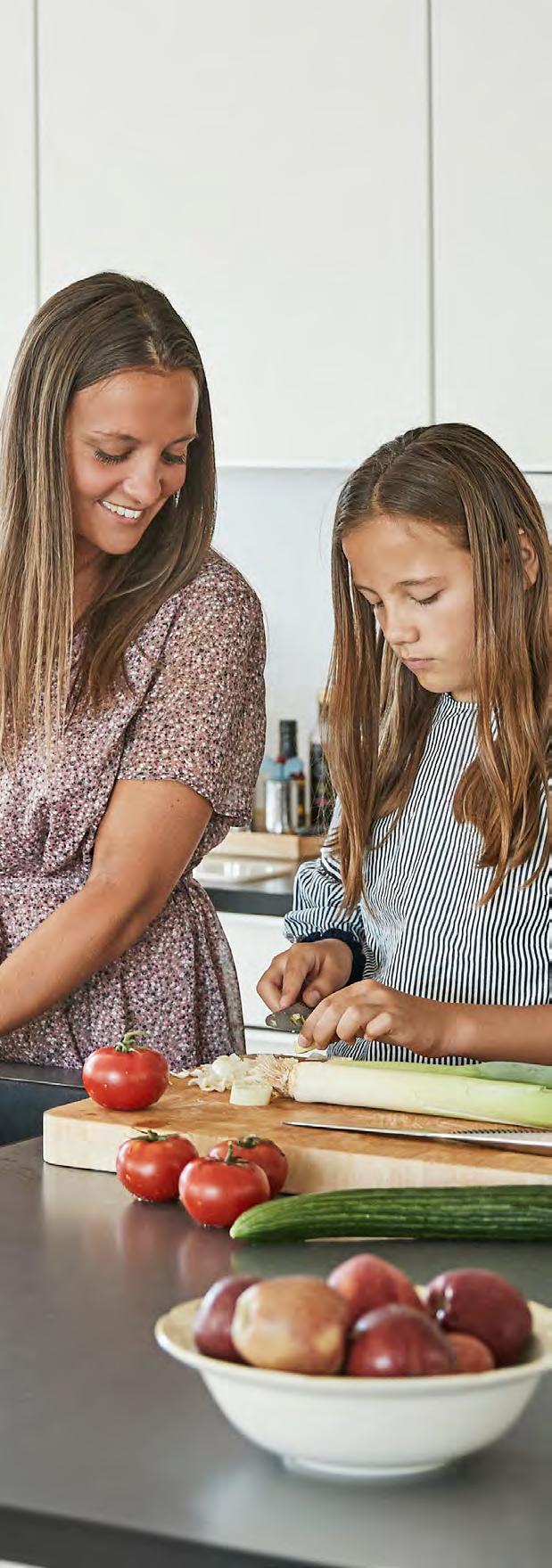

Verdo Energy establishes, operates and services all types of green energy plants for the industrial market and utilities.

• Energy’s financial result for 2021 is primarily influenced by postponed orders for large energy plants and a lack of new orders. COVID-19 was one of the major reasons orders were delayed. If not directly, then indirectly due to rising material prices caused by the pandemic leading to great uncertainties regarding costs for our customers. Another reason for the delays was more stringent and as yet unknown regulatory requirements, for example in Norway in relation to carbon capture. Overall, this means we ended 2021 with a loss of
DKK 13,303 thousand, which is not satisfactory.
In 2021, we succeeded in gaining entry to the Nordic market for energy plant. We handed over a large energy plant for Norwegian Eidsiva Bioenergi, and after extensive groundwork, Verdo was able to sign a contract in early 2022 with Senja Avfall in Northern Norway to supply and service a waste plant.
• We saw increasing export interest in our energy plants in late 2021 due to rising gas prices. We have bid on projects in France and Poland, and are seeking to create a more international focus in the Energy division.
2021 has been a good year for Industri & Service. We have also worked to build a strong automation segment, with automation as a key differentiator in relation to plant control and management.
• We have improved our project execution and quality management, and now have the best CE marking process in the sector.
Verdo Trading offers strong, sustainable fuel and biomass solutions with a local focus, as well as coal and coke products for industrial use on the global market.
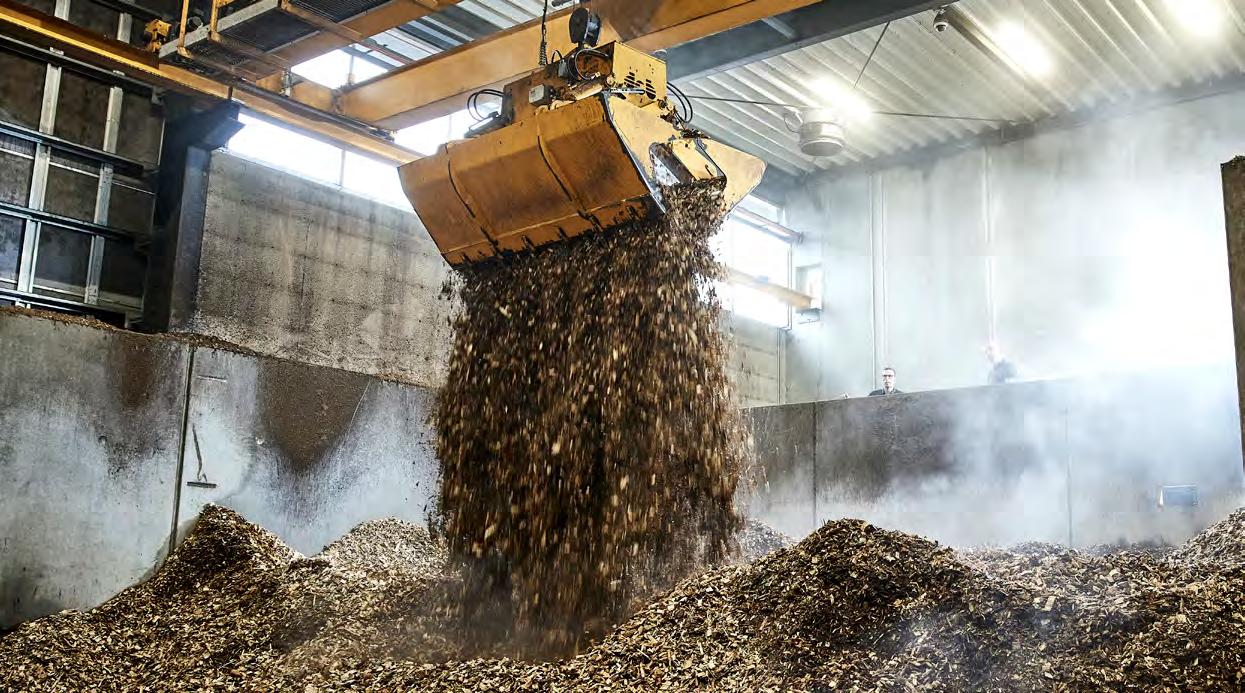
• 2021, like 2020, was a historic year for Trading. But in the opposite direction. While revenue was historically poor with low product sales in 2020, the result in 2021 was one of the best in many years. We regained revenue, increased our earnings, and ended with a highly satisfactory operating profit.
• T he good result is due to focused sales and procurement work, combined with rising prices and demand. A key cornerstone has been Trading’s strong sourcing of products in a market with low supply.
• T here has been growth in the customer base, and Trading managed in 2021 to get the best out of a market where prices rose sharply, in step with growing demand.
• C arbon Partners has also seen a strong improvement in both revenue and earnings. This was particularly due to strong sales and procurement efforts in a soaring market. It resulted in the best earnings ever.
C arbon Partners Inc. managed to rebuild the business after its poor result in 2020, and has contributed to the strong earnings. Carbon Partners AS has also achieved a very strong financial result.
• E xpectations for 2022 are similarly good earnings for both Trading and Carbon Partners. This is primarily due to the good foundation laid in 2021, and a market that is still climbing.
Verdo Teknik is one of Denmark’s largest street lighting operators. It operates, maintains and modernises street lights and traffic lights in public spaces across Denmark, to ensure safe conditions, energy-efficient solutions and better access.

We also offer solutions in relation to speed displays, parking facilities, indoor and outdoor lighting, effect lighting, electrical contracts, technical property operation and service, energy optimisation and charging stations.
• Teknik did not win the expected number of large projects and tenders in 2021, which can be seen in the financial result – a loss for the year of DKK 5,087 thousand. The shortage of orders is partly due to fierce competition in street lighting and traffic systems, but the COVID-19 pandemic
also had an impact, as the major global price increases for commodities and transport seen in 2021 have meant more difficult market conditions and great uncertainties about costs for our customers.
T he financial result for Teknik is also impacted by a new accounting principle in relation to operation of the street lighting in Herning Municipality, and significant investments in charging stations for electric and plug-in hybrid vehicles.
• Teknik completed electrical installation on Zealand in 2021, and will focus only on technical infrastructure on Zealand from now on. Teknik will continue to focus on growth in technical infrastructure – street lights and traffic lights – throughout
the rest of Denmark, as well as electrical installation and service in East Jutland.
Teknik established a department for installing charging stations in 2021. This is an important focus and development area in Verdo, and a market that is expected to grow tremendously over the coming years. We see it as vitally important to invest in the charging infrastructure of the future, and thereby contribute to the extensive electrification of society that Denmark is facing. We also found a partner in the charging station business in 2021, Norwegian DEFA, which supplies high-quality software and hardware. We have spent the autumn working to spread the charging station concept, among both private customers and businesses.
Verdo Tele has established a fibre network serving over 26,000 addresses in Randers and Hobro over a number of years, and has thereby made a major contribution to the digitalisation of these areas.
• In 2021, Verdo Tele continued the focused work of recent years, preparing for the opening of the network (via the OpenNet platform) in Randers and Hobro, and we have
come a long way. We have expanded the fibre network in Randers and Hobro, including in connection with the many new construction projects and allotments.

In autumn 2021, Verdo sold its Tele business and thus the fibre network in Randers and Hobro to Norlys, which already owned 25% of Verdo’s fibre network. The sale was motivated, on Verdo’s part, by a desire to focus
on the core business, and Tele was a small business area at Verdo. The sale also future-proofs the fibre network, as Norlys already owns and operates Denmark’s largest fibre network. The deal is still awaiting the approval of the competition authorities.
Energi & Forsyning supplies green power to 53,000 households across Denmark, clean drinking water to 26,000 households in Randers, and district heating based on certified sustainable biomass to 36,000 households in Herning and 38,000 households in Randers. Households include both private homes and businesses.

• Energi & Forsyning is constantly working to expand district heating into new areas, and convert existing areas from natural gas or the like. We have seen a strong increase in demand in 2021, and there is no doubt that high natural gas prices have raised interest in district heating – further boosted of late by the war in Ukraine.
• We are currently working on three major natural gas conversion projects in and around Randers: Over Hornbæk, Neder Hornbæk and the industrial area southwest of Randers. District heating is also coming to Sdr. Borup, Stevnstrup, Romalt and Assentoft.
• In Verdo Varme Herning, security of supply has been very high throughout the year, and district heating remains cheap. There has been record high production at the Herning plant based on biomass, with very limited use of fossil fuels. This has a positive impact on both the district heating price and the environment.
Key figures
• From January to December 2021, 509 new district heating connections were added in Herning. That is far more than in 2020, when the number of new district heating customers was 318. Randers also saw a record number of new households connected to the district heating network in 2021. There were 858 new district heating customers, compared to 575 in 2020.
• 2021 was also the year in which the first heat pump was installed and put into operation in the Herning area. Verdo was responsible for the project, and the plant with a 1 MW heat pump opened in Studsgård in August 2021.
T here were very good earnings on electricity production at the CHP plant in Randers in 2021. This is primarily because electricity from the CHP plant and our electricity trading companies has been sold at higher than expected prices. The supply chain difficulties due to negative impacts from COVID-19 have been handled professionally and with great focus.
Verdo Vand partnered with several other water utilities in Randers in 2021 to create common solutions in
a number of areas that will benefit consumers in the entire supply area.
Elsalg has seen growth in the number of new customers, and has added new staff in preparation for taking an even greater share of the market.
• Following reorganisation in early 2021, Verdo’s customer centre has been changed from a staff function to a business unit under Energi & Forsyning. This creates closer interplay between the customer centre and the utility business, so we are nearer
to our electricity, water and heating customers and can better provide them with good service, and focus on increasing customer satisfaction and working with the customer experience in new ways.
• Verdo Produktion A/S first became part of the Energi & Forsyning division in March 2021, but has been included in the Energi & Forsyning figures for both 2020 and 2021 for the sake of comparability.

At Verdo, we work with a variety of customer types, including private and public companies and consumers, who buy electricity, water or heating from us. There are also private customers who purchase our products and services in relation to wood pellets for heating, green power or charging stations.
Sustainability has become a key issue, especially in many companies, and consumers are increasingly demanding that businesses think sustainably and contribute to the green transition. Much of our work with these customers
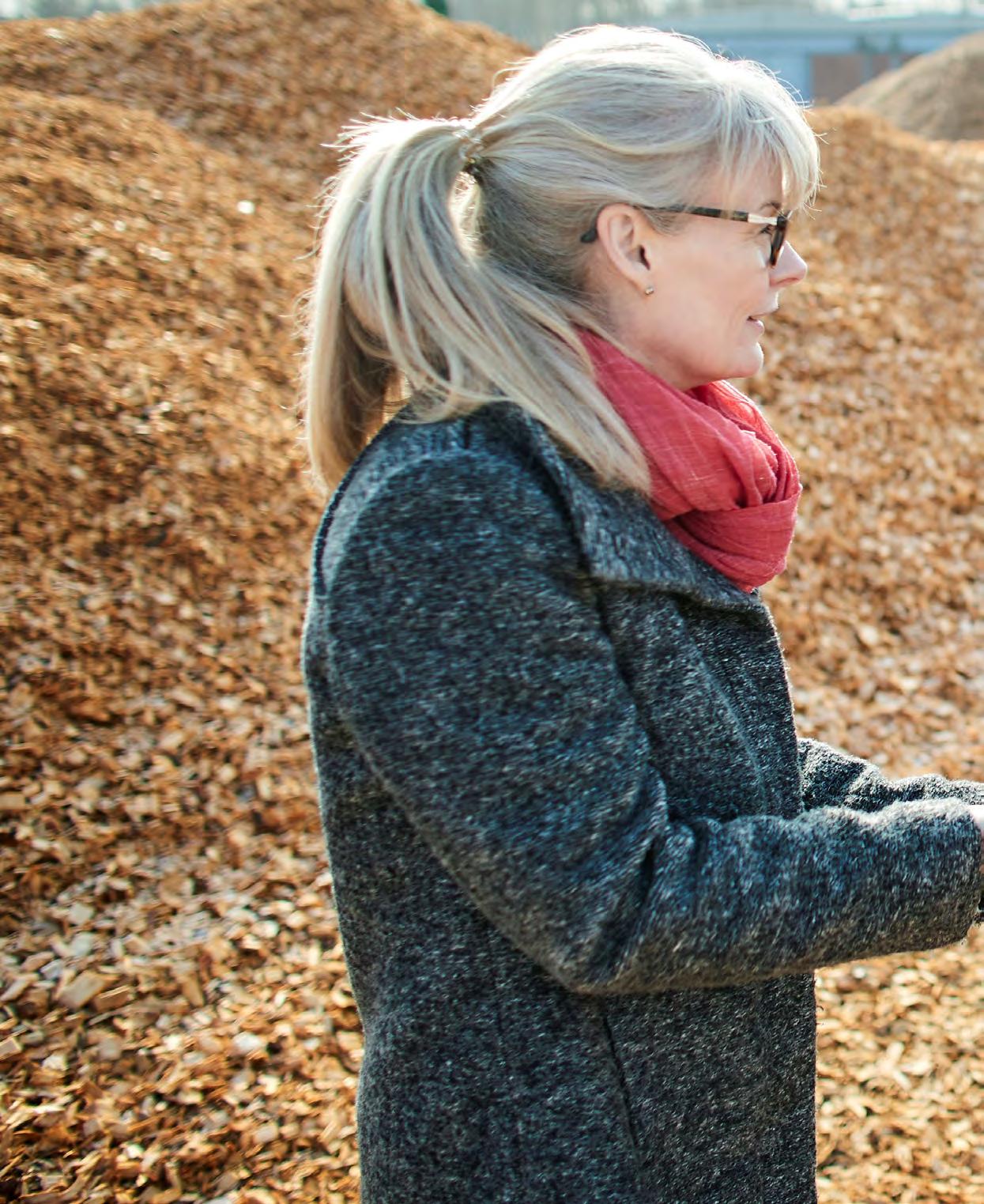
consists of advising and guiding them and implementing sustainable, green solutions. One example is our collaboration with Sdr. Herred’s CHP plants, where a heat pump became a step on the road to CO2 neutrality. You can read more about this in the case on page 32.
Our consumer and private customers are also demanding more green power and sustainable heat production, as well as charging infrastructure for the increasing number of electric and plug-in hybrid vehicles on Danish roads. That is why we are working to deliver sustainable and secure electricity, water
and heating supplies at competitive prices, and have developed a charging infrastructure model called ‘Charge’.
All our customers therefore have different needs and expectations, and we work hard to understand and meet these. Our goal is to make life simpler for every customer – whether they are a private customer or a business.

Six villages on south Mors in North Jutland have a vision of becoming CO2 neutral, and have therefore joined forces around four heating plants to phase out fossil fuels. Three of Sdr. Herred’s CHP plants now use biofuel, and the fourth consists of a heat pump supplied by Verdo.
“We want to start a green wave in the area, while also giving our residents the cheapest heat. We therefore decided on a heat pump,” says Poul Kristensen, chairman of the board of Sdr. Herred’s CHP plants.
The heat pump currently supplies 80-90% of the heating, and is complemented
by surplus heat purchased locally from a wood chip boiler when the price of electricity is high. This ensures great flexibility and the lowest possible heating price for the area’s 580 residents. It also brings the villagers even closer to their green vision of CO2 neutrality.
More green initiatives on the way
In addition to biofuel and the heat pump from Verdo, Sdr. Herred’s CHP plants are working to involve keen locals in several green initiatives, such as solar cells and shared electric vehicles, where the sharing economy and circular thinking are in focus.
The CHP plants have also invested in wind turbines, and are currently working to get approval for these to supply power to the plants – including the heat pump – as this will mean a significantly lower electricity price.

Verdo has supplied a heat pump to one of Sdr. Herred’s CHP plants, which has moved the villages in the area much closer to their goal of becoming CO2 neutral.
Verdo and Aarhus University have agreed that Verdo will take care of all minor electrical installations until the end of 2023. This has so far resulted in nine newly appointed electricians and three apprentices at Verdo.
Verdo won the tender on a tradesman agreement with Aarhus University, which runs until the end of 2023. Under the agreement, Verdo must undertake all electrical and IT installations for sums less than DKK 50,000. The agreement results in full-time work for 10-15 electricians at the university’s six locations in Aarhus.
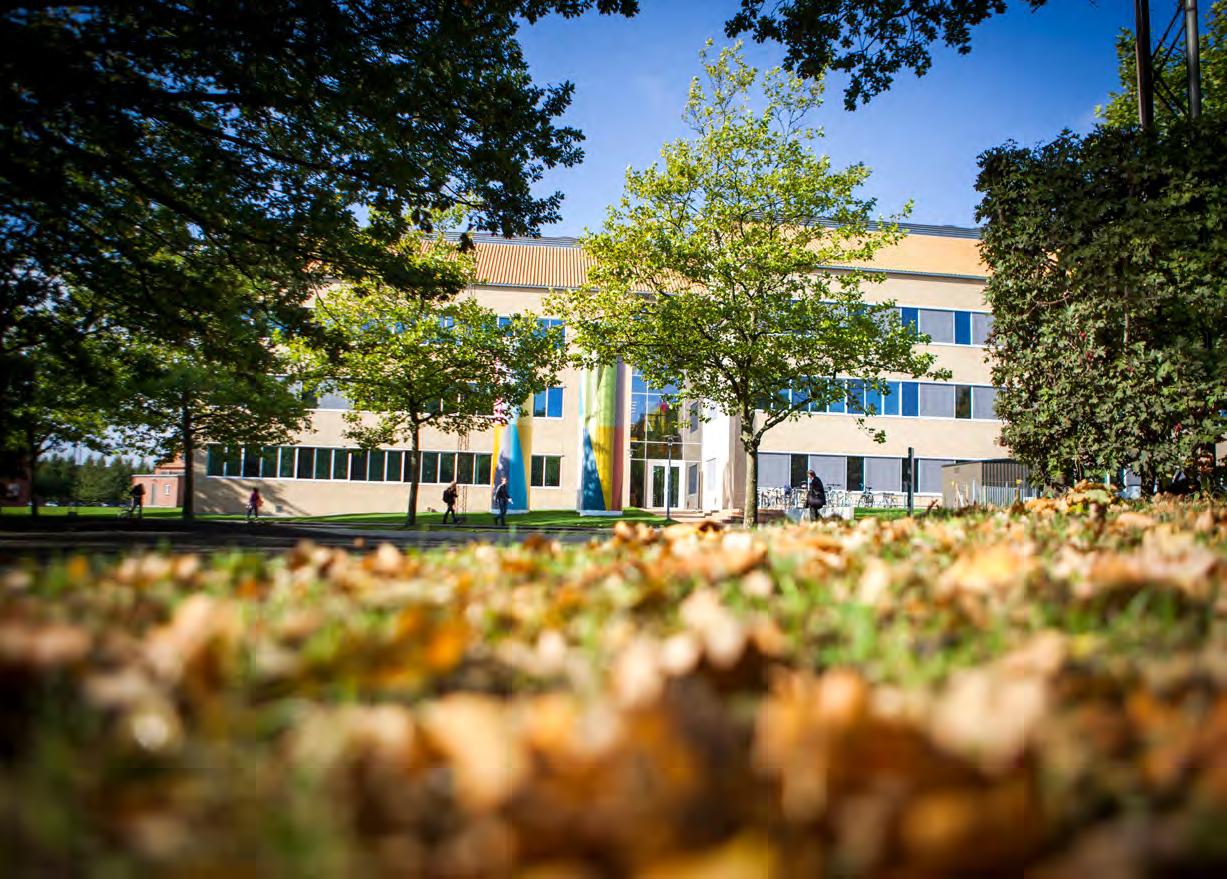
“This agreement is important to us. Also for Verdo’s visibility in Aarhus, as our service business has now increased 60% in size. In addition to increased revenue, the agreement allows more flexibility in relation to other tasks,” notes Mike Hiltmar, Head of Department in Verdo Teknik.
The agreement with Aarhus University
was reached quickly. This meant that recruitment and the practical details had to be sorted out in a very short time, reports Mike Hiltmar:
“In less than a month, we’ve taken over the responsibility from the previous supplier. We had to draw on several departments across Verdo, but we managed, and have now hired the necessary staff.
Attractive electrician jobs
The University City, Katrinebjerg, Navitas and Nobel Park apparently sound good to many electricians. Even though they are in high demand, it has been possible to fill the advertised positions for nine electricians and three apprentices to date.
“Aarhus University is an exciting environment to work in, and it’s proved attractive to be assigned a fixed site and service your own area – while also helping each other, of course,” says Mike Hiltmar.
Skjern Fjernvarme supplies heating which is 95% CO2 neutral, using sustainable wood chips from local forests supplied by Verdo. A flexible solution that has resulted in a long-standing partnership.
Skjern Fjernvarme is a modern energy supply company with a mission to provide low-cost, green district heating with high security of supply to the approx. 3,400 citizens and businesses in the area. They have already been very successful, as 95% of the district heating is CO 2 neutral.
During the summer months, the district heating uses surplus heat from a local company, and in the
colder months, Verdo supplies certified traceable wood chips from local, sustainable forestry.

A good and stable solution for Skjern Fjernvarme, which has resulted in a long-standing constructive partnership, according to Heine Pedersen, Operations Manager at Skjern Fjernevarme.
“We have a constructive ongoing dialogue, where Verdo listens, adapts and finds solutions to our challenges.
From damp wood chips to future environmental requirements and the aim of being able to combust local park waste in the longer term,” he says, adding:
“It’s vital for us in our green transition that we have flexibility in our supply lines. Verdo, as a major player, can deliver this. Verdo was also chosen due to their competitive price and high product quality.”
The KSM Group machine factory in Randers supplies steel and metal products to the machinery, marine, wind power and offshore industries. The company is involved in several largescale sustainable projects on the international stage, and is thereby helping advance the green transition with their customers.

The KSM Group therefore also wants to environmentally optimise internal conditions, including their heating source.
“We had an ageing gas-fired boiler to heat the production and
administration areas, and wanted to find another solution. However, it wasn’t possible to be connected to district heating until autumn 2021, when Verdo offered to expand into our area. And we jumped at the chance,” says Jesper Vinter, CEO of KSM Group.
A good partnership
District heating in Randers is currently based 99% on biomass. The KSM Group’s connection to district heating is one of several internal improvements moving in a greener direction, including LED lighting and electric forklifts.
“We’re pleased to now have district heating, as it more closely reflects our company profile. Some savings have been projected, but for us it’s just as much about using eco-friendly heating,” says Jesper Vinter.
He also notes that the KSM Group and Verdo have had a good working relationship and a smooth process, with KSM Group being provided with a mobile district heating system until the district heating installation was completed.
Verdo-owned Midtjysk Elhandel is a nationwide electricity trading company that primarily serves business customers with annual consumption of more than 100,000 kWh. The largest customer base is in central Jutland, and one of those with whom Verdo landed a new deal in 2021 is Tinghallen in Viborg. They are experiencing rapid growth.
Their goal is to be Denmark’s leading concert hall, and a meeting place for
professionals for courses and conferences. To support this goal, Tinghallen can now invite people to memorable experiences in a beautiful new setting, following extensive renovation in which sustainability has been in focus.
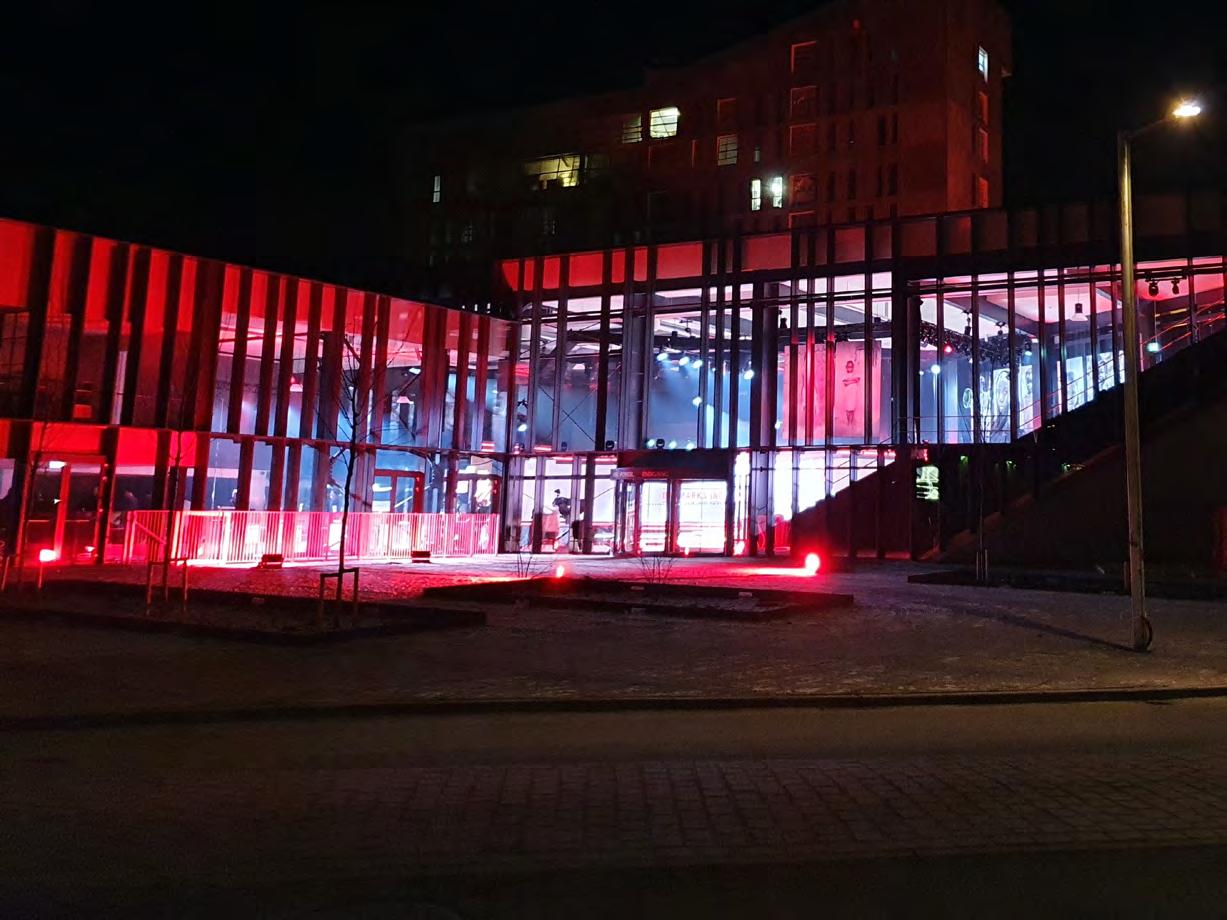
As an important part of the process, Tinghallen has signed a new electricity agreement. Midtjysk Elhandel is ensuring Tinghallen has a long-term green procurement strategy, with optimal risk
spreading and price optimisation and 100% transparency in the procurement partnership. The agreement is fully in line with Midtjysk Elhandel’s goal of giving customers the best conditions for choosing an electricity contract and purchasing certified power – in a longterm partnership.
We’re growing at an astonishing rate. We also have a goal of being energy-neutral. Our agreement with Midtjysk Elhandel is an important step in our green transition, where we’re given a fixed price for green power. We give high priority to openness and honesty in our partnerships, and Midtjysk Elhandel can also deliver on that.”
Klaus Jørgensen, Technical Manager, Tinghallen
Even COVID-19 can be exploited to advance the green transition. That is how it was at Herning Blue Fox. The lockdown of society and a sports hall with no spectators meant that the ice hockey club had more time to pursue their green goals. Energy optimisation was high on the agenda, and electric charging stations were in focus. Herning Blue Fox therefore chose to expand their existing collaboration with Verdo.
In addition to being a sponsor of Herning Blue Fox, Verdo is already a local player in that it supplies electricity and heating to Herning residents. This was

also a factor in the decision to choose a charging station solution from Charge, which is Verdo’s concept, notes Blue Fox director Torben Skovsgaard.
“By choosing Charge and expanding our partnership with Verdo, we’re helping to boost cohesion in the city – by working with a local company and sponsor, and the fact that our charging stations expand the city’s infrastructure.”
He is very aware of the importance of leading the way in the green transition.
“As a sports club, we have an obligation to contribute to the green transition, and we have a unique platform where we
can communicate with and inspire the businesses and people who come and take part in the sport,” he says.
In 2021, Herning Blue Fox installed two Charge charging stations for its staff. In 2022, the plan is to add four more charging stations from Charge, available to all locals, at the club’s attractive new car park, expected to be opened in the spring.
Going to work at Verdo has to be a pleasant experience. We therefore create the setting for a committed community and dedicated employees. Through initiatives like Verdo Awards, we pay tribute to employees who seek to advance the community and lead the way as good examples in leadership, innovation and performance. Our employee well-being survey in 2021 also showed that employees are happy to go to work.
For us, an attractive workplace is also a place where we have a social
community. That is why we take part in fitness runs, bike races and other activities together. We have a cycling club and a hunting and angling club, and we enjoy each other’s company at the annual Christmas party.
Our staff social club also invites employees and their families to events such as the annual trip to Djurs Sommerland and Christmas bingo, among many others.
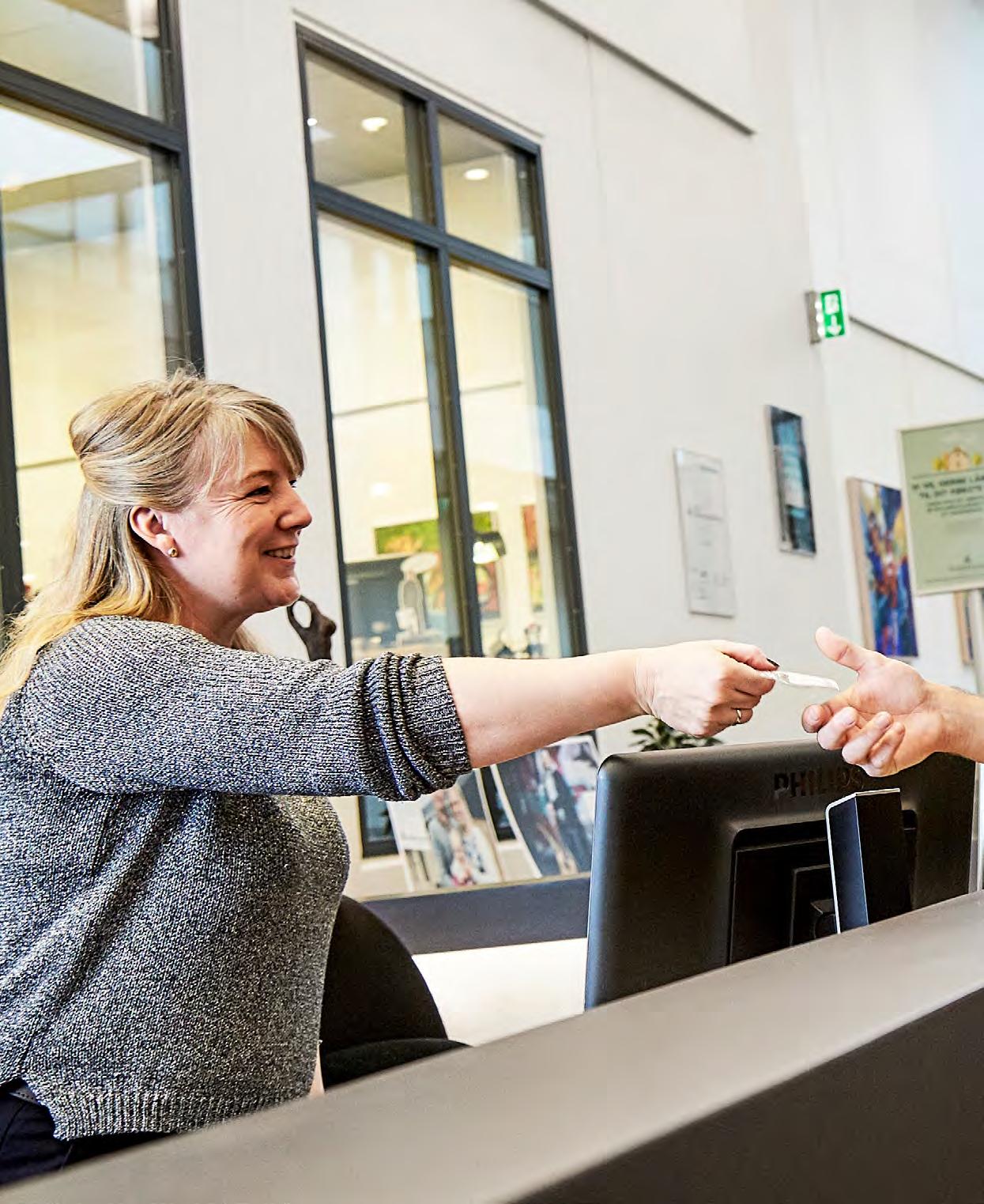
Verdo has a wide range of employees in a variety of functions, all of whom contribute to achieving our common
goals. For example, we seek to have a high proportion of apprentices and trainees, while also retaining senior staff, so that their experience and knowledge can benefit Verdo as long as possible. It is also important to us to include and create opportunities for employees with special needs – for example in the form of a flex job scheme. You can read more about this in the case on electrician Henrik Amdi on page 45.


Verdo collects dedicated and ambitious employees, who seek to advance the community and lead the way as good examples in leadership, innovation and performance. That is why we hand out three Verdo Awards within these categories every year. However, there were four winners this time, as the Performance Award was jointly received by two winners.
In line with tradition, all employees had the opportunity to nominate
candidates for the Innovation Award and Performance Award, stating their reasons, while the Leadership Award is handed down by Group Management. Group Management then selected winners from among the nominees. The winners were announced at a dialogue meeting held by CEO Jakob Flyvbjerg Christensen.
Winner of the 2021 Leadership Award: Max Pehrson Frederiksen,
Head of Department, Energy
Winner of the 2021 Innovation Award: Toke Andreassen, Verdo Energy Systems

Winners of the 2021 Performance Award: Tim Deuce Patterson, Trading, Carbon Partners Inc. and Jonas Søgaard, Teknik
Each winner received a certificate and DKK 5,000
At Verdo, we want to create an even better workplace, with a strong common corporate culture. As an important part of that focus, we invited all employees to take part in an employee well-being survey last autumn. There was strong support among employees, such that we achieved our target participation rate of 80%. The survey thus gives a true and fair picture and a good basis for the ongoing work of developing the company, including the company culture, using the results.
O verall, the survey showed that employees are happy to be at Verdo. They have a high level of commitment and satisfaction. But there are also areas where Verdo can improve as a workplace. Work to improve employee well-being and commitment via specific initiatives has begun, and extends into 2022.
If we compare Verdo with other private companies, we also scored very well. On virtually all parameters, we exceed the benchmark, which includes
about 2,300 employees in the private sector.
In autumn 2022, we will again test the water among employees and follow up on our efforts. This will be via a smaller questionnaire this time – a ‘pulse’ survey. We will continue to survey employee well-being in future, so we can make improvements in selected areas.
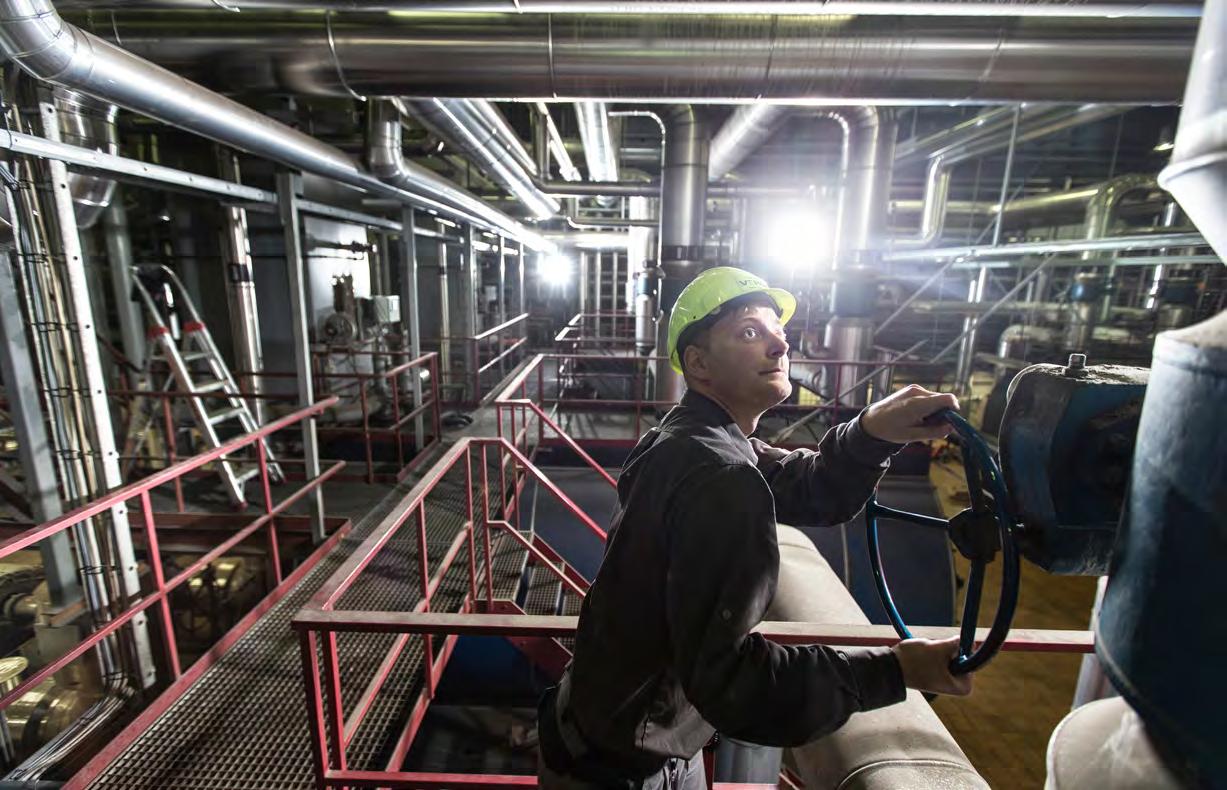
The happier our employees are, the more our business thrives. With this in mind, we have a number of clubs that help to bring employees together who have common interests, in pursuits like hunting and fishing. The ‘Good Energy’ association, conversely, gathers people
across geography and supports local events and activities.
One of the regular events during the year is participation in the DHL Stafetten relay race, and 2021 was no exception. In early September, a large group of employees attended in both Aarhus and
Aalborg, where participants enjoyed communal dining in the tent, in the mild late summer weather.

At Verdo, we are very keen to give something back to the local communities we are part of. We want to invest in ensuring vibrant and long-term development locally, so that the business community remains strong, healthy and attractive. This is achieved in part through our involvement and
partnership with educational institutions. 30 September 2021 was therefore a special day. No less than three of our apprentices were among East Jutland’s best, according to the tradesmen’s association Aarhus Haandværkerforening and the Confederation of Danish Industry. All three were presented with a
medal at Aarhus City Hall to mark their successful training and hard work to become qualified technicians at Verdo.
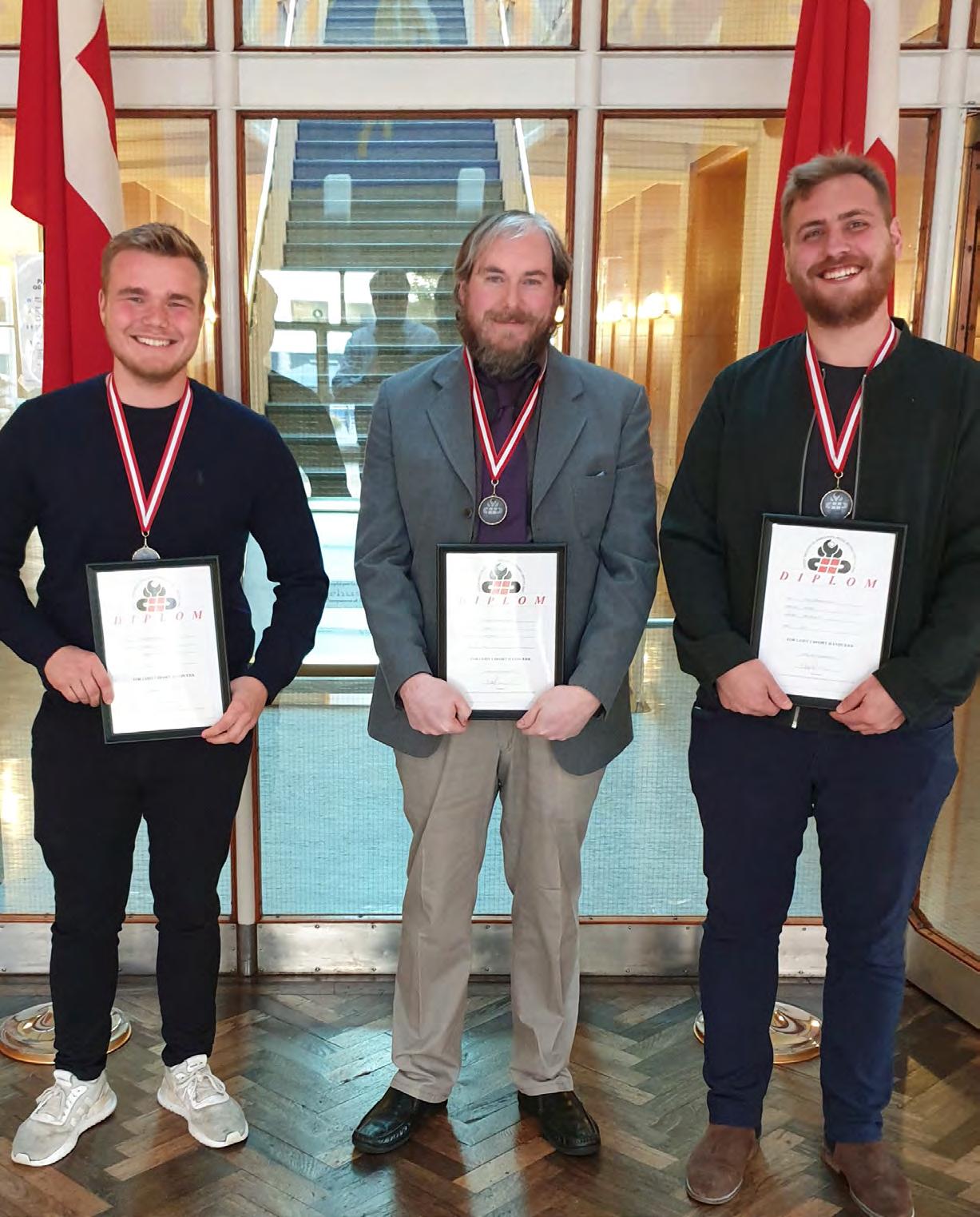
In 2021, Henrik Amdi celebrated 25 years of service at Verdo, where he works as an electrician. He works in a flex job now, however, since being diagnosed with Parkinson’s disease in 2021, with the limitations that entails.
As an electrician, Henrik Amdi works in the field and is responsible for performing checks, measurements and extended safety inspections on electrical cabinets along roads and paths in Randers Municipality.

“I enjoy my work, and it means a lot that I can organise my own working day,” says Henrik Amdi, who works three hours
a day, four days a week.
“A flex job at Verdo is the best solution for me, and it’s meant a lot that I could stay here. It’s important for me to have time for training and to keep my mind active. This has actually meant that I’m less affected than many others with the same illness, but also that I have energy for my family when I have time off.
Although some time passed before Henrik Amdi told his manager about his illness, it was well received by everyone.
“It can be difficult to be the person
who needs assistance, but it’s mostly me who feels that way about it. Everyone is very considerate – and I would have done the same for a colleague,” he says.
Henrik Amdi greatly appreciates his helpful colleagues:
“There’s great solidarity. If there’s something I can’t manage in the field, one of my colleagues drops by and lends a hand.”
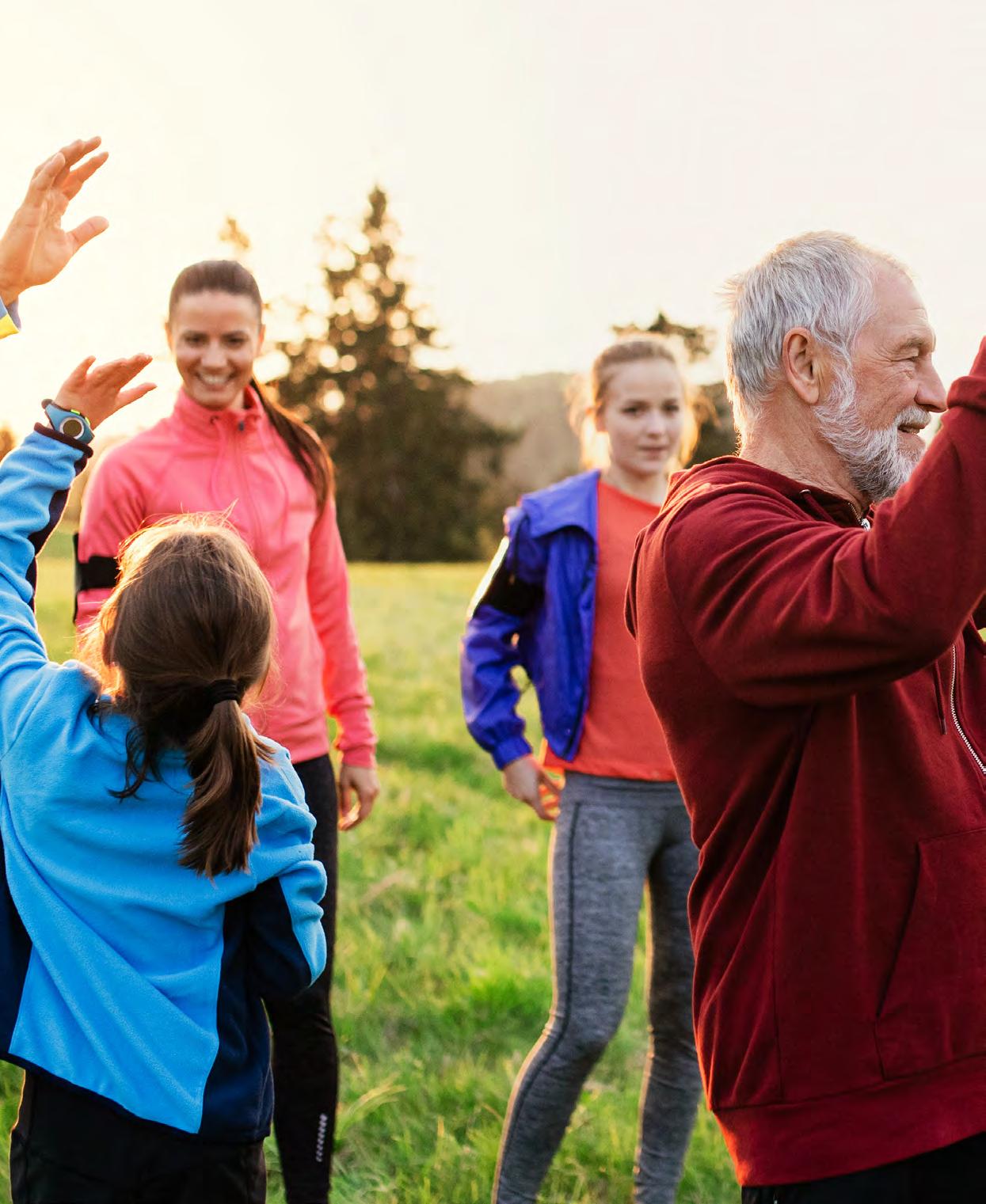
In 2021, we supported:
Randers FC
• Randers HK
Harbour Challenge Randers
Hornbæk Idræt & KulturCenter
• Værket
Randers Teater
Randers Regnskov
• Randers Festuge
BROEN Randers
• K ræftens Bekæmpelse and Knæk Cancer
Herning Blue Fox
• HC Midtjylland
HFH
S tudsgård Gymnastik & Idrætsforening
s a purpose-driven company, it is in our DNA to give back and contribute to the development of our local communities. That is why we engage in leisure and cultural life, and support local sports. For example, in Herning, we sponsor Herning Blue Fox and HC Midtjylland. In Randers, we are the main sponsor of Randers FC, and have been involved since the club’s inception. We also sponsor Værket in Randers and Randers Teater. We are proud to help add life and energy to the initiatives
and institutions that strengthen the community and local cohesion.
Part of our energy also goes into demonstrating and creating career paths, sharing our knowledge and holding various events for children and young people in our local areas. We help to host events such as Water Day, where local school children take part in a variety of activities that focus on water and its importance. We also partner with educational institutions and give students,
trainees and apprentices tangible insight into working life.
When we play an active role in the local communities we are present in, the aim is also to create an attractive foundation for a vibrant and growing business community. We particularly support sustainable projects and initiatives. We prefer to do this in partnership with other local players, because we best succeed when we work together to make the right imprint on the future.

At Verdo, we work every day to protect the groundwater, but it is also important that we pass on our knowledge so that others gain an understanding of how they can help protect our drinking water.
That is why we invited local schools to our Plant a Tree event in May 2021. 200 school students in years K-6 from Randers made a contribution to cleaner
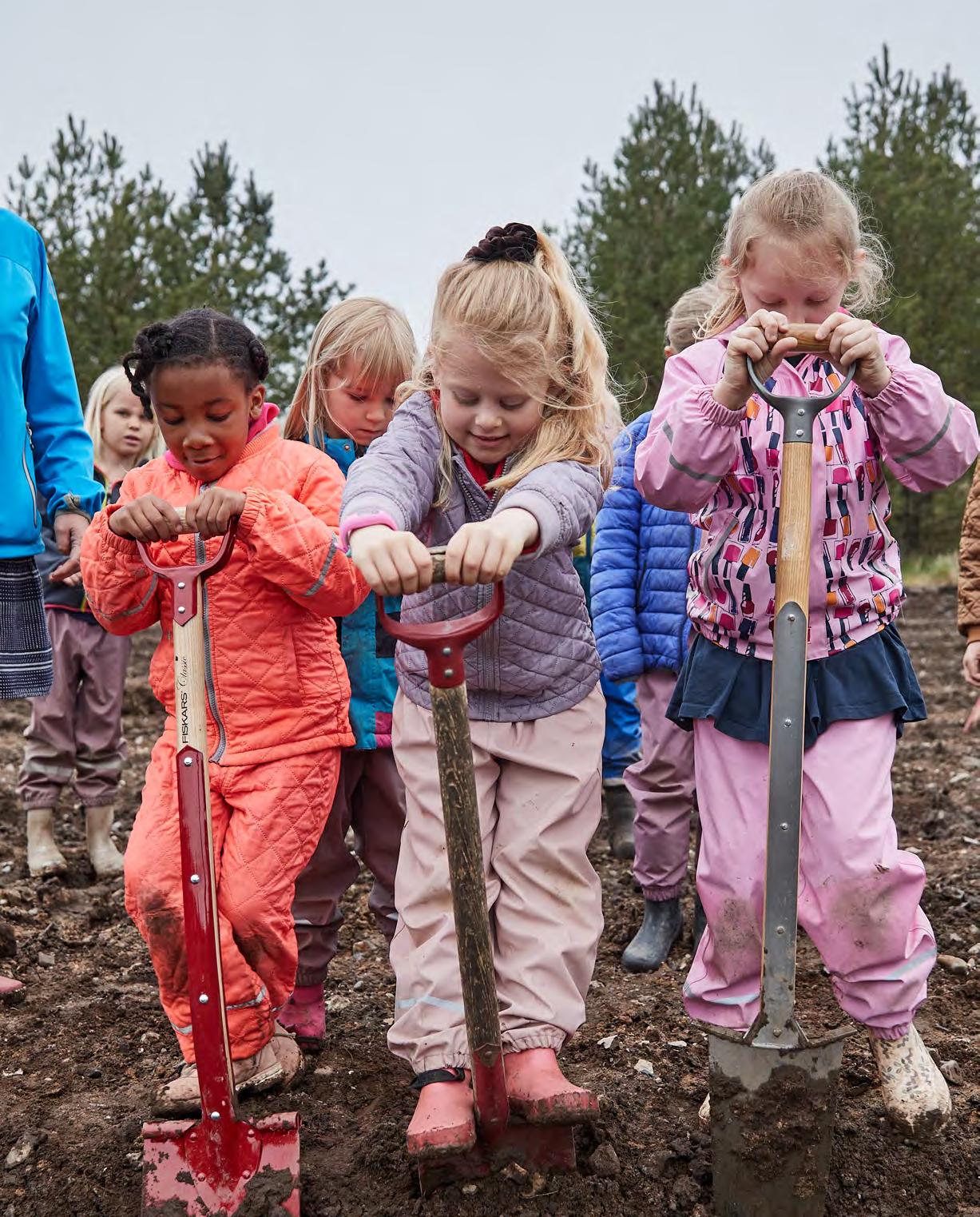
drinking water in the local area when they were given the opportunity to plant trees in Randers Sønderskov, south of Randers, above the groundwater at Vilstrup Vandværk.
In addition to planting trees, the students were given the chance to taste two kinds of groundwater, and to ‘score a global goal’, to give focus to global goal
#6 – clean water and sanitation.
The event was arranged in collaboration with Skovdyrkerne, an organisation that helps ensure our forests meet requirements for diversity and growing conditions. In this way, we ensure that the forest best protects the groundwater, and also becomes a recreational area for locals.
Verdo has partnered with Vandmiljø Randers and Randers Naturcenter for many years to mark Water Day – the United Nations’ international theme day focusing on water that takes place every year on 22 March. We have done this by inviting year 3 students from primary schools in Randers Municipality to Gudenåen, to learn more about water.
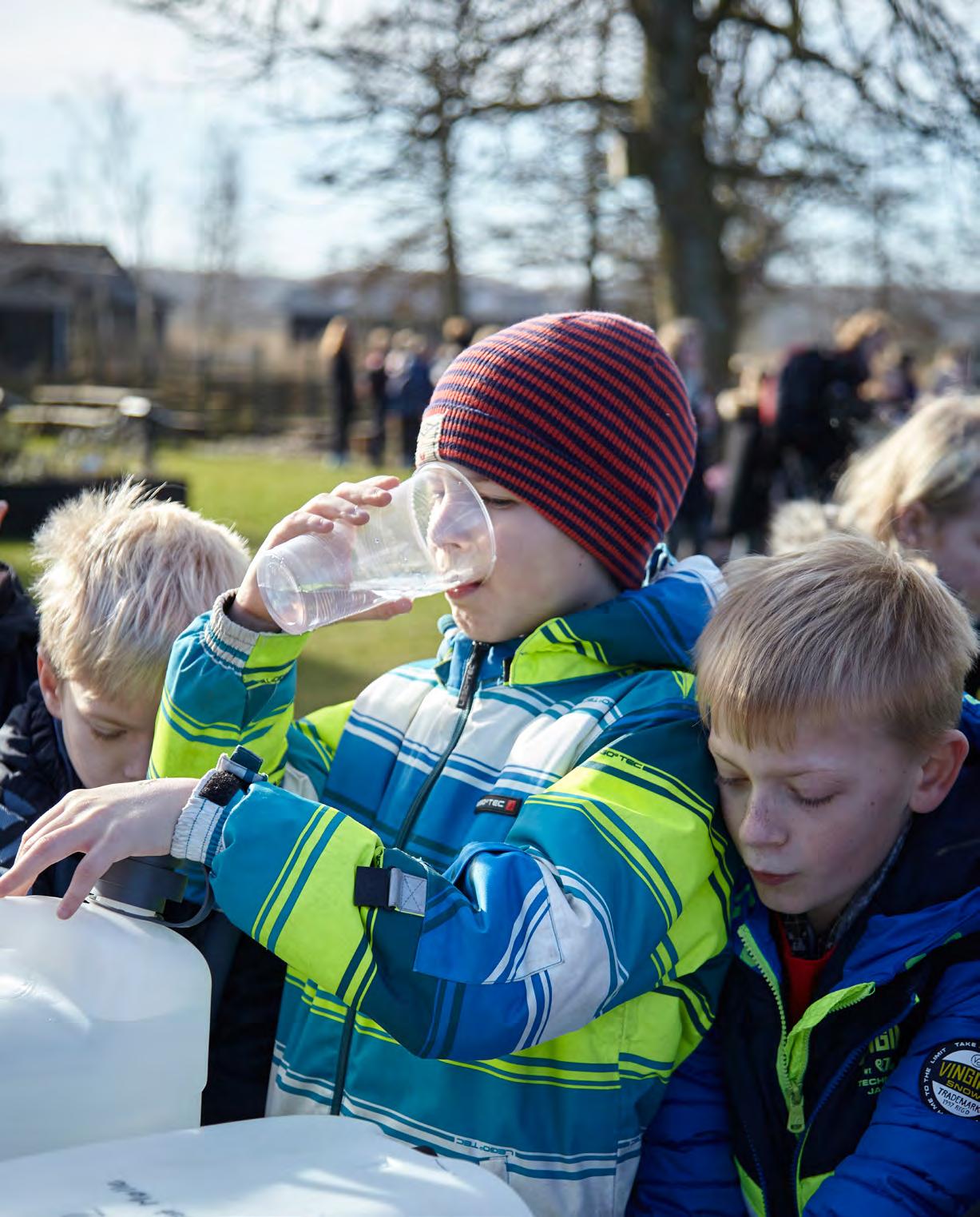
The event has been fully booked in the past, with more than 400 students, who
have had an instructive day on how we protect our drinking water, and how they can contribute in the future.
However, COVID-19 has meant that the event had to be cancelled in both 2020 and 2021. Instead, we chose to develop a digital platform together with our local partners, so that students still had the opportunity to mark Water Day through online teaching material (Vandløbet).
Vandløbet is an example of local collaboration, where we give students and schools something back by sharing our expert knowledge. With a digital solution, we not only help to future-proof the learning, we also help to spread knowledge beyond the municipality.
Verdo is constantly working to expand the district heating network, and in 2019 we expanded west of the E45 motorway when we established district heating pipes in Over Hornbæk, where there are existing homes and new allotments.

We started converting several homes from gas to district heating in the area in 2021, and the work will continue in the
coming year, as we also explore opportunities in other locations in and around Randers.
We drilled under the E45 motorway again in 2021. This time at the industrial district southwest of Randers. The project involved doing directional drilling under the motorway and pulling district heating pipes under the road.
The section under the highway was 108 metres long, and we drilled at depths of up to eight metres.
The entire pipeline for the project covered 650 metres from Verdo’s peak load plant, to the area west of the motorway.
We opened a new heating plant in Studsgård, south of Herning, in summer 2021. The village had been left without a source of heating when the previous agreement to take off surplus heat from a local business expired. We therefore invested in a new green energy plant that future-proofs the area, with district heating for all village residents.
There has been constructive dialogue with the Studsgård Citizens’ Association throughout the process. A
recreation area has been established on the site of the heating plant for citizens to use, and vegetation has been planted to conceal the heating plant.
The new climate-friendly district heating production was launched on 1 July 2021.
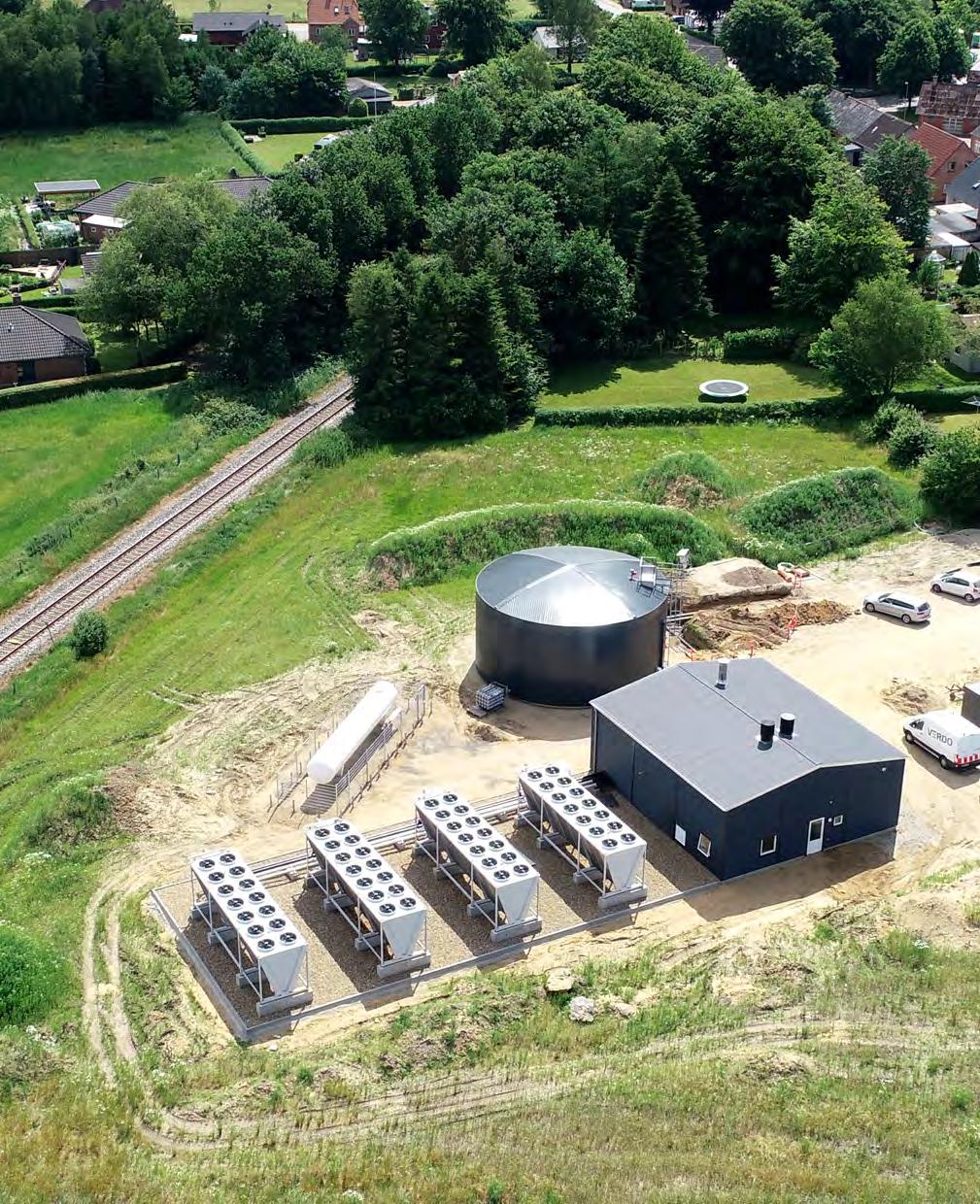
The 1.1 MW heat pump with four air coolers primarily produces district heating using cheap surplus electricity.
The official opening was marked on 25 August, when many residents turned
up for a tour of the heat pump plant and an explanation of how the advanced equipment works. After this, the hot dog stand operated by Kelds Pølser & Udlejning was kept busy serving hot dogs, Cocio chocolate milk, soft drinks and coffee over the counter to those who came.
Local development is essential in our social contract. We achieve this, for example, when we share knowledge and do new development with a wide range of players. That is why Verdo participated in the 2021 TBMI (Technological Business Model Innovation) Challenge, where we were assigned a case together with a group of talented students from Aarhus University’s Department of Business Development and Technology, located in Herning.
As part of the project, the students
reviewed how Verdo inspects the street lights in Herning Municipality. The aim was to optimise the current system and find a smarter, better and greener solution.

The project spawned two suggestions: The first was an Internet of Things (IoT) unit to monitor the operational status of the street lighting and automatically report faults. The second involved placing QR codes on street light poles, which residents can scan if they notice a fault.
The students thus gave us some exciting and very concrete ideas on how to think more innovatively about how we inspect street lights in the future. Given our good experience from the productive collaboration, this will not be the last time Verdo takes part in a case at the TBMI Challenge.
Denmark’s first outdoor test area for smart traffic signals – DOLL Living Lab – was officially opened in autumn 2021 in Hersted Industripark in Albertslund. The aim of DOLL Living Lab is to improve public transport by finding smart new solutions to urban traffic challenges, including those in Copenhagen. In the

future, buses need to be able to travel through cities faster, for the benefit of the climate and residents.
Verdo is one of the players behind the test centre, which has come into being through a public-private partnership. The result is Europe’s largest Living Lab for developing the LED lighting
and Smart City solutions of the future. The vision is for DOLL to be the world’s leading innovation hub for developing, testing and demonstrating intelligent lighting in the field.

The coal crane came to Randers at a time when lots of coal was being used, and was effective for handling the coal.
The crane was later taken out of service due to new mobile crane types which are more efficient and flexible and due to a greater focus on biomass, which is the focus of operations at the Port of Randers today.
Verdo had a desire that others be able to enjoy the crane’s resources. We therefore decided to remove the crane in order to dismantle it and recover about 400 tonnes of steel.
After a process involving professional advisors, it was agreed that
explosives should be used to tip the crane over. Long and thorough preparations followed prior to the operation, so that the explosion could take place in the most effective, safe and eco-friendly manner possible.

All liquids were carefully drained from the machine. The crane was weakened in strategic locations, and strengthened in others, to ensure it would fall on the desired area. A large area was covered with wood chips to act as a cushion and reduce noise etc. from the crane’s fall.
During the period before, during and after the explosion, the north harbour and pier were completely closed,
and there were guards at the normal entrances. The north harbour basin was also placed off limits until the blast had occurred.
After the crane was tipped over, the structure was carefully cut into smaller pieces and driven away for recycling. The steel is recycled by smelting to make practically everything that steel is used in.
The entire operation – from preparation for the explosion until the last container filled with steel was driven from the harbour – took about two months.

At Verdo, we believe that good partnerships offer important synergies and create a range of shared benefits. We therefore cultivate close, long-term relationships in a variety of contexts.
For example, it might be through collaboration with a trusted supplier on a new customer solution. It could be partnering with interest organisations on a common foundation for certified biomass. It could be through cooperation with universities and technical colleges in training apprentices and interns, or with municipalities and other public
institutions to contribute to development of the local community.
We want to help launch new collaborations, be open to new opportunities, and generally reach out and engage in a dialogue with our partners on how to develop a meaningful community together based on a sustainability agenda.

Partnerships do not have to be embedded in a contract. Networking and knowledge sharing across sectors are also valuable building blocks, which we believe are of great mutual value.
Because the aim is essentially to use each other’s strengths to achieve common goals, and jointly find innovative solutions that ultimately create a better and more sustainable future.
Netverk is a forum launched by Verdo, which we hold twice a year. The aim is to create and strengthen relationships that inspire sustainable solutions, innovation and collaboration.
Future transport will be electric. But how can the business community best join in on the journey? We have begun to address this key question, so that we can together find solutions and be a green step ahead. We therefore invited business representatives to Netverk in November 2021, where our expert panel and participants considered the topic from various angles in relation to electricity and charging infrastructure, and replacing the vehicle fleet.
The panellists were Søren Jakobsen, Chief Consultant at Dansk Elbil Alliance (Danish eMobility), Simon Justesen, EV/ PHEV Product Manager at Ejner Hessel, Torben Skovsgaard, Director at Herning Blue Fox, and Torsten R. Hermansen, Business Development Director at Danske Fragtmænd A/S.
The moderator was Steffen Max Høgh, who ensured that the debate remained focused, as well as entertaining. Steffen Max Høgh runs the Bæredygtig
Business consultancy company, which advises companies on sustainability and business.
About 100 attendees took part in Verdo Netverk, primarily from Randers, Herning and Aarhus – consisting of partners from the public and private sectors, suppliers, business customers and members of the Board of Representatives.

Not much is happening with heavy transport, but I think in the long run we’re going to see a hockey stick effect. Suddenly things will happen fast.
Torsten R. Hermansen, Business Development Director at Danske Fragtmænd and panellist at Netverk 2021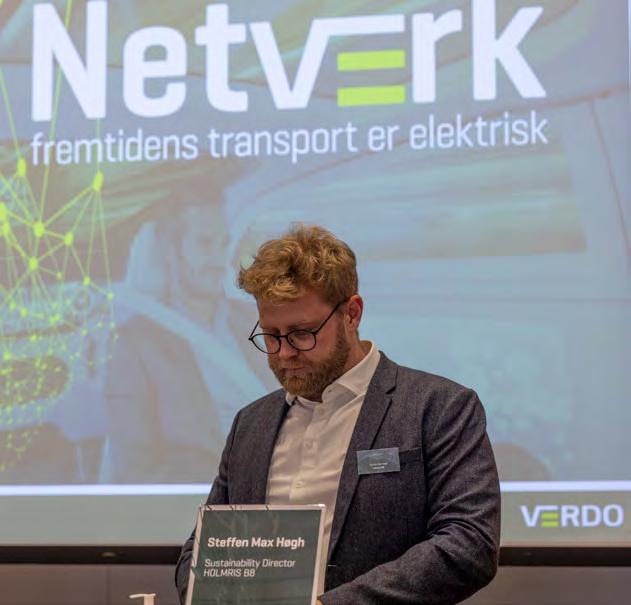

As a sports club, we have an obligation to contribute to the green transition, and it gives us a lot of synergies that we can offer our guests charging stations when they come to our car park.
Customers who come to buy cars today have a completely different standpoint. They’re much more knowledgeable, so changes are going to happen fast. We’re facing a very exciting future.
Aalborg Municipality has decided to establish special BRT (Bus Rapid Transit) lanes – a ‘light rail on rubber wheels’ –where buses are given high priority in signalling systems so that they mostly are met with green lights.
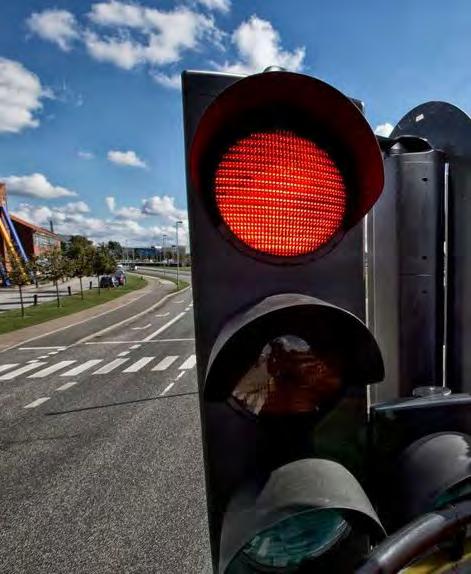
The 12-kilometre Plusbus segment in Aalborg will be the largest construction project in the municipality’s history. Aalborg Municipality entered into an agreement with Verdo for the entire external signalling and detection system for the project. Verdo helped redesign 25
intersections as part of the first stage of the project, which is expected to be completed in 2023.
The new construction project gives higher priority to public transport and to road safety, which is why there has been a major focus on the signalling systems for the project. The new infrastructure will mean that motorists, pedestrians and bus drivers will all be guided by the new signalling systems, to ensure the best traffic management at all times of day, and especially during peak periods.
Verdo’s contribution to the signalling systems includes establishing detection equipment in the form of radar, coils, cameras etc. as well as lanterns, cables, approx. 400 masts and other hardware. Verdo will also supply contractor services and controllers and programs for interim facilities.

When residents of Randers Municipality notice a fault with a street or traffic light, they report it to the municipality’s fault reporting system. These reports end up on Harald Ruby Christoffersen’s desk. He is a road engineer in Randers Municipality, and manages contact with Verdo when a defective light mast needs to be attended to.
“Verdo makes sure everything works. They have extensive knowledge and expertise, and we have a transparent
partnership based on great trust. There are no hidden agendas. This is important to us,” says Harald Ruby Christoffersen. Street lighting is subject to high demands. The components must be extremely weatherproof, the light must be optimal, and motorists, cyclists and pedestrians alike must all benefit from the light.
“As a sparring partner, our most important task is to make it easy for customers, and to present alternatives
where we focus on smart technology, economics and energy optimisation,” says Per Gylling, Head of Department at Verdo Teknik.
In a number of Danish municipalities, Verdo also helps design and install smart traffic-responsive signalling systems that ensure dynamic traffic flow and thus reduce CO2 emissions, as fewer cars stand idle in queues.

A large number of Danish municipalities have chosen Verdo to help operate and maintain traffic and street lights.
• Verdo is one of Denmark’s largest street lighting operators, with over 230,000 light points spread across several municipalities, around the country.
• Verdo establishes and services street lights and traffic signal systems for many customers in Denmark. In fact, there are 300 systems, representing more than 10% of the country’s total number.

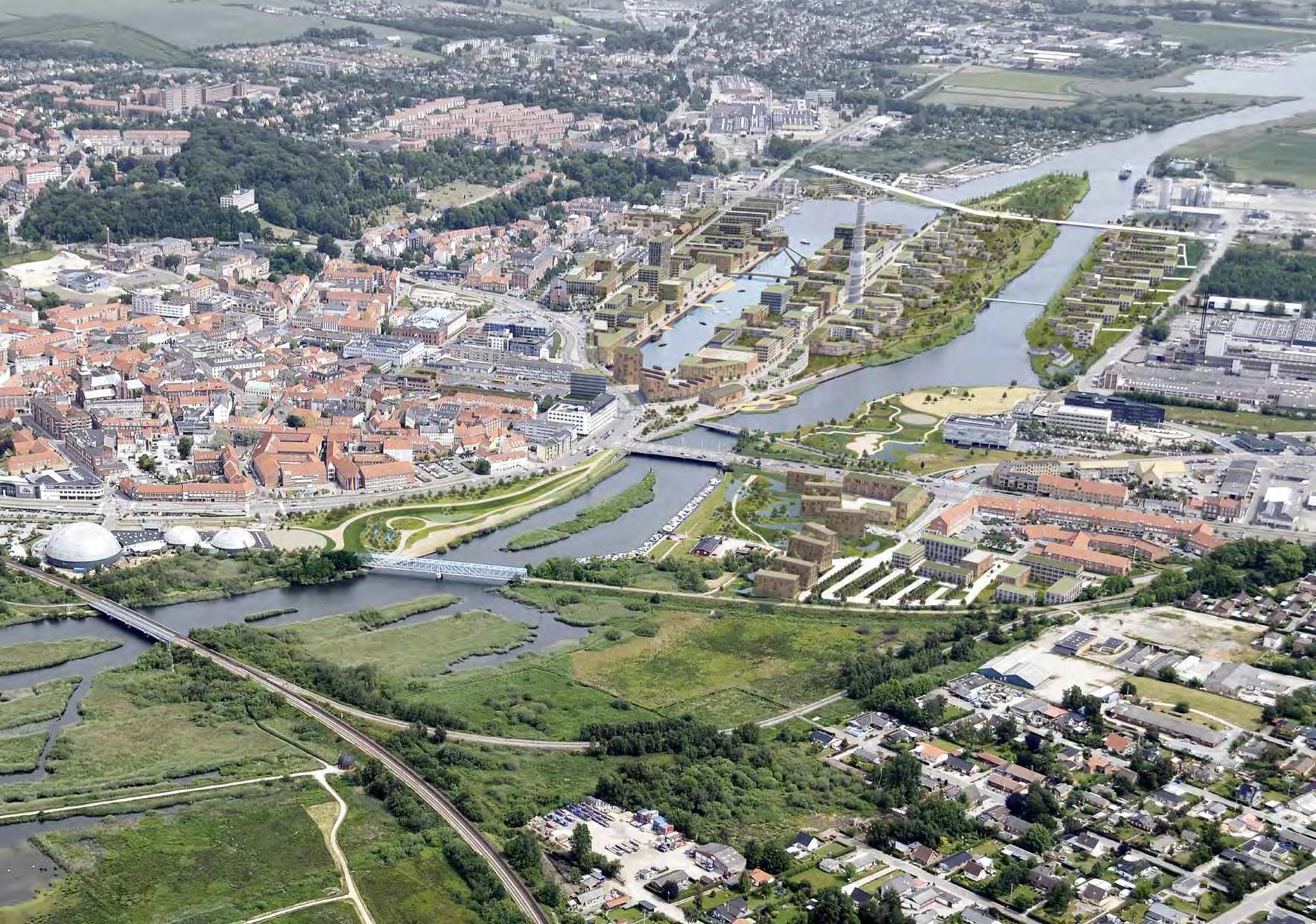
Over the next 25 years, a 59-hectare area of land at the Port of Randers will be transformed from commercial use into a new district with space for up to 8,000 residents, near Gudenåen and Randers Fjord. It will be the largest urban expansion project of its kind to date in Jutland.
Through the urban development plan, Randers Municipality aims to give the harbour area back to town residents. Verdo, which owns and operates the CHP plant at the harbour, supports the plan. This marked the beginning of a partnership between Verdo, the Port of Randers and Randers Municipality, who share the common goal of realising Flodbyen Randers.
“Flodbyen Randers is an exciting and ambitious project. It’s the biggest and most strategic partnership we’ve established during the two years I’ve been at Verdo. I’m proud of how we work together to find new green energy supply solutions for citizens,” says Jakob Flyvbjerg Christensen, CEO of Verdo.
Under the agreement, Verdo’s CHP plant will have to be converted to another mode of operation within a number of years. The final timing depends on several different factors and has not yet been decided.
“Verdo dares to take risks and wholeheartedly work towards the green transition and realising Flodbyen Randers.
It’s very positive that Verdo takes broad responsibility for advancing the municipality, and they’re a central player for us in the development of Randers,” says Jens Heslop, Director of Development, Environment and Technology in Randers Municipality.
It is vitally important to us to have a partner who continues to develop a sustainable energy supply for the town residents.”
Jens Heslop, Director of Development, Environment and Technology in Randers Municipality
In 2020, Verdo established its head office in Herning, so we can create close contact and strengthen relationships with our customers and partners. As a company in Herning, we wish to support Herning Municipality’s strong focus on the green agenda and contribute not only through our products, but also our sustainability knowledge and expertise.
We do this in several ways.
One of the most mutually valuable is through our membership of Bæredygtig Herning. This is an association that promotes Herning’s sustainable development through partnerships and networking.
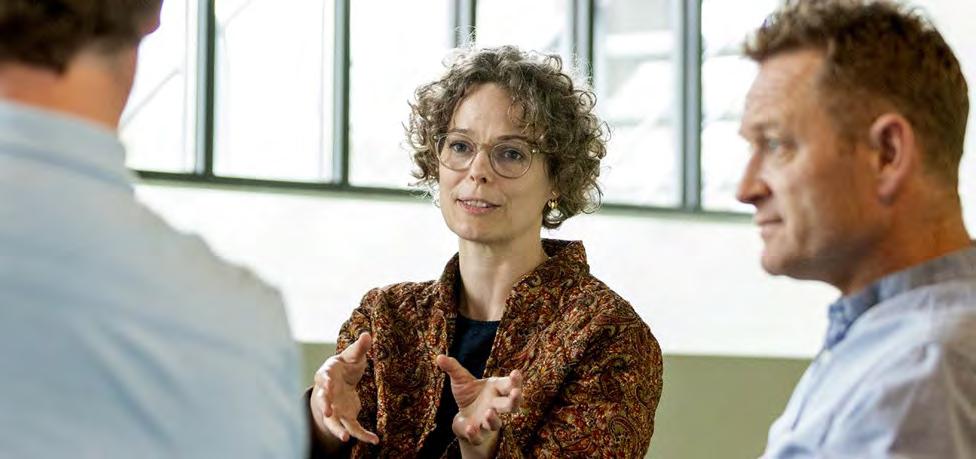

We have already held several meetings with Bæredygtig Herning, where we have
discussed how Verdo can become a key local player in supporting the green transition. We have also jointly held meetings with several potential partners. We have high expectations of this collaboration.
Does nature have the answer to the challenges of pesticides in drinking water?
Verdo Vand has been investigating this at Vilstrup Vandværk. The hope is that, in the long term, the trial can make a difference to our drinking water.
In Denmark, sand filters are traditionally used at water works to filter groundwater to achieve good quality drinking water. But the future supply of clean drinking water cannot be taken for granted, due to the increasing incidence of old pesticides in groundwater, in particular. Hopefully, our project can help change that, and lay the foundation
for the development of cutting-edge biotechnology.
Verdo installed and operated a trial system at Vilstrup Vandværk in 2021. With a focus on bacteria, we tested the development of an eco-friendly and sustainable sand filter technology that can handle the increasing incidence of pesticides in groundwater. The trial was based on natural bacteria from sand filters, where we exploited the existing abilities of naturally occurring, harmless microorganisms to break down harmful substances.
The most interesting thing about the
project was that the focus was on simple water treatment. We were not dealing with advanced water treatment – the emergency solution where you have to periodically purify contaminated drinking water.
We worked with partners such as the Danish Technological Institute and Hjørring Vandværk on the project. The results form part of a wider assessment by the Danish Technological Institute involving other similar projects researching the pesticide problem.
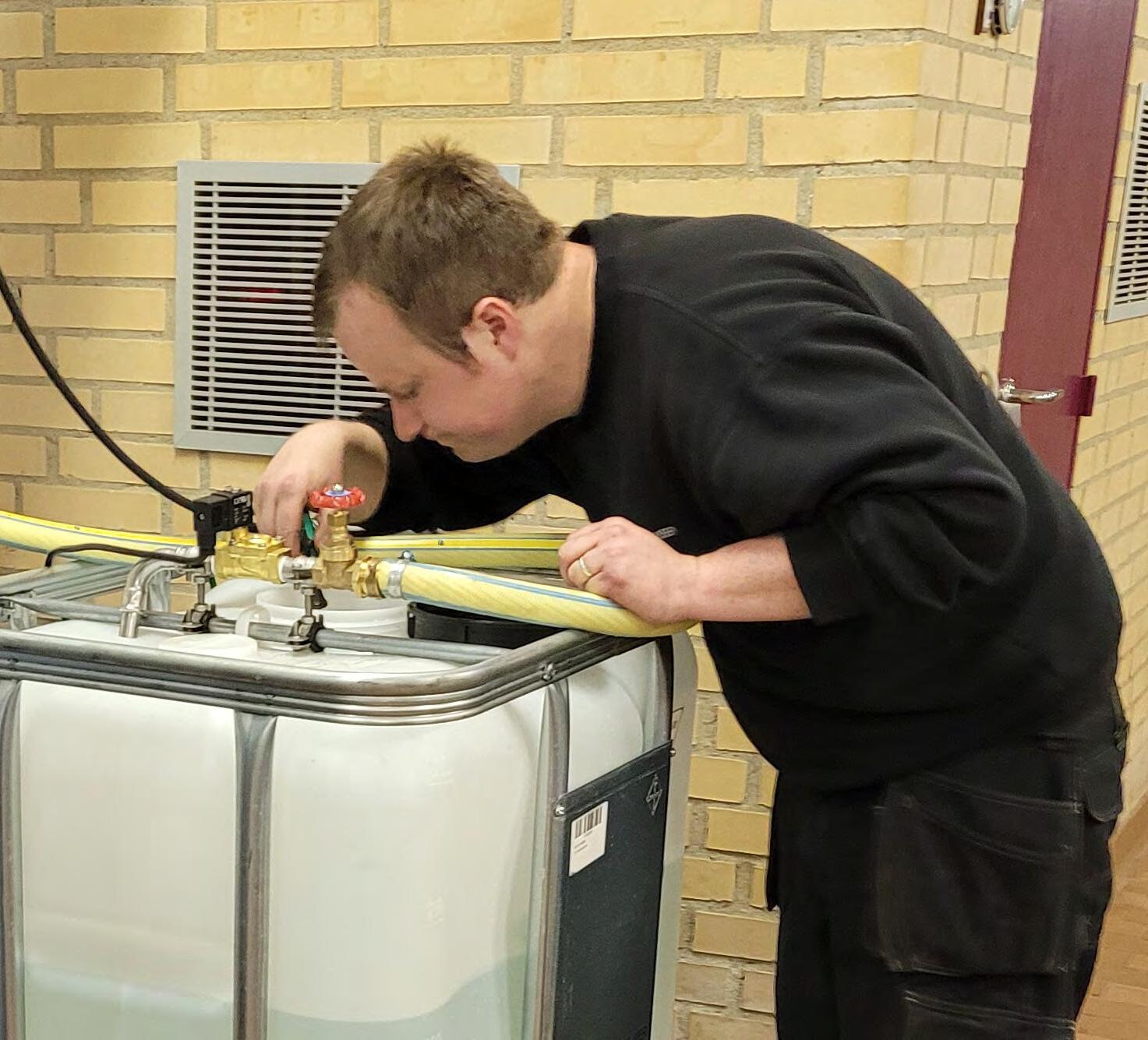
Statutory statement on social responsibility and the gender composition of management pursuant to section 99 a and 99 b of the Danish Financial Statements Act.
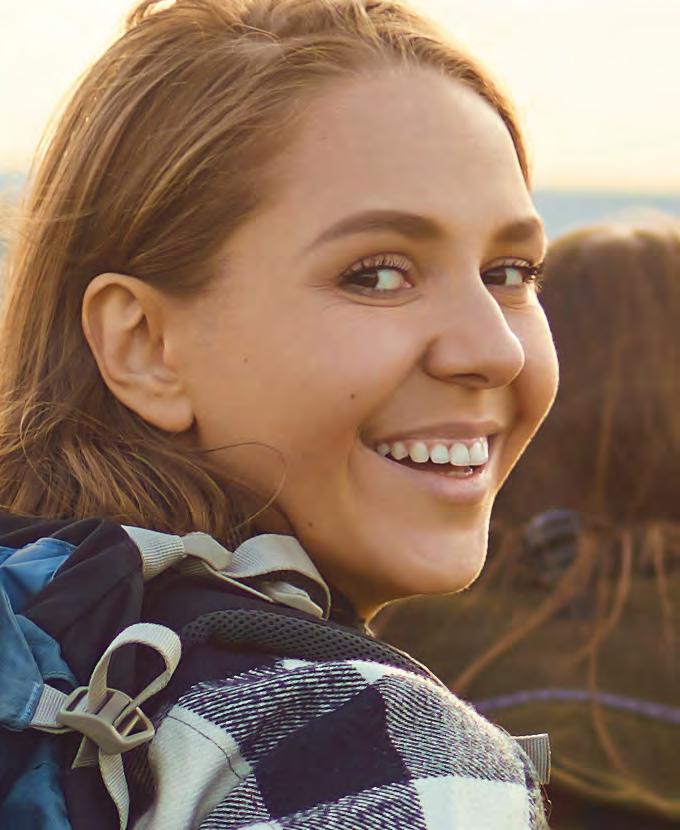
This report forms part of Verdo’s annual report, and covers the period from 1 January 2021 to 31 December 2021.
Verdo operates and develops sustainable critical infrastructure for the benefit of customers and future society
– based on heating, water, electricity and technical infrastructure
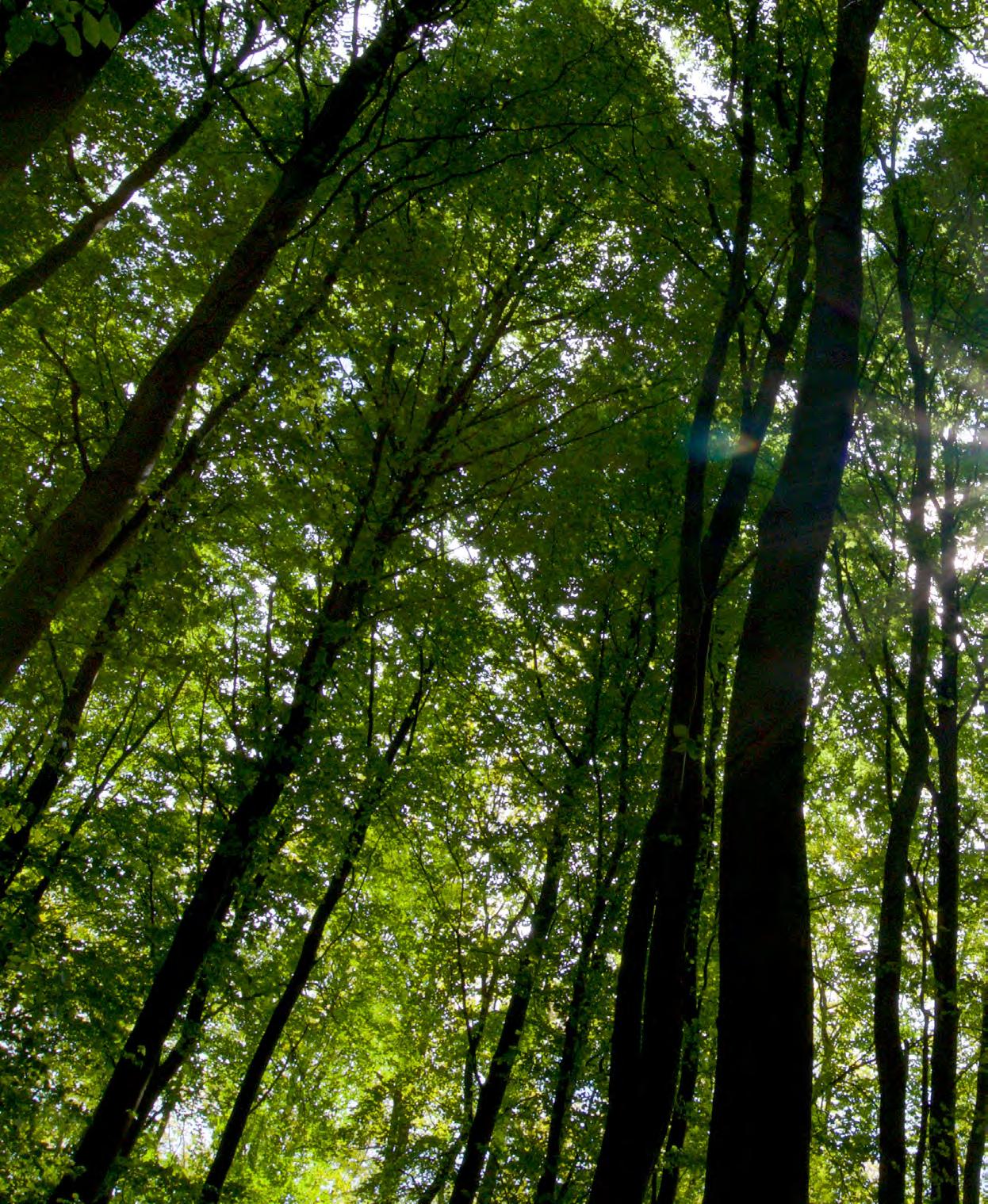
At Verdo, we are very driven by a strong common purpose. We have a clear aim of contributing to positive change in society. It is also our belief that we, as a cooperative society and a supplier of critical energy infrastructure, have a special duty to take a responsible and sustainable approach to everything we do. Put briefly: We have a great social responsibility and we take this very seriously.
We have a targeted focus on our social responsibility, as part of our efforts to grow our business sustainably. By ‘sustainable’, we mean that at Verdo we strive to use our resources in a way that will not burden future generations – environmentally, socially or economically.
There are many ways companies can meet their responsibilities to create a greener and more sustainable world. At Verdo, we have committed to doing so through what we call our social contract. We view our social contract as our birth certificate. It must serve to continually remind us to deliver the extra long-term

dimension that helps make a difference to our customers, employees, local communities and partners.
The social contract therefore has a broad aim, covering efforts in relation to both climate and the environment, and social and economic sustainability. However, as a company that emerged from society’s need for energy, and which provides citizens with security and welfare through the supply of drinking water, power and heating, our primary focus is on sustainability within the green transition.
This is reflected in our ‘A green step ahead – together’ vision. We work hard every day to reduce our greenhouse gas (CO2 ) emissions, and make a sustainable imprint on the future. Our core business is the operation and development of sustainable critical infrastructure based on heating, water and electricity. We also develop green energy plants for industry and utilities, in Denmark and abroad, and we are one of Europe’s leading suppliers of sustainable, certified biomass for
industry and district heating plants. We are also one of Denmark’s largest players handling the operation and maintenance of street lighting, and we supply charging stations for electric and plug-in hybrid vehicles. It is therefore our goal to be among the energy companies that are leading the way in the green area.
Resources
• P eople
• K nowledge
• Raw materials
• Renewable energy
• C apital
Activities
Development and installation:
Energy plants
• S treet lighting
• Traffic systems
• Electrical installation
Operation and maintenance:
• District heating
• Dr inking water
Energy plants
• S treet lighting
• F ibre-optic networks
Service:
Energy plants
• Electrical installation
Verdo adjusted the structure of the Group’s parent company, Verdo S/I, from a self-governing institution to a cooperative society with limited liability (a.m.b.a) in 2021. This was driven by a desire to harmonise the corporate structure with the way the company is managed in practice. As a cooperative society, Verdo is owned by the consumers and is thus the common property of the local community. Our business model is based on us transforming resources into something of value. This involves a significant reciprocal impact between Verdo and the outside world. We are therefore striving to
Trade:
• Electricity sales
• Biomass
• District heating
• Technical carbon
C oal
Future-proof heating, drinking water and electricity

• Green transition
Greater digitalisation
• Robust infrastructure
• C ontributing to a sustainable society – locally and nationally
• Danish and international workplaces with a focus on skills growth
• Tax payments in Denmark
reduce our own CO2 emissions in energy production, but also to reduce emissions from both our commercial and private customers.
Verdo aims to help meet and promote the UN’s 2030 Sustainable Development Goals. We are in a position where we can positively influence the realisation of the global goals, and the goals therefore serve as a guide for Verdo’s sustainability goals. In our CSR work in relation to the climate and environment, we work specifically with global goal #6 – clean water and sanitation, #7 – affordable and clean energy, and #13 – climate action.

Based on our vision and mission, we also have a strategic focus on global goal #9 – industry, innovation and infrastructure, #11 – sustainable cities and communities, and #17 – partnerships for the goals.

This section reports on significant risks of adverse impacts on the climate, environment and social factors Verdo’s business activities are deemed to have, and how we manage these risks, pursuant to section 99 a(3) of the Danish Financial Statements Act.
Verdo’s transformation from black to green energy in district heating production began back in 2002, when the Randers CHP plant started gradual conversion from coal to biomass. Today, the CHP plant has reduced CO2 emissions by 99.3% compared to firing using coal, and continues to work towards the green transition.
Our sustainable biomass, which is used in our district heating production and also sold to our customers in both the private and commercial segments, is certified through schemes that support and ensure that we meet recognised and regulatory standards. To continue to ensure we procure our fuels sustainably, in 2021 we further systematised our procedures for using suppliers based on the new RE-II Directive, which entered into force on 1 July 2021.
The new RE-II Directive sets sustainability criteria and documentation requirements for wood industry waste products and other biomass used for energy purposes.
A significant part of Verdo’s business model is the sale of coal and technical carbon through our Norwegian-US subsidiary Carbon Partners Inc. Technical carbon is used, for example, in the alloy industry and in the manufacture of solar cells. We are keenly aware that the extraction and use of coal is not sustainable. We are therefore committed at the same time to taking responsibility in
working towards the green transition of the industry and phasing out coal.
We have a values-based management foundation, and we strive to ensure all our employees follow internal standards and policies.
Responsible supplier management is an area in which we can see some risks of negative impacts on human rights and corruption. Over a number of years, we have had our suppliers in our Trading division commit to our Code of Conduct. We have not identified any specific risks in relation to human rights or corruption in 2021. This remains a focus area, and in 2021 we formulated a Code of Conduct which will apply to the whole Group. We will commence dialogue with our strategic suppliers on this in 2022.
Social conditions are impacted by low unemployment and difficulty finding suitable candidates for advertised positions. This means higher costs for outside recruitment agencies and loss of earnings due to unfilled positions. We will therefore focus in 2022 on employer branding and further optimising our internal recruitment processes, in order to attract more qualified candidates.
We can also achieve the right mix of resources among our employees through relevant continuing training. A risk in this respect is that the relevant continuing training needs are not
identified and implemented. We have a process for either employee development talks (MUS) or group development talks (GRUS) that we follow when reporting in our HR system.
We saw a declining proportion of apprentices in 2021. Given that apprentices are a pathway to recruiting competent tradesmen, it is important that we have our pipeline. We are therefore seeking to recruit apprentices as broadly as possible. Failure to retain employees who can no longer work in a full-time position represents a risk of losing resources. Opportunities for reduced working hours, such as part-time positions or senior or flex jobs will therefore be evaluated in dialogue with the employee, job centre and immediate manager.
When we talk about Climate, this refers to the prevailing weather conditions in terms of temperature, precipitation, humidity, air pressure etc. measured over an extended period. You could thus describe the climate as the basic conditions to which an ecosystem is subject. Climate problems can include droughts, flooding, rising temperatures and severe storms.
When we talk about the Environment , we mean the physical surroundings and conditions that people, animals and plants live under, with reciprocal influence. Environmental impacts can include air pollution, oxygen depletion in the sea, loss of biodiversity, chemical pollution of the soil and contamination of our groundwater.
Sustainable energy is crucial to Verdo, and we are actively contributing to sustainable development. Our climate and environment policy is largely driven by national and international goals and guidelines, including greenhouse gas reduction targets, international climate commitments and the 17 UN global goals, including goal #13 in particular. The energy sector has a major impact on greenhouse gas emissions in Denmark. Within its economic framework, Verdo seeks to implement projects that ensure cost-effective energy efficiency and minimal climate and environmental impacts.
Verdo’s strategy contains the following goals:
Fair prices for utility services and high security of supply
C O2e and NO x reductions
Clean drinking water
The climate and environment policy is effected in practice by:
Ensuring that information and
necessary resources are available to achieve goals and objectives. Operating and maintaining an effective eco-management system, focused on reducing the climate impact of the company’s activities.
Monitoring and recording our emissions and formulating useful key figures.
• Focusing on procuring climate-friendly, eco-friendly and energy-efficient products and solutions.
• Ensuring that relevant employees are aware of the company’s emissions and motivating employees to make suggestions that can reduce environmental impacts and negative climate effects.
Implementing the projects which prove to be cost-effective.
T he company undertaking to observe applicable legislation and relevant regulatory requirements in relation to the climate and environment.
Via our US subsidiary Carbon Partners Inc., we are co-founders of Mark Energy LLC, which entered into an agreement with the state of Kentucky in 2019 to handle the decommissioning and cleaning up of a discontinued coal mine. Specifically, the task was to restore the original flora and fauna in the area. In 2021, following two years of work, this restoration of the mining area had been completed, to the benefit of nature and the local population.
We see our CHP plant at the Port of Randers as the company activity with the greatest environmental impact. We have a daily focus on the environment in the way we manage our production of district heating and power. In relation to emissions up the chimney and discharges into municipal wastewater. A natural goal here is our environmental
Note 1 CO2 emissions from the CHP plant in Randers and emergency loading plant. This is calculated based on fuel consumption, calorific value and an emission factor, in line with monitoring plans approved by the Danish Energy Agency.
Note 2 NO x emissions from the CHP plant in Randers have been measured using an Automatic Measuring System (AMS).
Note 3 Consumption of wood chips, other biomass and coal is weighed using calibrated conveyor scales. Note 4 Net electricity production from documented sustainable biomass is calculated based on the measured net electricity production, adjusted for the documented share of sustainable biomass. Note 5 District heating production is measured using calibrated meters.
This section contains our statutory statement on social responsibility pursuant to section 99 a of the Danish Financial Statements Act, in relation to environmental factors, including what Verdo is doing to reduce the climate impact of the company’s activities.
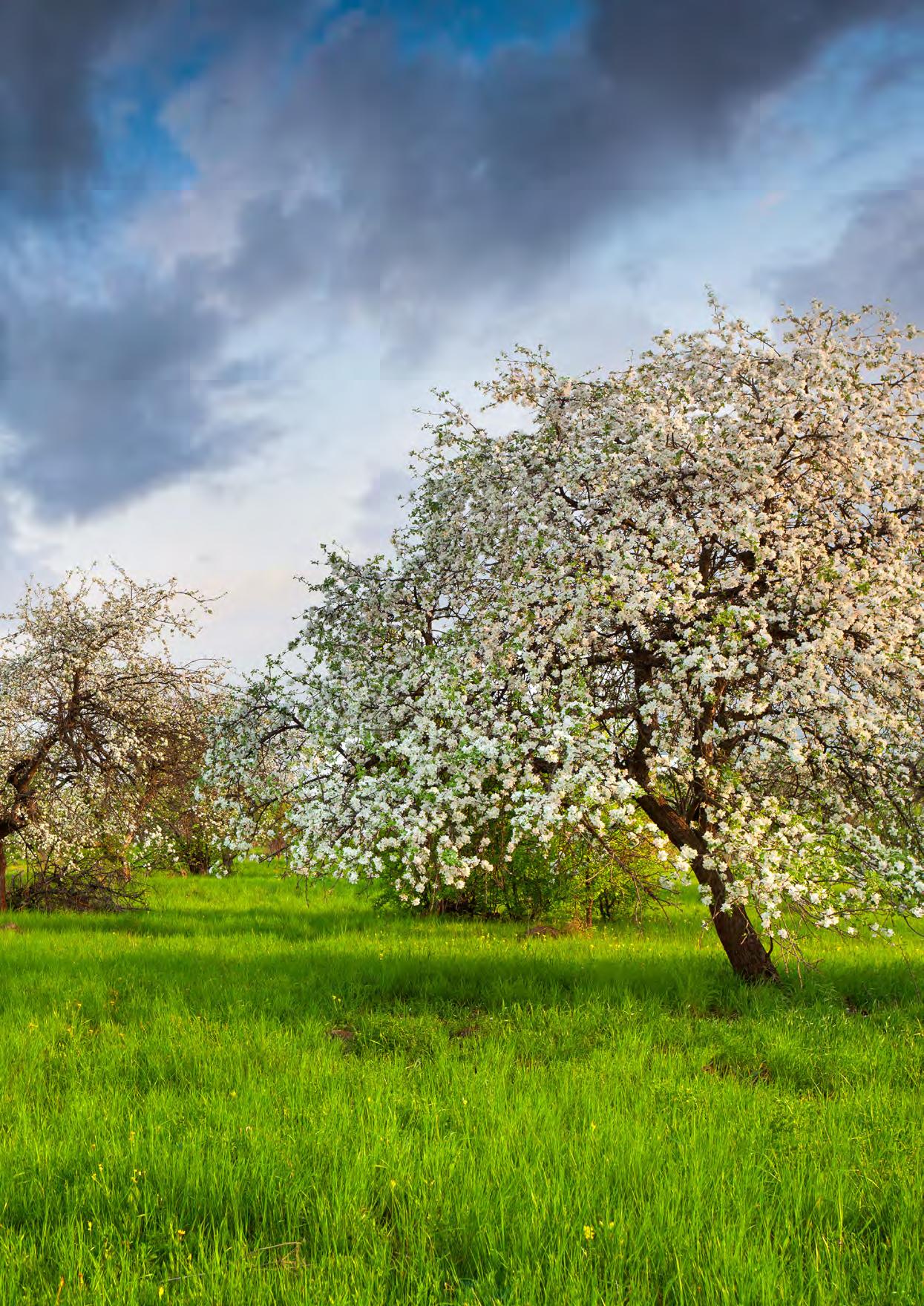
approval, which is verified by a third party.
To reduce NO x emissions from the CHP plant’s primary boilers, we have installed an NCR DeNO x system. The DeNO x system was partially commissioned in 2021, and will be fine-tuned in 2022 to find the right operating parameters at various loads. We have also purchased a new eco-reporting system that increases the quality of our data collection.
The reason CO2 and NO x emissions have increased from 2020 to 2021 is increased fuel consumption and production.
We publish our environment declarations on the Verdo website. The table below shows our actual emissions, while the environment declaration is based on standard values. The environment declaration for Verdo Varme Herning shows emissions of 22.4 g CO2e per kWh of district heating, with a renewable energy share of 92%, while the emissions for Verdo Varme Randers are 9.2 g
CO2e per kWh of district heating, with a renewable energy share of 99%.
Aim of specific goals for waste sorting
The whole company follows the Danish statutory order on waste, and performs waste sorting at our construction sites and our central warehouse. In our offices, we sort waste paper for recycling. We aim to set specific waste reduction targets, but we do not yet have enough data for these to be measured.
In the coming years, the water utilities in Randers will face major challenges in protecting groundwater and drinking water. That is why Verdo Vand partnered with the other water utilities in Randers in 2021 – Assentoft Vandværk, Dronningborg Vandværk, Kristrup Vandværk, Strømmen Vandværk and Vorup Vandværk – so that water consumers get the best solutions throughout the supply area.
The cooperation between the water utilities is based on the notion that
dialogue and collaboration on solutions can lead to benefits to consumers that could not be achieved if the utilities worked alone. The cooperation may consist of common solutions, such as on-call staff and administration, but also cooperation on infrastructure such as emergency supply.
In 2021, we began the extensive work of preparing climate accounts based on the Greenhouse Gas Protocol, with respect to scopes 1, 2 and 3. We have used the Danish Business Authority’s calculation model – initially with the aim of identifying data needs and related processes, with the goal of automating data collection in the long term. Based on our climate accounts, our goal has been to define actions that can contribute to achieving national targets for combatting climate change. We have initially chosen to focus on scopes 1 and 2. We will also measure our scope 3 down the track.
The GHG Protocol is a voluntary, internationally recognised standard for calculating and reporting corporate greenhouse gas emissions. It covers reporting of the six greenhouse gases. All greenhouse gases are converted to CO2 equivalents (also called CO2e).
Having a greener fleet of vehicles with emissions reduced to a maximum of 430 tonnes CO2e by 2025, and 0
We have used the Danish Business Authority’s model to calculate CO2 emissions. Note 1: Verdo has purchased a green power certificate equal to our total electricity consumption. We have applied an electricity emission factor of 0 g CO2e per kWh of electricity. Our own consumption of district heating comes from our CHP plant in Randers and the CHP plant in Herning. We have used the environment declaration
from Herning of 22.4 g CO2e per kWh district heating, and from Randers of 9.2 g CO2e per kWh district heating. Our consumption of district heating in other locations is insignificant. Here we have used the environment declaration from Randers. Note 2: Scope 3 emissions derive from the calculation of scopes 1 and 2. We have not prepared climate accounts for our scope 3.
One of our largest negative climate impacts is from our vehicles. Verdo aims to reduce the total CO2 emissions of its vehicle fleet by 70% compared to 2020 levels, by 2030. Petrol and diesel cars are being phased out as the time comes to replace them, unless it will benefit economics, the climate and the environment to do so faster.
We bought our first plug-in van in 2021, and invested in three electric vehicles and three plug-in hybrid vehicles for use in the field. In 2022, we have ordered a plug-in hybrid vehicle and two electric vehicles.
In 2021, we reduced our fleet of older diesel vehicles after optimising operations. Our CO2e emissions from the Verdo vehicle fleet have increased due to greater driving needs.
In 2020, we launched Charge, our electric charging station concept. Charge flowed out of Verdo’s goal of making a sustainable imprint on the future by developing green products. Charge provides charging facilities for plug-in hybrid and electric vehicles at home, for both private individuals and companies. We are thereby contributing to the green road transport agreement covering one million green cars, greener fuels and a major reduction in CO2 emissions, which is bringing Denmark a big step closer to its 2030 climate goal. This goal requires expansion of Denmark’s charging infrastructure. In 2021, we have spread the Charge concept to municipalities, housing associations and educational institutions, among others. We will continue this work in 2022 and beyond.
Denmark’s first outdoor test area for smart traffic signals – DOLL Living Lab – was officially opened in autumn 2021 in Hersted Industripark in Albertslund. Verdo is one of the players behind the test centre, which has come into being through a public-private partnership. The result is Europe’s largest Living Lab for developing the LED lighting and Smart City solutions of the future. The vision is for DOLL to be the world’s leading innovation hub for developing, testing and demonstrating intelligent lighting in the field.
Number of electric vehicles Number 58 Having a greener fleet of vehicles with emissions reduced to a maximum of 430 tonnes CO2e by 2025, and 0 emissions by 2030.
Number of plug-in hybrid vehicles Number 0 0 Petrol cars Number 22
Inspired by UN global goal #7 – affordable and clean energy – we realised our goal in 2019 that the internal power consumption of the entire Verdo Group should derive from green energy sources. All our electricity customers today also receive green power automatically without any premium. We have thereby ensured that the power going to all of Verdo’s customers comes from renewable energy sources. But our green aspirations in electricity sales do not stop there.
We have linked the leaf labelling scheme to all electricity products by default, to make it easier for customers to choose green. This means that power is 100% based on renewable energy sources, as we purchase certificates corresponding to the customer’s electricity consumption. We also plant trees in public Danish forests in collaboration with the Growing Trees Network Foundation. Planting trees helps protect our groundwater, reduce CO2 emissions and preserve vital biodiversity in nature.
Verdo Go Green A/S donated 2,000 trees in 2021. Of these, 1,000 will be planted in Durup Folkeskov near Skive, and the other 1,000 in Rugballegaard Folkeskov near Horsens. The trees are expected to be planted in spring 2022. Social responsibility through sustainable energy production Electrification of energy production is one of the key focus areas in the energy
sector’s contribution to the green transition and the goal of achieving a 70% reduction in CO2 by 2030. Industrial electric heat pump plants can typically replace fossil fuel plants such as gas boilers in utilities, and exploit green power as fuel. Heating plants have very diverse needs. One of the key activities in Verdo Energy Systems’ business model is to integrate the right solution for the given plant, so it can produce the cheapest and greenest heat for consumers. Verdo provides the expertise needed to contribute to the green transition of energy production.
As another outworking of our aim to contribute actively to the green transition and create a positive climate impact, Verdo is one of Europe’s leading suppliers of certified biomass. We require that all wood-based biomass we procure and resell must be certified by recognised and independent organisations. We thereby help maintain forest ecosystems and ensure responsible and lawful work processes. To ensure that our fuels are sustainably procured, we are certified under relevant standards for traceability of sustainable wood-based biomass. We have FSC®, PEFC™, SBP and NEPCon Generic Chain of Custody certifications. Through these certificates, we ensure traceability all the way from forest to the final recipient, who could be a private customer, a store or a heating plant.
At the same time, we want to
influence developments. We therefore helped formulate the energy companies’ sector agreement on sustainable biomass, which ran from 2016 until the new legislation implementing the RE ll Directive came into force on 1 July 2021. In connection with the implementation of the new law, Verdo and a number of other stakeholders took part in the
process and contributed knowledge towards the formulation of the new regulatory requirements.
To continue to ensure our fuels are sustainably procured, we further systematised our internal procedures for the use of suppliers in 2021, based on the new RE II Directive, which sets
Through our social contract, we commit to helping create an attractive foundation for a vibrant and growing business community. We create local jobs, and take responsibility for equipping our employees for the future labour market through individual development, training and opportunities to take great responsibility, while ensuring maximum flexibility for each person.
Employees are Verdo’s most important resource, and we actively strive to be an attractive workplace. Our key objective is to maintain and increase our employee commitment, and we translate this into action through a number of policies:
• We strive to retain and develop our existing staff team, while also seeking to attract the best qualified applicants.
I t is our recruitment policy that every position should be filled through competition among several suitable applicants. However, existing employees take precedence if they have the same qualifications as external applicants.
• We have an ambitious proportion of apprentices and trainees, the number of which must reflect the needs and opportunities in each area of the company.
• We focus on the varying needs of employees at different stages of life and in different life situations. It is our policy to retain senior employees so that their experience and knowledge can benefit Verdo for as long as possible.
• A ll employees at Verdo have at least one annual development talk (employee development talk (MUS), group development talk (GRUS), leadership development talk (LUS) or similar) with their immediate manager.
We strive to ensure that employment conditions, in the form of contracts and local agreements, allow everyone to organise their working hours as flexibly as possible, and thereby achieve a good work-life balance.
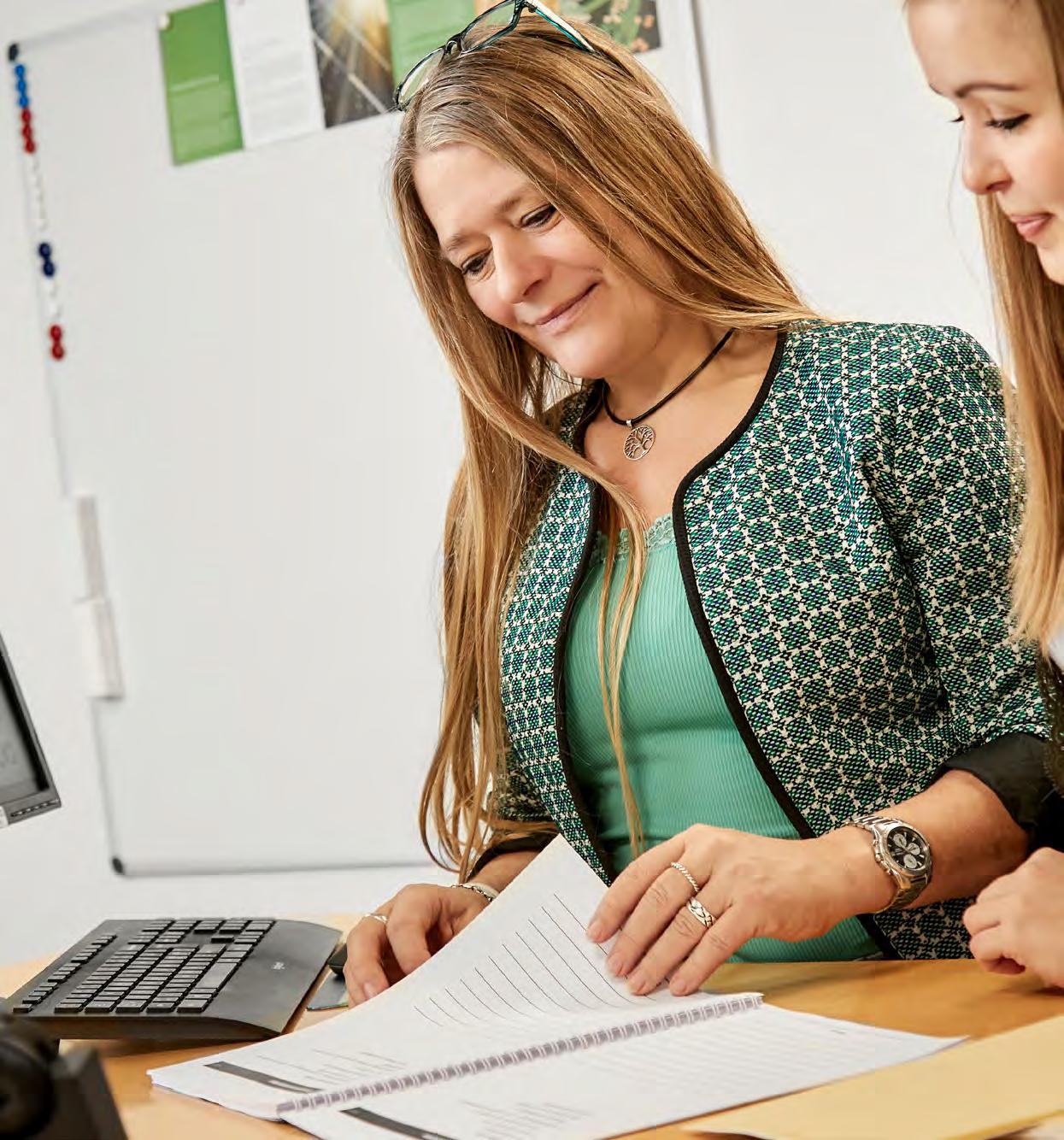
• Verdo wants all employees to feel that they have the same career and leadership opportunities.
There are more social factor policies in this report than in previous reports. This does not indicate a change in our policies, but rather a desire for greater transparency in our annual report and to codify existing practice.
We view our strategy for 2025 as ambitious. The strategy involves the
sustainability criteria and documentation requirements for wood industry waste products and other biomass used for energy purposes. T his means we can continue to meet our own and our customers’ expectations of a sustainable product and a company that helps make a difference in the green transition.
transformation of Verdo as a Group. It places demands on the organisation across management layers and employees, in relation to having the right competencies to succeed in our new strategic direction. As we search for new competencies, we are finding that the labour market has a shrinking supply of the skills we seek. As a result, we have had several positions within key functions that have been difficult to fill.
Verdo’s employee turnover in 2021:
Employee turnover 22.8%
Number of terminations 116
• Number of voluntary resignations 58
Number of forced terminations 48
Number of short-term appointments
21
Employee turnover is measured as the number of terminations in 2021, divided by the average number of employees during the 1 January to 31 December 2021 period, multiplied by 100. The number of terminations is calculated as the number of employees who were employed on 1 January 2021, and had departed by 31 December 2021. The KPI does not take into account part-time employees, as only the number is measured.
Verdo has not previously recorded its employee turnover systematically. In future, we will measure voluntary resignations and forced terminations, as well as short-term appointments, to gain a more nuanced picture of employee turnover. In the case of voluntary resignations, employees are offered an ‘exit interview’, so we get the opportunity to
gather knowledge and feedback from the employee’s time at Verdo.
We have had less training activity in 2021 due to COVID-19. Many courses were cancelled in spring, but there was some activity again in autumn, so the number of AMU courses in 2021 is on par with 2020, but significantly less than in 2019. We therefore took the initiative in 2021 to create Verdo Academy, to ensure we have the right competencies in the company to support our strategy. The effect of this will be seen in 2022.
Trainees and apprentices
Verdo has a strong focus on creating as many positions for trainees and apprentices as is possible in relation to our activities. As a result, there has been an increasing number of trainees and apprentices at Verdo for many years, but in 2021 there was a decline.
The number of apprentices has fallen both in absolute terms and as a percentage of hourly-paid workers. The reason is that the order situation has been uncertain due to COVID-19, and it makes no sense to hire apprentices if there is no guarantee of work. There was a similar decline in trainee numbers in 2021, both in absolute terms and as a percentage of salaried workers. This is due to the organisational changes implemented in 2021. There has been a focus on staff functions in particular, and the company has therefore not felt able to offer new trainees a position as extensively as in the past.
Percentage of apprentices and trainees at Verdo:
• P ercentage of apprentices among hourly-paid workers: 16% in 2020 and 10% in 2021.
• P ercentage of trainees among salaried employees: 4% in 2020 and 3% in 2021.
The apprentice figure is calculated as the average number of apprentices as a percentage of the average number of hourly-paid workers in the companies that have apprentices. The trainee figure is calculated as the average number of trainees over the year compared to the average number of salaried employees (not counting managers) over the year.
In 2021, we increased the number of employees working in flex jobs compared to 2020. In 2020, there were only two people in flex jobs, due to COVID-19 restrictions, while we had
nine people working in flex jobs in 2021, spread across several of Verdo’s sites and companies.
The people in these positions are either previous full-time employees of Verdo, who have typically suffered a disability and therefore need various accommodative measures and have been assigned reduced hours in collaboration with the job centre, or candidates who had special competencies we needed and for whom we therefore created positions. Employees in flex jobs range in age from 25 to 65.
Number of employees in flex jobs at Verdo: 2 in 2020 and 9 in 2021.
In 2021, we had the goal of conducting an employee well-being survey (MTU) for the whole Group with a response rate of at least 80%, which would make the results a true and fair picture. The goal was also that a number of initiatives would be defined in Q4 2021 based on the survey results and the ‘Vital Few’ identified. The initiatives will be followed up with a pulse survey in September 2022.
Verdo’s employee well-being survey was conducted in September and achieved a response rate of 80%. Based on the results, two initiatives have been decided at Group level (Management and Communication/Information). An initiative will also be defined in each department, which will be in focus up until the pulse survey in September 2022. Reporting on progress is shared on Verdo’s intranet.
Employee commitment is an important KPI in Verdo’s strategy, and part of our strategic programme for a common culture. In 2021, Verdo’s eNPS was 10, which is above the average for other comparable, private companies (-10). We see this as satisfactory, but have nevertheless set an ambitious goal that the eNPS should be above 10 in 2023, and be 25 in 2025. See the table below.
The survey is carried out by an external analysis company. The KPI is measured through the employee Net Promoter Score (eNPS). This is calculated by subtracting the percentage of ‘critics’
Targets for eNPS at Verdo:
from the percentage of ‘advocates’ for the question “I would recommend that others apply for a job at Verdo”. eNPS is supplemented by a number of underlying KPIs.
Verdo expects 2022 to be less impacted by COVID-19 and working from home than 2021, and to offer more social activities, such as meeting for lunch in the canteens, using meeting rooms at full capacity, and opportunities for socialising with colleagues outside working hours. Some employees will find it challenging to physically attend the workplace again. At the same time, we are paying special attention to employees who were onboarded during the COVID-19 restrictions, when some people had to work from home. These points will be in focus for managers.
We will see new forms of collaboration, such as digital and hybrid meetings as a permanent part of daily work and a take-away from the COVID-19 period.
The end of 2021 showed that recruitment in a difficult market requires a new approach. We expect to have to supplement existing processes with new initiatives in 2022, in order to continue to attract relevant candidates to an attractive workplace.
Verdo has a strategic goal of being an attractive workplace. We therefore take good care of our employees and have a strong focus on health and safety. The goal for the Verdo Group’s OHS organisation is to always have the working environment in order, such that we are eligible for a green smiley from the Danish Working Environment Authority at any time.
It is our goal to maintain and develop a working environment that protects the Group’s employees from adverse health and safety impacts. We also want to ensure there is a good psychological working environment, in which employees thrive, and we aim to develop and maintain a good working environment that complies at all times with current legislation and is in line with technological and societal developments.
The Verdo Group therefore has an OHS organisation with a Group OHS committee and local OHS committees and groups, covering all employees and actively working to:
• support and develop employee awareness of the importance of occupational health and safety in their daily work, for themselves and others
increase specific employee knowledge and insights about occupational health and safety develop and maintain a fast-working network in the OHS organisation
clarify the responsibility of each employee for maintaining and developing the working environment
impose requirements on subcontractors working for the Group to comply with applicable OHS legislation.
In 2021, Verdo completed training in emergency procedures for lift vehicles in cooperation with the manufacturer, and updated signage plans and the use of signs when servicing and repairing traffic light signals. There has been a focus on introducing HSE (health, safety and environment) plans in the daily work throughout the Group, and there has been a particular effort to reduce sound levels.
As a preventive measure against hearing loss, technicians have been offered moulded hearing protection, which has significantly increased the use of such protection. Verdo has also articulated accident-preventing behaviour by conducting ‘Safe Job Analyses’ (SJAs) before tasks are performed. At the CHP plant in Randers, the analysis is carried out jointly by the person performing the work and the control room guard.
Verdo has also paid special attention to well-being in daily work, with the aim of avoiding job dissatisfaction and absence due to workplace conditions. Throughout the Group, the organisation has had a focus on changes in behaviour among colleagues, and investigated the reasons for any changes.
There has been a focus in 2021 on minimising the use of ladders for work tasks. Lifts or scaffolding are now primarily used wherever possible, and these help to prevent accidents. To help prevent accidents related to electrical installations and machinery,
all relevant electricians and technicians have completed the ‘Safety when working on or near electrical installations’ course. Joint procurement of chemical products has been implemented, which helps minimise the number of different chemical products, and risk assessment is provided in relation to their effects during use. Finally, Verdo has started using the chemical WPA, which aims to protect chemical users from harm.
Accidents and illness:
There has been a greater focus in 2021 on registering near-miss incidents, which is the direct reason for their increase in number. At the same time, the workplace has become safer, because we use what we learn from the near-miss incidents to improve the working environment through preventive actions – both in the physical setting and our daily behaviour.
Employee well-being and information during a time with COVID-19 2021 was another year marked by the COVID-19 pandemic. During the winter lockdown, many employees were sent home to work, for some or all of their hours. A number of departments introduced rotation schemes and attended the office in fixed teams to prevent the spread of infection. As the restrictions were eased, the canteen in Randers reopened, meeting rooms could again be booked at full capacity, and physical attendance at work became normal again from August. However, hand sanitiser remains part of the daily routine and is available in all locations and technician vehicles.
During the COVID-19 period, Verdo formulated rules on the scope of working from home in the ‘Policy for working from home’, and many employees have embraced the ‘5/20 scheme’ (max. five days working from home per month).
Towards the end of the year, COVID-19 infections were again on the rise, and Verdo reintroduced restrictions in the workday. As a consequence, Verdo decided to postpone the annual Christmas party from December to spring 2022.
The sudden changes we have experienced as a result of COVID-19 can put employee well-being under pressure. That is why we have had a focus in 2021 on maintaining a good psychological working environment. Even though Verdo has been partially shut down for a period, and salaried employees have been working from home, we have conducted social events online, including virtual Walk and Talks and Friday bread rolls. When we were able to meet physically again, our associations and committees made an effort over the summer to organise events such as cycling and hunting trips and participation in the DHL relay race. We have also continually provided information on our intranet about our own and the authorities’ rules and guidelines, so employees could feel secure at work. Further, we have encouraged everyone to care for their colleagues and keep an eye out for anyone in distress. HR was ready to offer advice and guidance in this regard.
Statutory statement on the gender composition of management bodies pursuant to section 99 b of the Danish Financial Statements Act.
Workplace diversity remains an important issue in Denmark, and at Verdo we believe that diversity creates value and is a strength for our employees and the business that we can translate into results. Greater diversity in the management team improves the scope for
Note
2 Sick leave is the number of sick days divided by working days, multiplied by 100. Long-term illness is defined as sick leave lasting more than 14 days. The number of working days is calculated as the average number of employees from 1 January to 31 December 2021, multiplied by the annual number of working days.
managing and assessing the various aspects that enable Verdo to live up to its values and meet the expectations of the outside world. However, we still have some work to do in this area. Around 80% of Verdo’s employees are men, and the proportion of women decreases the higher we move up the management hierarchy. We are not alone with this demographic in the energy sector, but it is an area we want to focus on, in order to increase the representation of women.
Verdo will in future give greater focus to presenting female candidates in the final pool when hiring employees. This is a new approach designed to help eliminate gender bias in the recruitment process.
That is why, in 2021, we stepped up our efforts to redefine our diversity targets towards 2030, and we are currently looking into defining
sub-targets for 2023 and 2025. The targets will apply at all management levels in the organisation.
The target of 25% in 2021 has not been achieved, as there were no changes to the composition of the Supervisory Board in 2021. Elections to Verdo’s Board of Representatives and
Supervisory Board will be held in spring 2022. Some members of the Supervisory Board will therefore be up for election, and there could be changes in relation to achieving the target.
This section contains the statutory statement on social responsibility pursuant to section 99 a of the Danish Financial Statements Act, in relation to social and staff factors.
Verdo supports and respects the ten principles of the UN Global Compact for corporate responsibility. T he principles provide a joint ethical and practical framework for corporate social responsibility and are based on international conventions and agreements. For example, the OECD Guidelines, the ILO Conventions on International Labour Standards, the UN Guiding Principles on Business and Human Rights (UNGP) and the Rio Declaration are all represented in the principles.
At Verdo, we strive to integrate and respect the universal human rights set out in national law and international conventions, covering discrimination, forced labour, child labour, a safe and healthy working environment, labour rights and other factors.
All employees must be treated equally and with dignity and respect, and Verdo commits to not discriminate in any way based on race, colour, sex, language,
religion, political or other opinion, national or social origin, property, birth or other status or background. Furthermore, no distinction must be made on the basis of the political, jurisdictional or international status of the country or territory to which a person belongs.
It is Verdo’s policy that our partners and suppliers must comply with the adopted human rights conventions.
Employee conditions concern the work performed by employees at Verdo, or on behalf of Verdo by suppliers or subcontractors. Verdo follows the ILO conventions and complies with the existing national legislation regulating the labour market.
Verdo offers terms of employment and working conditions that comply with national legislation, including the freedom of employees to organise themselves in peaceful associations at their own discretion. We work to eliminate discrimination in our work and employment relationships (see the section
below on remuneration).
As noted earlier in this report, we have a strong focus on the social, psychological and physical well-being of employees in the workplace. We weight health and safety at work highly. Our employees are our most important resource. The personal development of employees is therefore a high priority. We also undertake to ensure working hours that comply with the existing legislation and/ or the ILO Convention.
Verdo also follows the UN guidelines on child labour, and does not tolerate any form of child labour. Nor does Verdo tolerate any form of human trafficking or modern slavery, including forced labour, debt bondage or bonded labour. Employment relationships must be voluntary and based on mutual consent without any threat of punishment.
Verdo respects the right of employees to receive a fair wage, in order to give themselves and their families a decent existence. We observe at least the minimum wages set by legislation or, where appropriate, an industry standard
established on the basis of collective negotiations – whichever is highest. In addition, we comply with all other acts and regulations governing wages, benefits and compensations.
Anti-corruption and anti-bribery Verdo has a zero-tolerance policy towards activities of a corrupt or dishonest nature.
We undertake to refrain from all forms of corruption and bribery, be it direct or indirect, including extortion,
fraud, facility payment or money laundering. We also distance ourselves from all types of abuse of entrusted power for the purpose of private gain, such as embezzlement, fraud, facility payment and abuse of office.
Verdo has a constant focus on this area, and we are aware that we operate in countries where there is a greater risk of bribery and corruption than in Denmark.
To date, we have primarily considered this in our Trading division, as this is
Statutory statement on data ethics under section 99 d of the Danish Financial Statements Act.
Verdo has not formulated a data ethics policy, as we do not currently collect and process data in a way that, in our view, requires consideration beyond compliance with applicable law, including GDPR, and Verdo’s general guidelines.
For example, Verdo has policies on GDPR and IT use, and we are constantly working to ensure regulatory compliance.
Verdo does not work with advanced technologies such as algorithm-based decision-making processes. We therefore deem that the risk of bias towards employees, suppliers and consumers in society is minimal.
At Verdo, we are aware that the deployment of new technologies could give rise to data ethics considerations, and create a greater need for internal
where we have identified risks.
In 2021, we focused on disseminating the Code of Conduct to the entire Verdo Group – in part through collaboration with Verdo’s purchasing managers.
Our focus on responsibility and ethics in Verdo’s value chains will continue in 2022. We will help to build understanding of the importance of this by working with our suppliers on compliance with Verdo’s guidelines and requirements in the Code of Conduct.
control and competency training at all levels. We will therefore continually assess the need for policy in this area, in line with our overall focus on responsibility and ethics in Verdo’s value chains as a whole.
The following table summarises Verdo’s ESG key figures, all of which have been presented along the way in this CSR report. ESG stands for Environment, Social and Governance. At Verdo, Environment covers both environmental and climate factors, in line with the definitions previously stated
Verdo has an increasing focus on ESG efforts, but is not yet ready to set concrete targets until we have assessed the possibilities for future initiatives. In 2022, we will also work to develop goals in relation to Governance.
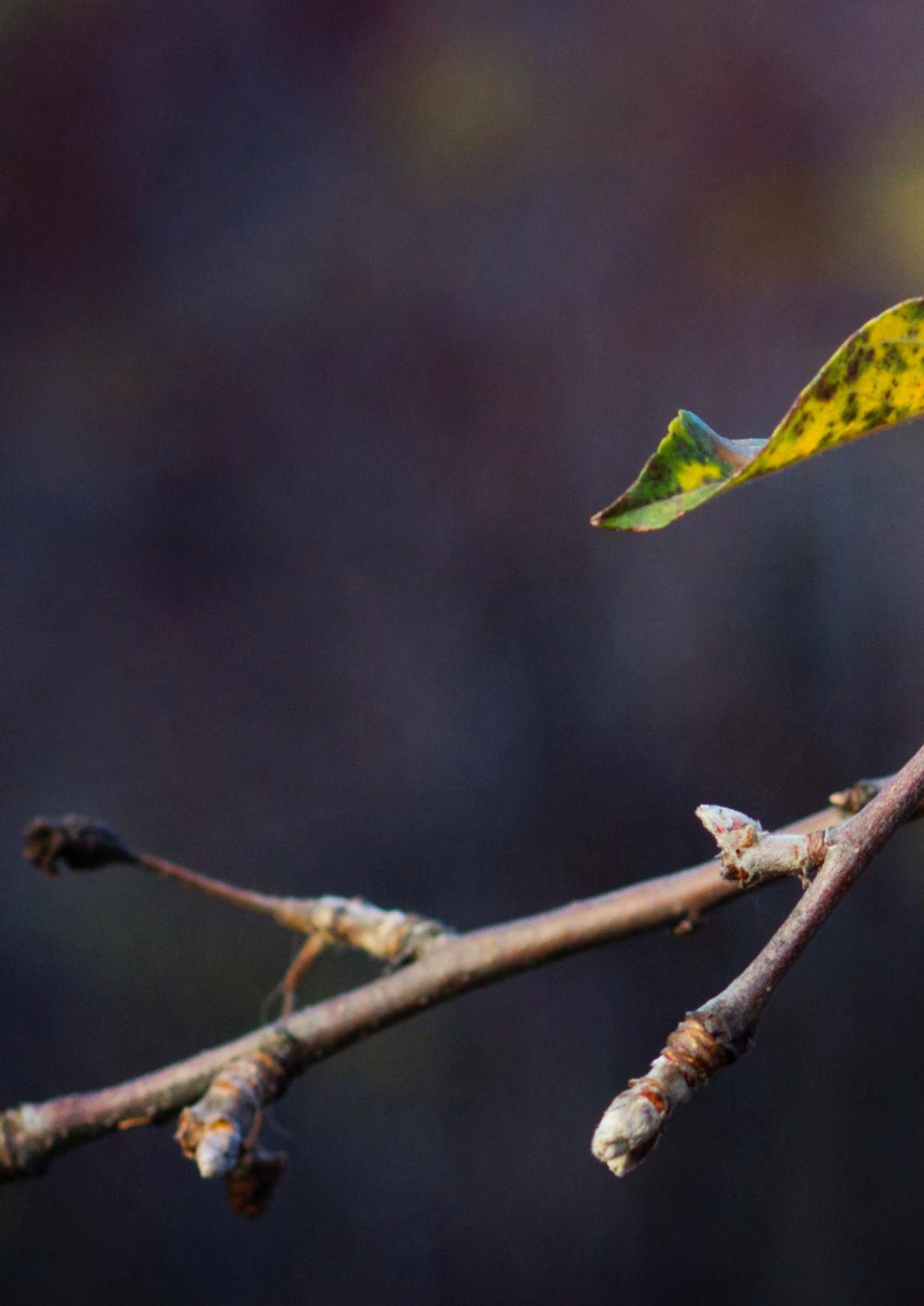
The Supervisory Board and the Executive Board have today considered and approved the annual report of Verdo A/S for the financial year 1 January - 31 December 2021.
The annual report has been presented in accordance with the Danish Financial Statements Act.
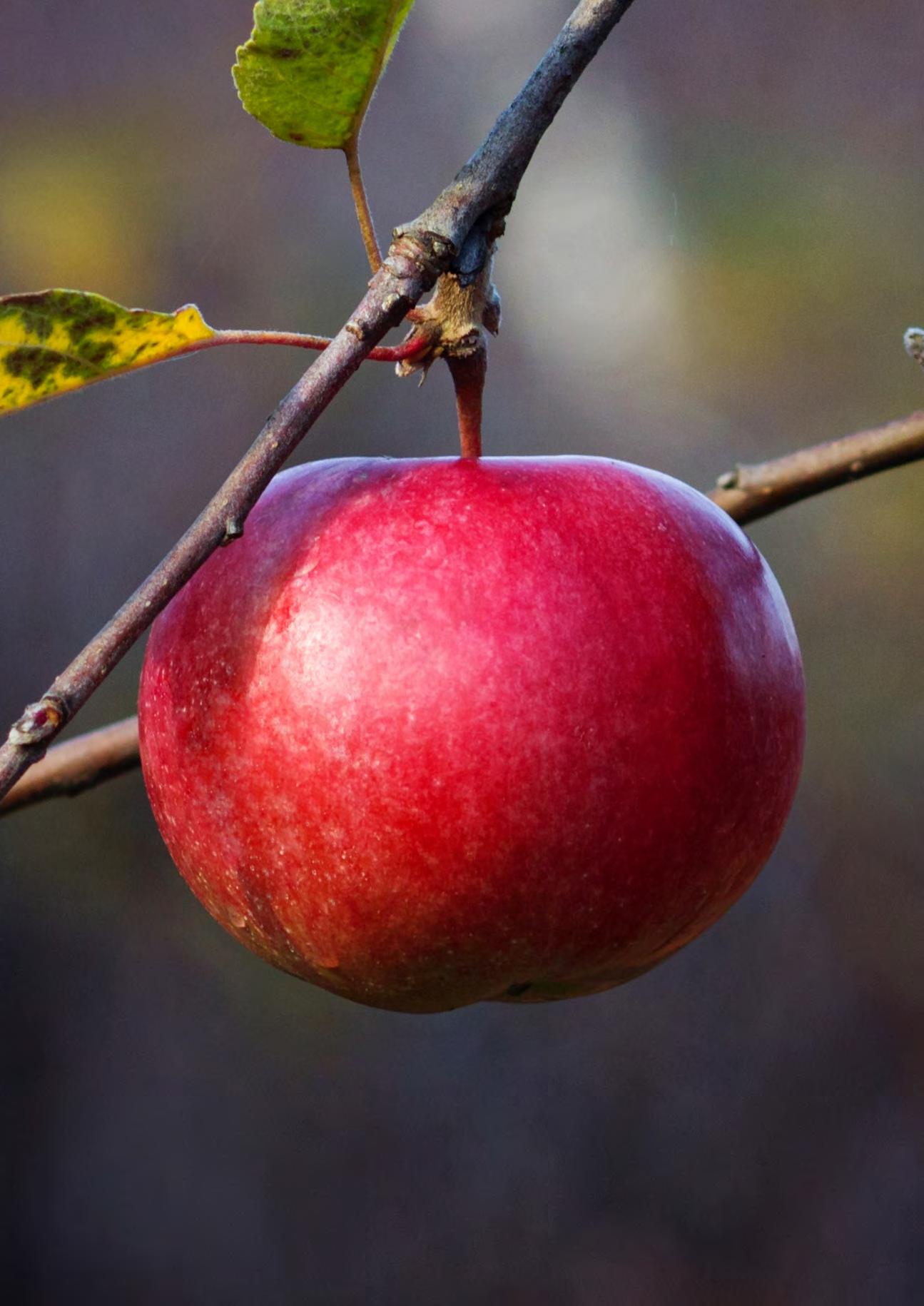
In our opinion, the consolidated financial statements and the financial statements give a true and fair view of the Group’s and the company’s assets, liabilities and financial position as at 31 December 2021 and of the results of the Group’s and the company’s activities and the consolidated cash flows for the financial year 1 January - 31 December 2021.
There are material uncertainties in recognition and measurement regarding factors in some subsidiaries. This leads to corresponding uncertainty when recognising and measuring in the consolidated financial statements and the parent company. Please refer to note 1.
The financial statements, including the auditor’s report (pages 81-110), have been taken directly from the official annual report (excluding some minor matters).
The annual report of Verdo Holding A/S for 2021 is presented in accordance with the Danish Financial Statements Act for large enterprises in reporting class C.
The accounting policies have been applied consistently with last year. Comparative figures have been adjusted this year to ensure a true and fair view. These adjustments do not affect either profit or equity.
A significant error has been corrected this year in the consolidated financial statements, resulting from an item of property, plant and equipment disclosed under ‘Distribution systems and installations, and meters’ subsequently being assessed as a financial fixed asset. The ‘Property, plant and equipment’ account has been debited DKK 93,145 thousand, ‘Other receivables (long-term)’ has been credited DKK 94,159 thousand and ‘Equity’ has been credited DKK 1,014 thousand. The correction does not affect the income statements in either 2020 or 2021.
The financial statements for 2021 are presented in thousands of Danish kroner (DKK ‘000).
Income is recognised in the income statement as earned. In addition, all costs incurred to generate the earnings for the year are recognised in the income statement, including depreciation, amortisation and provisions as well as reversals due to changed accounting estimates of amounts previously recognised in the income statement.
Assets are recognised in the balance sheet when it is probable that future economic benefits will flow to the Group and the parent company, and the value of the assets can be measured reliably.
Liabilities are recognised in the balance sheet when it is probable that future economic benefits will flow out of the Group and the parent company, and the value of the liabilities can be measured reliably.
On initial recognition, assets and liabilities are measured at cost. Subsequently, assets and liabilities are measured as described for each item below.
Certain financial assets and liabilities are measured at amortised cost, applying a constant effective interest rate until maturity. Amortised cost is calculated as original cost less any repayments and with addition/deduction of the cumulative amortisation of the difference between cost and the nominal amount. This means that any capital losses and gains are distributed across the time to maturity.
On recognition and measurement, account is taken of predictable losses and risks arising prior to the presentation of the annual report and proving or disproving conditions existing on the balance sheet date.
The consolidated financial statements comprise the parent company Verdo Holding A/S as well as enterprises in which the parent company directly or indirectly holds more than 50% of the voting rights, or in which the parent company through shareholdings or otherwise has a controlling interest.
On consolidation, items of a similar nature are combined. All intercompany income and expenses, shareholdings, dividends and balances as well as realised and unrealised internal gains and losses from transactions between the consolidated enterprises are fully eliminated on consolidation.
The parent company’s equity investments in the consolidated subsidiaries are eliminated against the parent company’s share of the equity value of the subsidiaries calculated at the time of establishment of the affiliation.
Verdo Holding A/S is included in the consolidated financial statements of Verdo a.m.b.a.
Minority interests form part of the Group’s total equity. In the distribution of the profit/loss for the year, the profit/loss is divided into the portion attributable to minority interests and the portion attributable to the parent company’s shareholders. Minority interests are recognised at the carrying amount of the acquired assets and liabilities at the time of acquisition of subsidiaries.
Some of the consolidated companies are subject to the special revenue cap rules applying under the Danish acts on electricity, water and heat regulation. Under these rules, any surplus income or deficit, calculated as the profit/loss for the year under the Danish acts on the supply of electricity, natural gas and heat relative to the tariffs charged, must be transferred back or charged to consumers through reduced or increased tariffs in the year following the year giving rise to the surplus income or deficit. Surplus income or deficit is therefore recognised in revenue. Under the rules of the Danish acts on the supply of electricity, natural gas and heat, any accumulated surplus income or deficit must be recognised in the balance sheet as payables to or receivables from customers.
Leases under which the company assumes substantially all risks and rewards of ownership (finance leases) are recognised in the balance sheet at the lower of the fair value of the asset and the present value of the lease payments, calculated on the basis of the internal rate of interest of the lease or an alternative borrowing rate as the discount rate. Assets held under finance leases are depreciated and impaired applying the principles determined for the Group’s and the parent company’s other property, plant and equipment.
The capitalised residual lease obligation is recognised in the balance sheet as a liability, and the interest element of the lease payment is charged to the income statement on a continuing basis.
Transactions in foreign currencies are translated using the exchange rates applicable at the transaction date. Exchange differences arising between the transaction date and the date of payment are recognised in the income statement as a financial item.
Receivables, payables and other monetary items in foreign currencies which have not been settled at the balance sheet date are measured using the foreign exchange rates applicable at the balance sheet date. The difference between the exchange rate applicable at the balance sheet date and the exchange rate applicable at the date on which the receivable or payable occurred is recognised in the income statement under financial income and expenses.
Derivative financial instruments are initially recognised in the balance sheet at cost and subsequently measured at fair value. Positive and negative fair values of derivative financial instruments are classified as ‘Other receivables’ or ‘Other payables’. Changes in the fair value of derivative financial instruments are recognised in the income statement, unless the derivative financial instrument is classified as and fulfils the criteria for hedge accounting, see below.
Changes in the fair value of financial instruments classified as and fulfilling the criteria for hedging the fair value of a recognised asset or liability are recognised in the income statement together with any changes in the fair value of the hedged asset or liability attributable to the hedged risk.
Changes in the fair value of financial instruments classified as and fulfilling the criteria for hedging expected future transactions are recognised in equity under retained earnings with respect to the effective portion of the hedge. The ineffective portion is recognised in the income statement. If the hedged transaction results in an asset or a liability, the amount deferred in equity is transferred from equity and recognised in the cost of the asset or liability. If the hedged transaction results in an income or an expense, the amount deferred in equity is transferred from equity to the income statement for the period in which the hedged transaction is recognised. The amount is recognised in the same item as the hedged transaction.
Information on activities and geographical segments is based on the Group’s returns and risks based on the internal financial management.
The Group’s revenue comprises revenue from the sale of goods and services relating to trading in fuel and technical carbon, the production of heat and electricity, goods and services relating to infrastructure (electricity, water, heat and fibre) as well as contract work relating to electricity, street lighting and energy plants.
Income from the sale of goods and services is recognised as revenue when benefits and risks relating to the goods and services sold are passed to the buyer, the revenue can be measured reliably, and it is probable that the economic benefits of the sale will flow to the company.
Contract work in progress (construction contracts) is recognised in step with the performance of the work, whereby revenue corresponds to the selling price of the work performed during the year (percentage of completion method). This method is used when total revenue and costs associated with the construction contract and the stage of completion can be measured reliably at the balance sheet date, and it is probable that the economic benefits, including payments, will flow to the Group and the parent company. The stage of completion is calculated on the basis of costs incurred relative to the expected total costs of the construction contract.
Investment grants to cover the Group’s investments in distribution systems are accrued over the depreciation period of the investment and are recognised in revenue.
Revenue is measured as the consideration received and recognised exclusive of VAT and net of discounts relating to sales.
Other operating income comprises gains on the sale of intangible assets and property, plant and equipment as well as proceeds from the sale of activities.
Work performed on own account includes direct wages and indirect production costs (IPO) incurred for the full or partial construction of own systems listed under assets.
Costs comprise direct and indirect costs of sales for the purchase of raw materials and auxiliary materials, including delivery costs, handling and services purchased.
Other external expenses comprise expenses associated with the maintenance of installations, the disposal of waste, the running of vehicles, marketing, premises and administrative expenses.
Employee expenses comprise wages and salaries, including holiday pay and pensions, as well as other social security costs etc. for the Group’s and the parent company’s employees. Employee expenses are less compensation received from public authorities.
Depreciation, amortisation and impairment losses comprise ordinary depreciation, amortisation and impairment of intangible assets and property, plant and equipment.
Other operating expenses comprise losses on the sale or scrapping of intangible assets and property, plant and equipment.
In the income statement, the proportionate share of profit/loss for
the year is recognised under ‘Income from equity investments in subsidiaries’. Moreover, the annual adjustment of earn-out from the acquisition of enterprises is recognised under ‘Value adjustment of earn-out’ as well as losses and gains on the divestment of subsidiaries.
Value adjustment of earn-out includes the annual adjustment of conditional purchase fees that will not fall due for payment.
Losses/gains on the divestment of equity investments are recognised in the income statement as the difference between the selling price and the carrying amount.
Financial income and expenses are recognised in the income statement as the amounts relating to the financial year.
The parent company is covered by the rules on compulsory joint taxation of the Verdo Group’s Danish subsidiaries, in addition to which the Group has chosen to be taxed according to the rules on international joint taxation. The subsidiaries are included in the joint taxation from the time of their inclusion in the consolidation of the consolidated financial statements and up until the time when they are excluded from consolidation.
The parent company is the administration company and thus handles all payments of income taxes to the tax authorities on behalf of the jointly taxed companies.
Current Danish income tax is distributed through the payment of joint taxation contributions by the jointly taxed companies in proportion to their taxable incomes. In this connection, companies posting tax losses receive joint taxation contributions from enterprises that have been able to use such losses to reduce their own taxable profit.
Tax on profit/loss for the year consists of current tax and changes in deferred tax and is recognised in the income statement with the portion attributable to the profit/loss for the year, and directly in equity with the portion attributable to amounts recognised directly in equity.
All income statement items related to discontinuing operations decided before the presentation of the annual report are recognised on a separate line in the income statement.
Goodwill
Acquired goodwill is measured at cost less accumulated amortisation. Goodwill is amortised on a straight-line basis over the useful life of the asset, which is an estimated 7-20 years. The amortisation period is based on the expected payback period.
Development projects that are clearly defined and identifiable, and where the technical feasibility of the projects, sufficient resources and a potential future market or scope for development can be demonstrated, and where the intention is to produce, market or use the projects, are recognised as intangible assets. Moreover, it is a precondition that the cost can be measured reliably and that there is sufficient certainty that future earnings can cover production, selling and administrative expenses as well as development costs in step with the costs being incurred.
Development costs recognised in the balance sheet are measured at cost less accumulated amortisation and impairment losses. After completion of the development work, development costs are amortised on a straight-line basis over an estimated useful life of 3-5 years.
Property, plant and equipment is measured at cost on initial recognition. Operating equipment is subsequently measured at cost less accumulated depreciation. Land is not depreciated.
The cost of self-constructed assets includes the acquisition price and costs directly attributable to the acquisition, including purchase costs and indirect costs of labour, materials, components and subcontractors until the time when the asset is ready to be put into operation.
The depreciation base, which is the cost less any residual value, is distributed on a straight-line basis over the expected useful lives of the assets, which are:
Distribution systems and installations, and meters 10-60 years
Buildings 20-100 years
CHP plant and peak-load stations 5-19 years
Operating equipment 3-15 years
Depreciation periods and residual values are reassessed annually.
The carrying amounts of property, plant and equipment and intangible assets are assessed annually for indications of impairment over and above any depreciation and amortisation. If impairment is ascertained, the carrying amount is written down to the lower recoverable amount.
Equity investments in subsidiaries are recognised and measured according to the equity method.
In the balance sheet, the proportionate share of the enterprises’ equity value is recognised under ‘Equity investments in subsidiaries’, based on the fair value of identifiable net assets at the time of acquisition less or plus unrealised intercompany profits or losses and with the addition of the residual value of any added value and goodwill calculated at the time of the acquisition of the enterprises.
As part of the distribution of profit, the total net revaluation of equity investments in subsidiaries is transferred to ‘Net revaluation reserve according to the equity method’ under equity. The reserve is reduced by dividend distributed to the parent company and adjusted for other changes in equity in subsidiaries.
Subsidiaries with a negative equity value are recognised at DKK 0. If the parent company has a legal or constructive obligation to cover the enterprise’s negative balance, a provision is recognised.
Equity investments which are not traded in an active market are measured at the lower of cost and recoverable amount.
Long-term other receivables comprise loans in the form of finance leases.
Inventories are measured at the lower of cost according to the FIFO method and net realisable value.
The net realisable value of inventories is the amount expected to be generated by a sale in the process of normal operations with deduction of selling expenses. The net realisable value is determined allowing for marketability, obsolescence and development in expected sales sum.
Cost includes the cost price plus delivery costs.
In the balance sheet, receivables are measured at the lower of amortised cost and net realisable value, which usually corresponds to nominal value less provisions for bad debts.
Construction contracts are measured at the selling price of the work performed based on the stage of completion. The stage of completion is determined as the proportion of contract costs incurred relative to the expected total costs of the contract. When it is probable that total contract costs will exceed total revenue from a contract, the expected loss is recognised in the income statement.
When the selling price cannot be determined reliably, the selling price is measured as the lower of costs incurred and net realisable value. Payments received on account are deducted from the selling price. Individual contracts are classified as receivables when the net value is positive, and as liabilities when the net value is negative.
Costs in connection with sales work and securing contracts are recognised in the income statement as incurred.
Intercompany balances comprise both outstanding intercompany trade in goods and services and the companies’ share of the Group’s cash-pool agreement with credit institution as well as the internal settlement of current income tax.
Deferred tax is measured under the balance-sheet liability method on the basis of all temporary differences between the carrying amount and tax base of assets and liabilities, calculated on the
basis of the planned use of the asset or the settlement of the liability, respectively.
Deferred tax assets are measured at the value at which they are expected to be realised, either through elimination in tax on future earnings or through offsetting against deferred tax liabilities within the same legal tax entity.
Deferred tax is measured on the basis of the tax rules and tax rates which, under the legislation in force at the balance sheet date, will apply when the deferred tax is expected to crystallise as current tax.
Prepayments recognised under assets include prepaid operating expenses.
Cash
Cash includes deposits with credit institutions.
Equity
Revaluation reserves from the revaluation of property, plant and equipment are realised in step with the depreciation of the revalued assets.
Dividend proposed by management for the financial year is shown as a separate item under equity.
Other provisions include expected costs of warranty commitments as well as other charges etc. Other provisions are recognised when, as a result of past events, the Group has a legal or factual obligation and it is likely that the fulfilment of the obligation results in an outflow of financial resources from the Group or the parent company.
Defined-benefit pension obligations are recognised in the balance sheet on the basis of the calculation by actuaries of the obligations and the fair values of the related pension assets. Actuarial gains and losses arise from changes in the actuarial assumptions, including demographic and macroeconomic conditions, and are recognised directly in equity. Pension costs recognised in the income statement consist of costs for pensions for the financial year, calculated interest expenses and returns on the associated pension assets.
Investment grants to cover the Group’s investments in distribution systems are expensed over a 40 to 60-year period from receipt of such grants, corresponding to the depreciation period for the Group’s property, plant and equipment.
Mortgage loans and other long-term loans are recognised initially at the proceeds received, net of transaction costs. In subsequent periods, the loans are measured at amortised cost, so that the difference between the proceeds and the nominal value is recognised in the income statement as an interest expense over the term of the loan.
‘Trade payables’ and ‘Other payables’ are measured at amortised cost, substantially corresponding to nominal value.
Deferred income
Deferred income recognised under liabilities consists of payments received relating to income in the following financial years.
No cash flow statement has been prepared for the parent company as the parent company’s cash flows are included in the consolidated cash flow statement.
The cash flow statement shows the consolidated cash flows for the year broken down into cash flows from operating, investing and financing activities, changes in cash and cash equivalents as well as the Group’s cash and cash equivalents at the beginning and end of the year.
Cash flow from operating activities comprises the net profit/loss for the year adjusted for changes in working capital and non-cash income statement items such as depreciation, amortisation and impairment losses as well as provisions. Working capital comprises current assets less current liabilities and excluding items included in cash and cash equivalents.
Cash flow from investing activities comprises cash flows from the purchase and sale of intangible assets, property, plant and equipment and financial assets.
Cash flow from financing activities comprises cash flows from the raising and repayment of long-term debt as well as incoming and outgoing payments to and from shareholders.
Cash and cash equivalents consist of deposits and operating credit facilities with credit institutions.
The ratios are calculated in accordance with the Danish Finance Society’s recommendations.
Profit/loss
Solvency
Definitions
Gross
Net

The Group’s profit/loss for the year is distributed as follows:
The cash flow statement cannot be derived directly from the consolidated financial statements.
While the Group’s production company was investigating similar matters back in the 2000-2009 period, indications were found that Verdo Produktion A/S had recognised a return on invested capital of up to DKK 70 million during the period. It has not been possible to identify a direct legal basis for recognising this return, and discussions have therefore been initiated with the Danish Utility Regulator concerning the matter. It is not yet possible to know when these discussions will be completed. Verdo Produktion A/S has therefore chosen to recognise a provision corresponding to the entire return identified.
At the beginning of 2021, the Group began discussions with the Danish Utility Regulator regarding a possible repayment of taxes collected from customers of Verdo Varme A/S and Verdo Produktion A/S. The discussions concern the assessment of whether tax is a fully or partially necessary expense for these companies. At this stage, it is not possible to assess the potential accounting implications or when the discussions are expected to be concluded. This has therefore not been recognised.
Russia invaded Ukraine after the end of the financial year. This is deemed to have a significant effect on the Verdo Group.
The Verdo Group decided very early in the process to stop all trade with Russia. We also contacted our 30 biggest suppliers to enquire about their use of Russian subcontractors, and get an overview of potential price increases or scarce goods as early as possible.
The rising prices for electricity and fuel are generally having a positive impact on the Group. In particular, Verdo Produktion A/S (power station), which produces electricity using biomass, Verdo Go Green A/S, which sells electricity, and Verdo Trading A/S and Carbon Partners, which trade in fuels and carbon, have been positively affected. It is difficult to quantify the proportion of products traded at market price or using relatively short hedges. But the companies have performed significantly better than budgeted during the first months of 2022. In the case of the Trading division (Verdo Trading A/S and Carbon Partners), all trades, with few exceptions, are ‘back to back’ (no products are purchased that have not already been sold), and exchange rates, shipping and price differences are hedged where possible. This minimises the risks.
The Danish Utility Regulator contacted the Group in 2021 about the sector’s usual method for allocating costs between electricity production and heat production – the ‘output model’.
The Group is in dialogue with the Danish Utility Regulator about the use of the model. At present, it is not possible to assess whether this enquiry may result in financial consequences for the Group.
The recognition of equity investments in the parent company is subject to material uncertainty. The uncertainty relates to the recognition of discussions underway with the Danish Utility Regulator in the subsidiaries Verdo Varme A/S and Verdo Produktion A/S, which affect the value of the equity investments. Further details can be found in the section on material uncertainty regarding recognition and measurement in the Group.
Conversely, Verdo Teknik A/S and Verdo Energy Systems A/S are negatively impacted by rising commodity prices, especially steel and other metals. Suppliers have also already been reporting shortages of certain products since early in the year. The biggest risk factor for both companies is that we have sold projects at a fixed price for which not all goods have yet been purchased. To date, we have managed to acquire the goods needed, although this has required a major effort.
There is a major focus on prices and risk management. A working group has been set up across the relevant divisions and the procurement department to work on our purchasing of commodities and materials for projects.
The entire Group is very focused on future agreements taking price changes into account. We therefore do not want to enter into long-term agreements based on fixed prices, unless we can get guaranteed fixed prices from our suppliers. This decision could have a potential impact on the number of contracts in the coming months.
In 2021, the Group had the following special items which have a material impact on the annual report: A provision of DKK 69,594 thousand has been made in the Group’s Verdo Produktion A/S company for cases currently before the Danish Utility Regulator.
An adjustment has been made in Verdo Varme A/S to a previously recognised provision for the case before the Danish Utility Regulator regarding interest on intercompany loans of DKK 7,619 thousand.
The profit/loss of the parent company is affected by the same items; however, the provision affects profit/loss from equity investments instead.
The special items also affect equity, which as at 31 December 2021 amounted to DKK 802,612 thousand, and which without the special items would amount to DKK 864,587 thousand.
information is provided about the Group’s activities and geographical markets. The information is based on the Group’s accounting policies, risks and internal financial management. Adjustment concerning previous years concerns the Group’s heat supply activities.
and expenses
Income from and expenses associated with the sale of property, plant and equipment are described in further detail in note 15.
*Remuneration of the Executive Board is not shown separately for 2020, as remuneration has been paid to one person only. Please refer to the remuneration report available at www.verdo.com.
9. Income from equity investments in subsidiaries and profit/loss from other equity investments
see note 16, and proceeds from the sale of other equity investments, see note 17.
Profit/loss from discontinuing operations is constituted by the following main figures:
operations (main figures):
The Group’s activities in the UK continue to be in liquidation and are expected to be finally closed down during 2022. The company’s activities related to telecommunications services are also being sold. The sale of Verdo Tele A/S is expected to be completed in Q2 2022. The profit/loss from operating activities is presented on a separate line in the income statement as ‘Net profit/loss from discontinuing operations for the year’.
Verdo Energy Systems A/S and Carbon Partners AS
The investment in subsidiaries will be of strategic importance to the Group for many years to come. In the next few years, the subsidiaries’ activities within technical coal and energy systems are expected to increase in terms of both revenue and earnings, and based on these expectations, the economic life of the assets is determined to be 10 years.
Verdo Varme Herning A/S:
The investment in the subsidiary is considered to be of strategic importance to the Group’s heat supply activities in Denmark, and, together with group synergies, the company is expected to have a long-term value. Against this background and the expectations for the coming years, the economic life is determined to be 20 years.
Other:
Other investments in goodwill are individually assessed in terms of their earnings potential and have a recognised value of DKK 5,328 thousand. They are amortised on the basis of an economic life of 7-10 years.
Development projects:
Investments in development are amortised over the economic life of the assets based on the period of 3-5 years in which the projects are expected to contribute to increased activity and earnings.
Other receivables include loans. These are subject to interest.
At the end of 2021, the Group had recognised tax assets of DKK 84,033 thousand. The management believes that taxable income will be generated in the coming years which can utilise the timing differences in depreciation and amortisation.
At the end of 2021, the Group had non-recognised deferred tax assets of DKK 382,609 thousand that management does not expect to be able to utilise in the coming years.
The elimination of deferred tax assets is expected to take place over a number of years as the timing differences primarily relate to assets with a long time horizon. Also, the timing will depend on the size of future investments.
‘Other’ covers pension obligations, surplus income and accrued investment grants. Pension obligations are recognised in the income statement in step with the disbursement of pensions.
The short-term share of credit institutions of DKK 18,155 thousand is recognised in the credit institutions item under current liabilities. The remainder of this item consists of bank debt.
The warranty commitment is reduced concurrently with the expiry of the warranties provided on delivered services. Other provisions include cases involving public authorities which have not yet been decided.
Property has been pledged as collateral for mortgages from mortgage credit institutions, of which the outstanding debt as at 31 December 2021 constitutes DKK 218,692 thousand. As at 31 December 2021, the carrying amount of the pledge is DKK 368,594 thousand.
As at 31 December 2021, the carrying amount of assets held under finance leases is DKK 12,592 thousand.
Guarantees include both ordinary builders’ guarantees and also guarantees in respect of pension obligations to public servants as well as parent company guarantees to suppliers and other creditors.
Finally, the parent company Verdo A/S acts as a guarantor for the subsidiaries’ commitments with credit institutions of DKK 66,527 thousand.
As an administration company, the parent company Verdo Holding A/S is taxed jointly with the other companies in the Verdo Group, and the company is jointly and severally liable for Danish income tax together with the other jointly taxed companies.
The Group has entered into finance leases, all of which are recognised in the balance sheet.
The Group’s lease commitments total DKK 5,443 thousand, of which DKK 0 thousand falls due after five years.
For 2021, the Group’s trading company has entered into significant contracts on the purchase of fuel and freight to cover already concluded and expected future contracts on the sale of fuel.
The Group’s electricity trading company has entered into fixed-price contracts for 2021 with the company’s end-customers, and to hedge the price risk associated with these, financial electricity purchase contracts have been entered into in conjunction with agreements on the physical delivery of electricity. Furthermore, financial purchase contracts have been entered into to hedge future price risks associated with the ‘KvartalsEl’ product. The fair value of these contracts is recognised directly in equity with a gain of DKK 78,515 thousand before tax.
The Group is under an obligation to demolish the Randers Kraftvarmeværk (KVR) CHP plant and to clean up the site at the Port of Randers. Uncertainty surrounds the time frame as well as the scope of the obligation, and the demolition is not expected to lead to a material draw on the company’s resources. The amount is therefore not recognised in the balance sheet.
Verdo a.m.b.a (the parent company) has a controlling interest in the company.
The company has chosen to disclose only transactions that have not been carried out under normal market conditions in line with section 98 c(7) of the Danish Financial Statements Act.
All related-party transactions are carried out on an arm’s-length basis.
The Group and parent company use interest rate swaps to hedge recognised and non-recognised transactions. In this way, variable interest payments are converted into fixed interest payments.
The hedged cash flows will be realised on an ongoing basis and will affect the results in the coming years and until the expiry of the interest rate swaps. The terms of the swaps are primarily aligned with the long-term cash flows which they hedge.
In our opinion, the consolidated financial statements and the financial statements give a true and fair view of the Group’s and the company’s assets, liabilities and financial position as at 31 December 2021 and of the results of the Group’s and the company’s activities and the consolidated cash flows for the financial year 1 January - 31 December 2021 in accordance with the Danish Financial Statements Act.
We have audited the consolidated financial statements and the financial statements of Verdo Holding A/S for the financial year 1 January31 December 2021 comprising the income statement, balance sheet, statement of changes in equity and notes, including accounting policies, for the Group and the company as well as the consolidated cash flow statement (‘the financial statements’).
We conducted our audit in accordance with International Standards on Auditing and additional requirements applicable in Denmark. Our responsibilities under those standards and requirements are further described in the ‘Auditor’s responsibilities for the audit of the financial statements’ section of the auditor’s report. We are independent of the company in accordance with the International Ethics Standards Board for Accountants’ Code of Ethics for Professional Accountants (IESBA Code) and the other ethical requirements that are relevant to our audit of the financial statements in Denmark. We have also fulfilled our other ethical responsibilities in accordance with these requirements and the IESBA Code. We believe that the audit evidence we have obtained is sufficient and appropriate to provide a basis for our opinion.
We draw attention to note 1 of the financial statements, which describes the uncertainty that exists within the Group regarding the recognition of return on invested capital, tax expenses collected and the output model.
We draw attention to note 1 of the financial statements, which describes the uncertainty surrounding the recognition of equity investments in the parent company.
Our opinion is not qualified in respect of this matter.
The management is responsible for the management commentary.
Our opinion on the financial statements does not include the management commentary, and we do not express any form of opinion on the management commentary.
In connection with our audit of the financial statements, it is our responsibility to read the management commentary and in this connection consider whether the management commentary is materially inconsistent with the financial statements or the knowledge we have obtained during our audit, or in any other way appears to be materially misstated.
Furthermore, it is our responsibility to consider whether the management commentary contains the information required under the Danish Financial Statements Act.
Based on the work performed, we believe that the management commentary is in accordance with the financial statements and has been prepared in accordance with the provisions of the Danish Financial Statements Act. We have not detected any material misstatement in the management commentary.
The management is responsible for the preparation of consolidated financial statements and financial statements that give a true and fair view in accordance with the Danish Financial Statements Act. The management is also responsible for such internal control as the management determines is necessary to enable the preparation of financial statements that are free from material misstatement, whether due to fraud or error.
In preparing the financial statements, the management is responsible for assessing the Group’s ability to continue as a going concern, disclosing, as applicable, matters related to continuing as a going concern and using the going concern basis of accounting unless the management either intends to liquidate the Group or the company or to cease operations, or has no realistic alternative but to do so.
Our aim is to obtain reasonable assurance that the financial statements as a whole are free from material misstatement, whether due to fraud or error, and to issue an auditor’s report with an opinion. Reasonable assurance is a high level of assurance, but is not a guarantee that an audit conducted in accordance with International Standards on Auditing and the additional requirements applicable in Denmark will always detect a material misstatement when it exists.
Misstatements can arise from fraud or error and are considered material if, individually or in the aggregate, they could reasonably be expected to influence the financial decisions of users taken on the basis of these financial statements.
As part of an audit conducted in accordance with International Standards on Auditing and the additional requirements applicable in Denmark, we exercise professional judgment and maintain professional scepticism throughout the audit. We also:
Identify and assess the risks of material misstatement of the financial statements, whether due to fraud or error, design and perform audit procedures responsive to those risks, and obtain audit evidence that is sufficient and appropriate to provide a basis for our opinion. The risk of not detecting a material misstatement resulting from fraud is higher than for one resulting from error, as fraud may involve collusion, forgery, intentional omissions, misrepresentations or the override of internal control.

Obtain an understanding of internal control relevant to the audit in order to design audit procedures that are appropriate in the circumstances, but not for the purpose of expressing an opinion on the effectiveness of the Group’s and the company’s internal control.
Evaluate the appropriateness of accounting policies used and the reasonableness of accounting estimates and related disclosures made by the management.
Conclude on the appropriateness of the management’s use of the going concern basis of accounting in its preparation of the financial statements and, based on the audit evidence obtained, on whether a material uncertainty exists related to events or conditions that may cast significant doubt on the Group’s and the company’s ability to continue as a going concern. If we conclude that a material uncertainty exists, we are required to draw attention in our auditor’s report to the related disclosures in the financial statements or, if such disclosures are inadequate, to modify our opinion. Our conclusions are based on the audit evidence obtained up to the date of our auditor’s report. However, future events or conditions may cause the Group and the company to cease to continue as a going concern.
Evaluate the overall presentation, structure and content of the
financial statements, including the disclosures in the notes, and whether the financial statements represent the underlying transactions and events in a manner that achieves fair presentation.
Obtain sufficient and appropriate audit evidence regarding the financial information on the enterprises or business activities within the Group for the purpose of expressing an opinion on the consolidated financial statements. We are responsible for the direction, supervision and performance of the group audit. We are solely responsible for our audit opinion.
We communicate with those charged with governance regarding, among other matters, the planned scope and timing of the audit and significant audit findings, including any significant deficiencies in internal control that we identify during our audit.
Aarhus, 28 April 2022 PricewaterhouseCoopers Statsautoriseret
RevisionspartnerselskabCVR no. 33 77 12 31
Claus Dalager Kristian Kjær Jensen
State-Authorised Public Accountant
State-Authorised Public Accountant
MNE-NO.: mne26745 MNE-NO.: mne35627
Verdo Holding A/S
Agerskellet 7 8920 Randers NV, Denmark info@verdo.com +45 7010 0230 verdo.com
CVR no.: 25 48 19 68
Licence code: FSC® C125676
Licence code: PEFC/09-31-131
Production Edited by: Verdo Holding A/S
Print run: 200.
Photos: Colourbox, Jakob Lerche and Bo Janting
Production: Printed on FSC® and Swan-labelled paper at a FSC® and Swan-certified printing house.
Paper: Munken Polar 5041-0856
Svanemærket tryksag